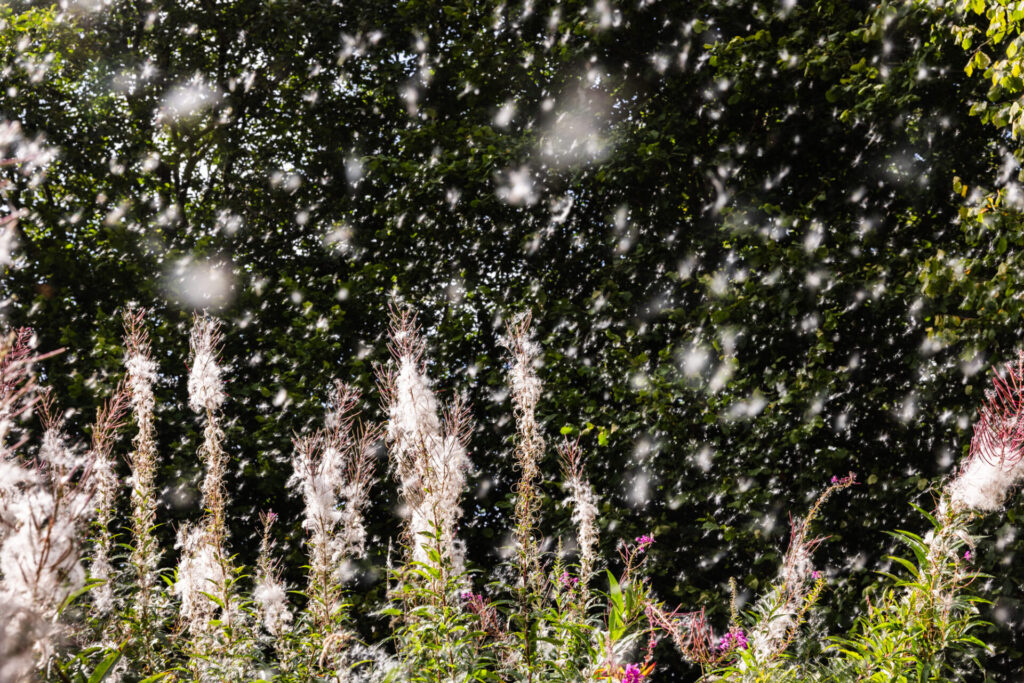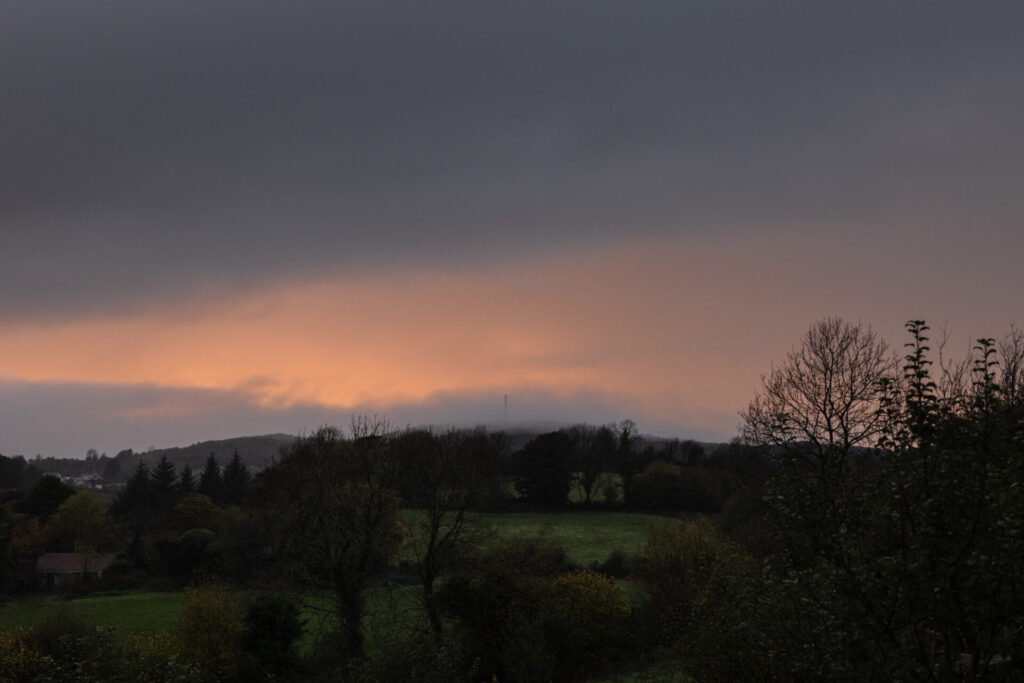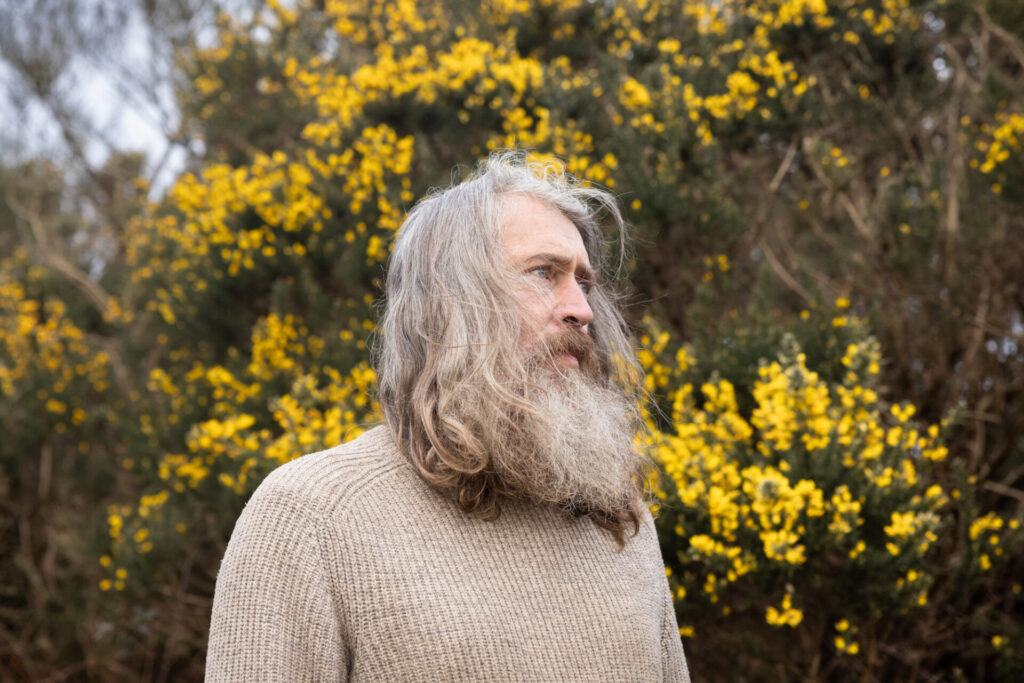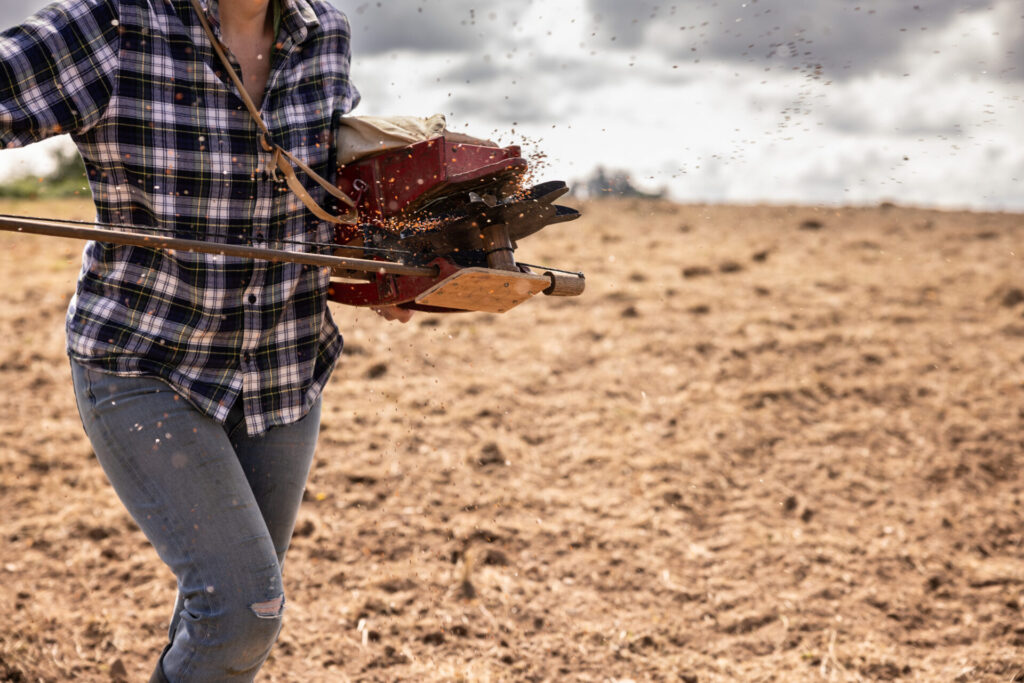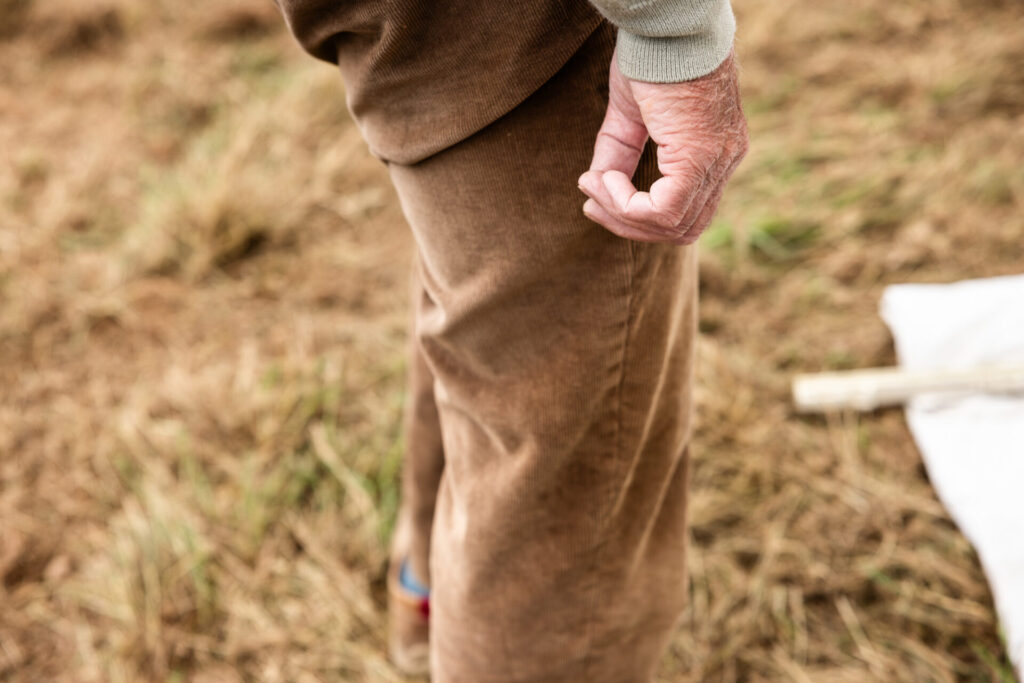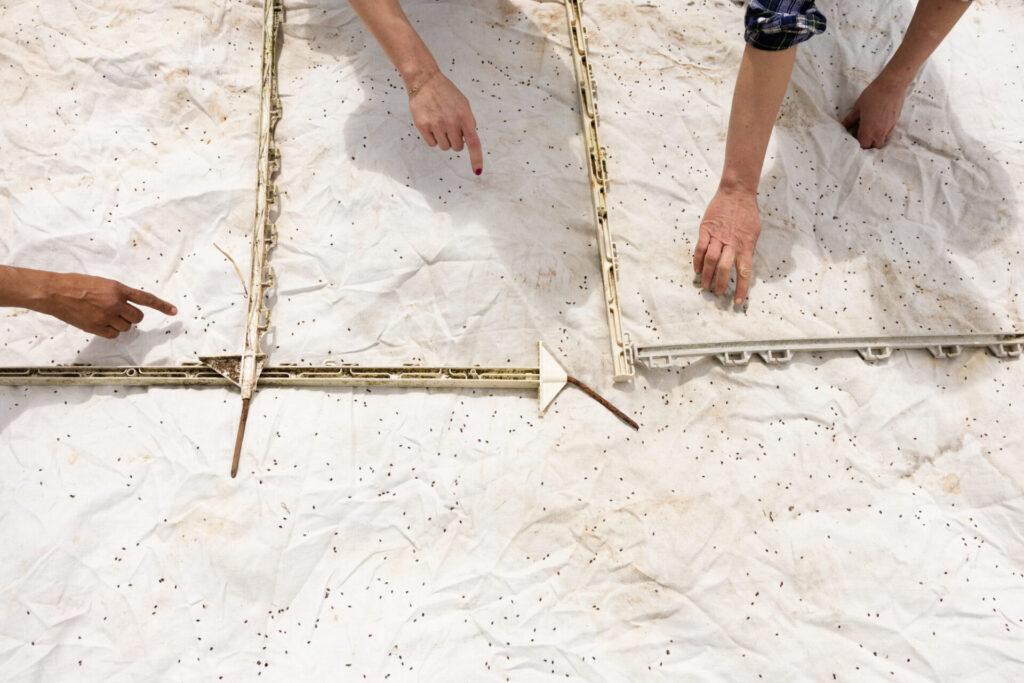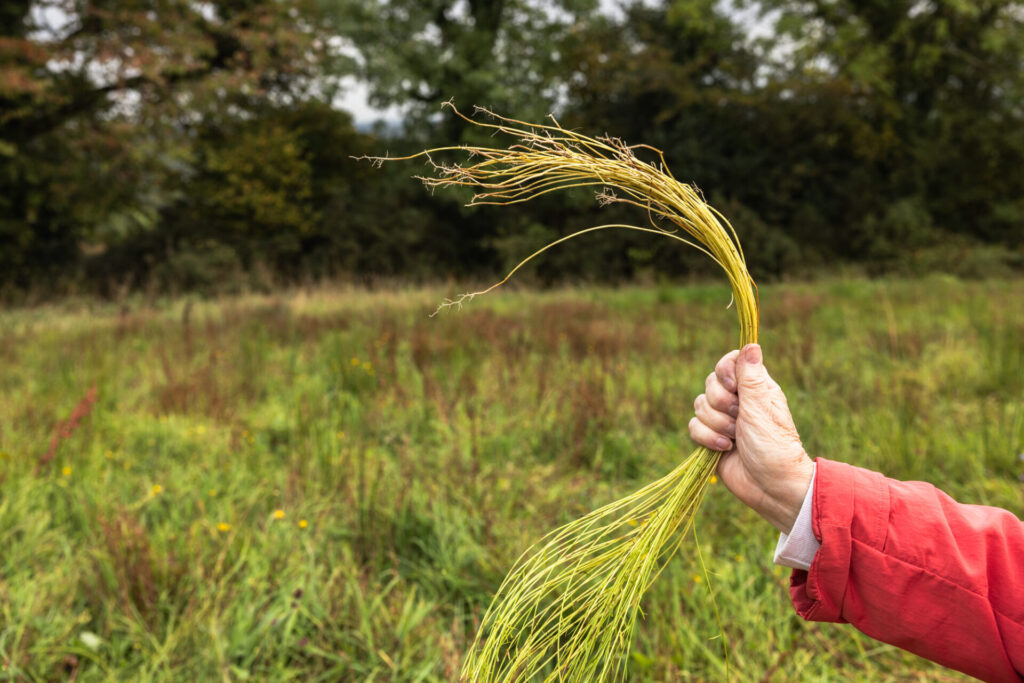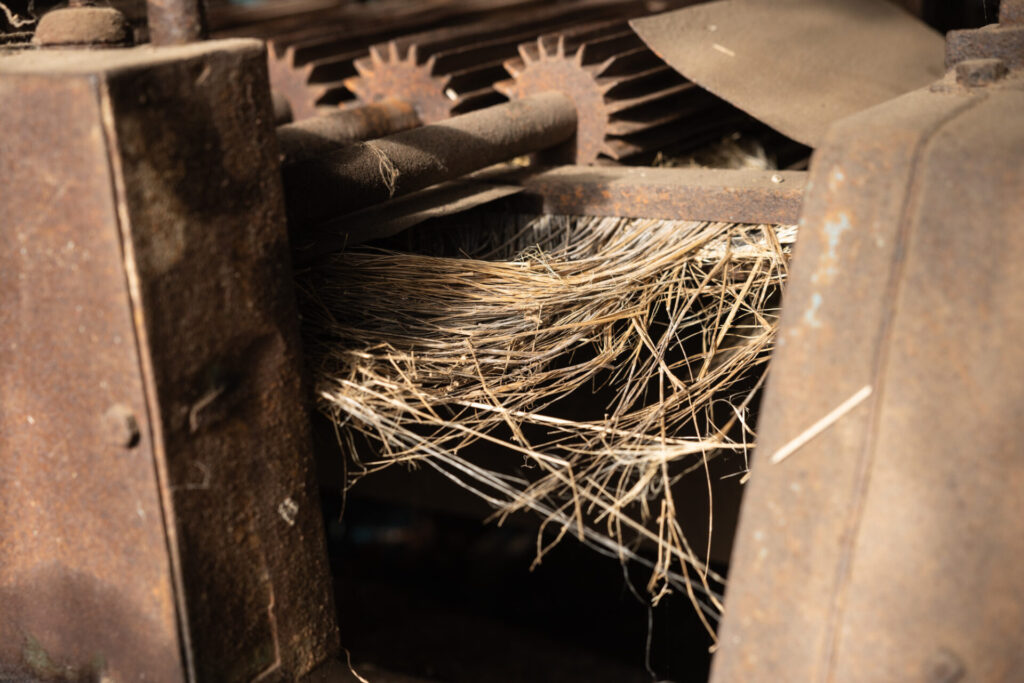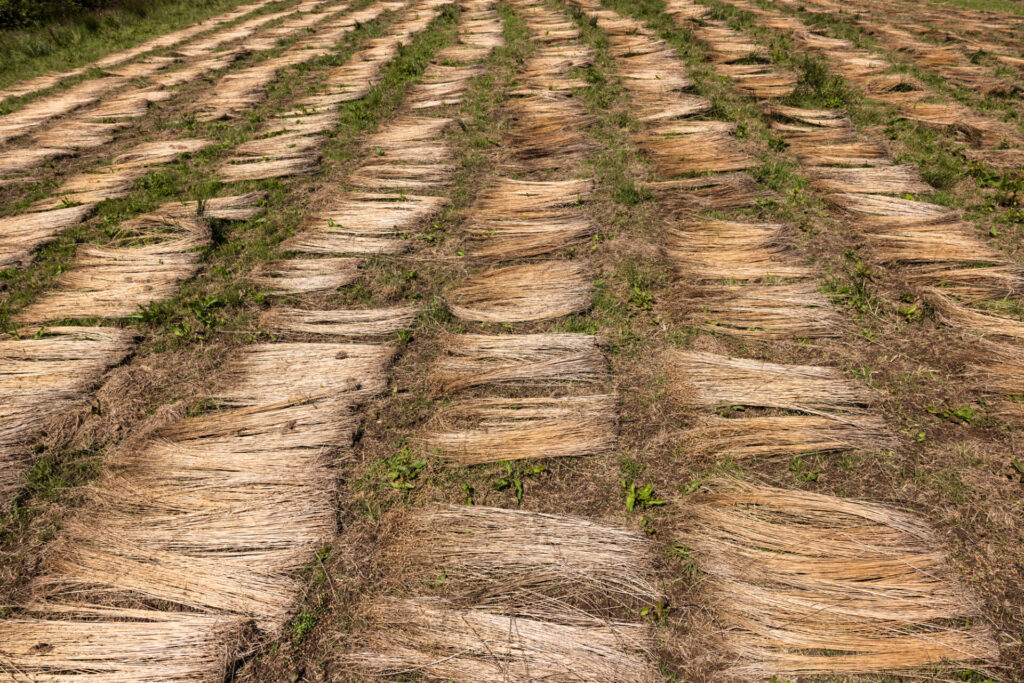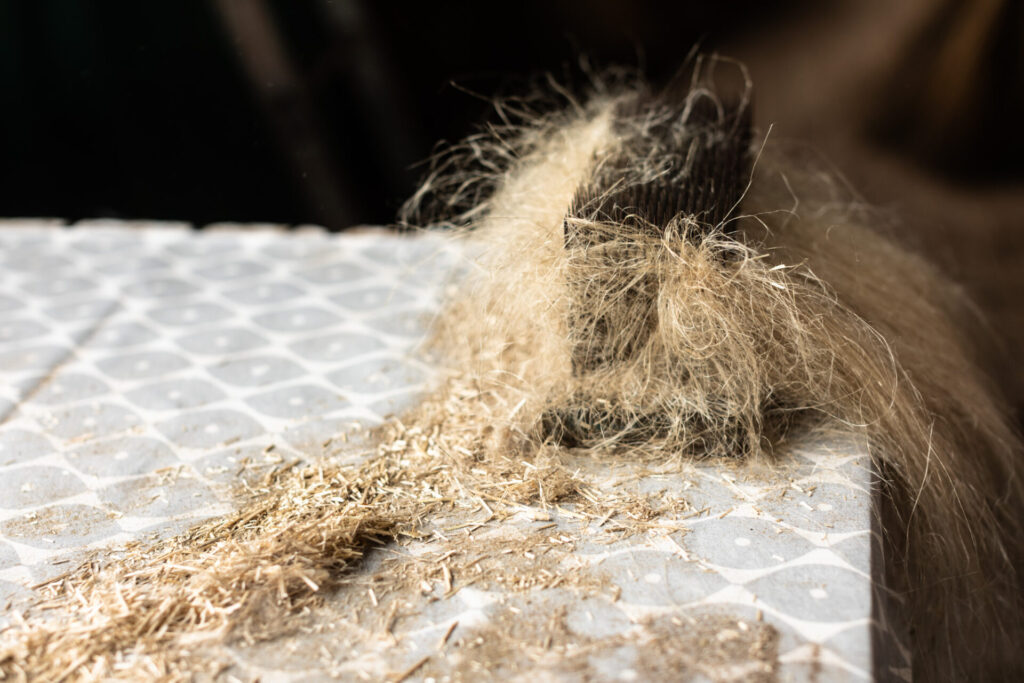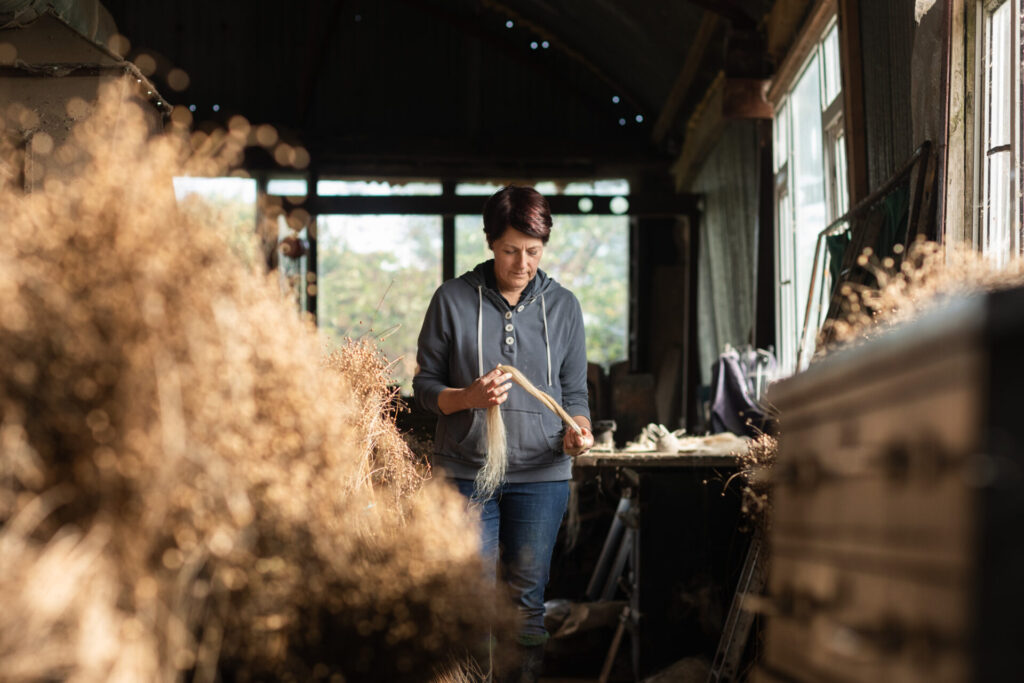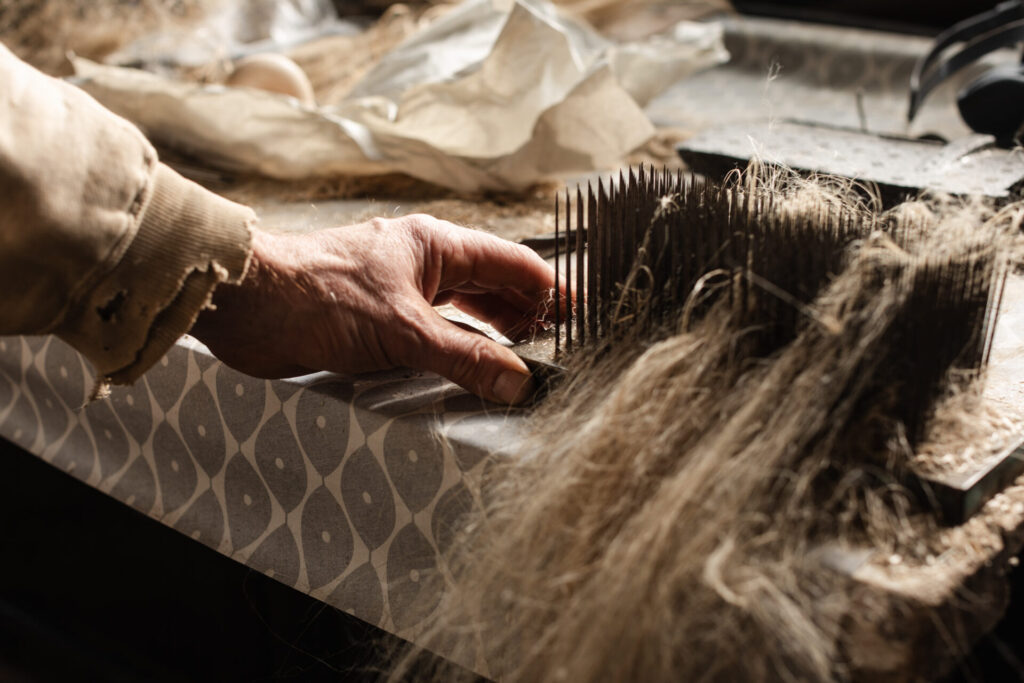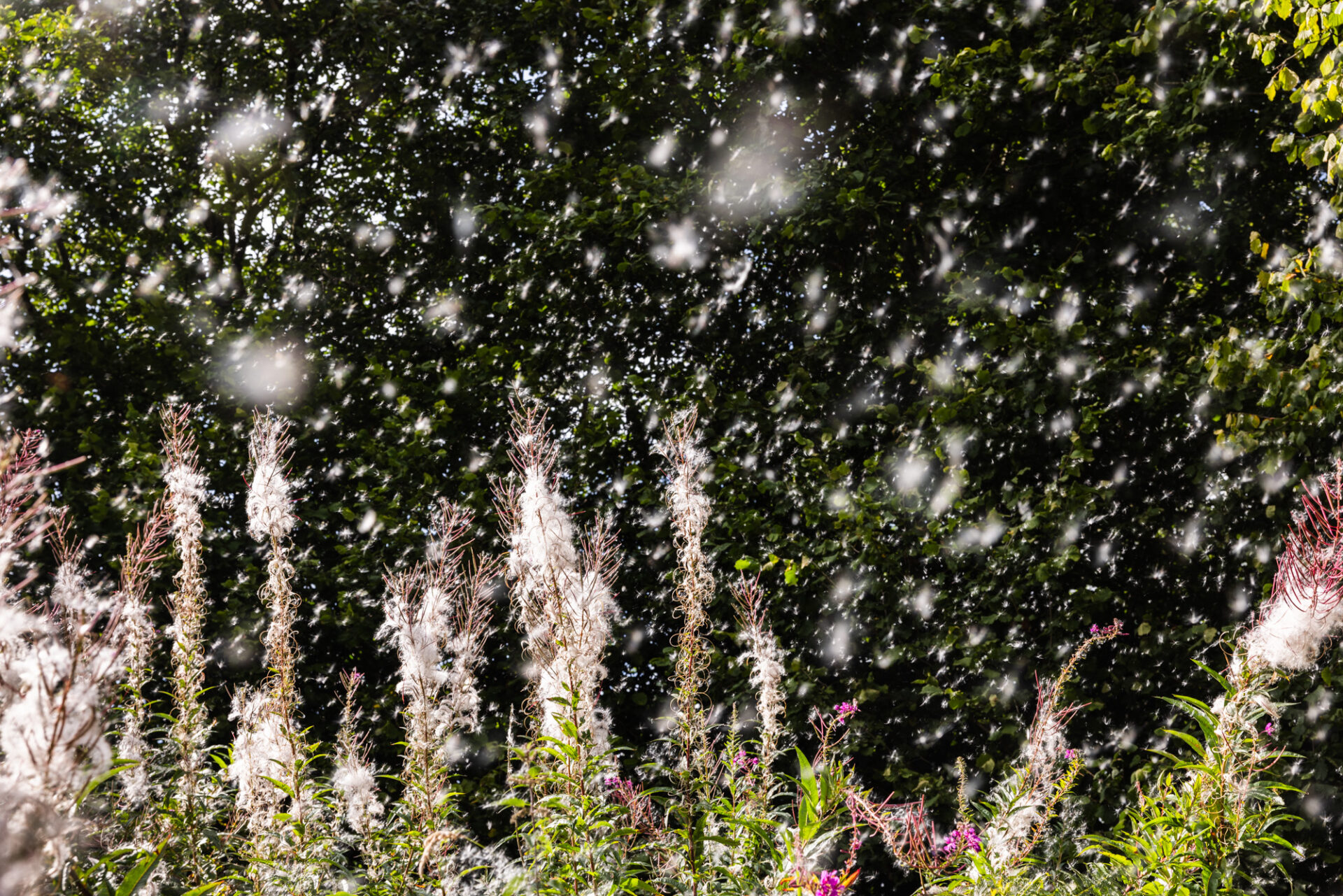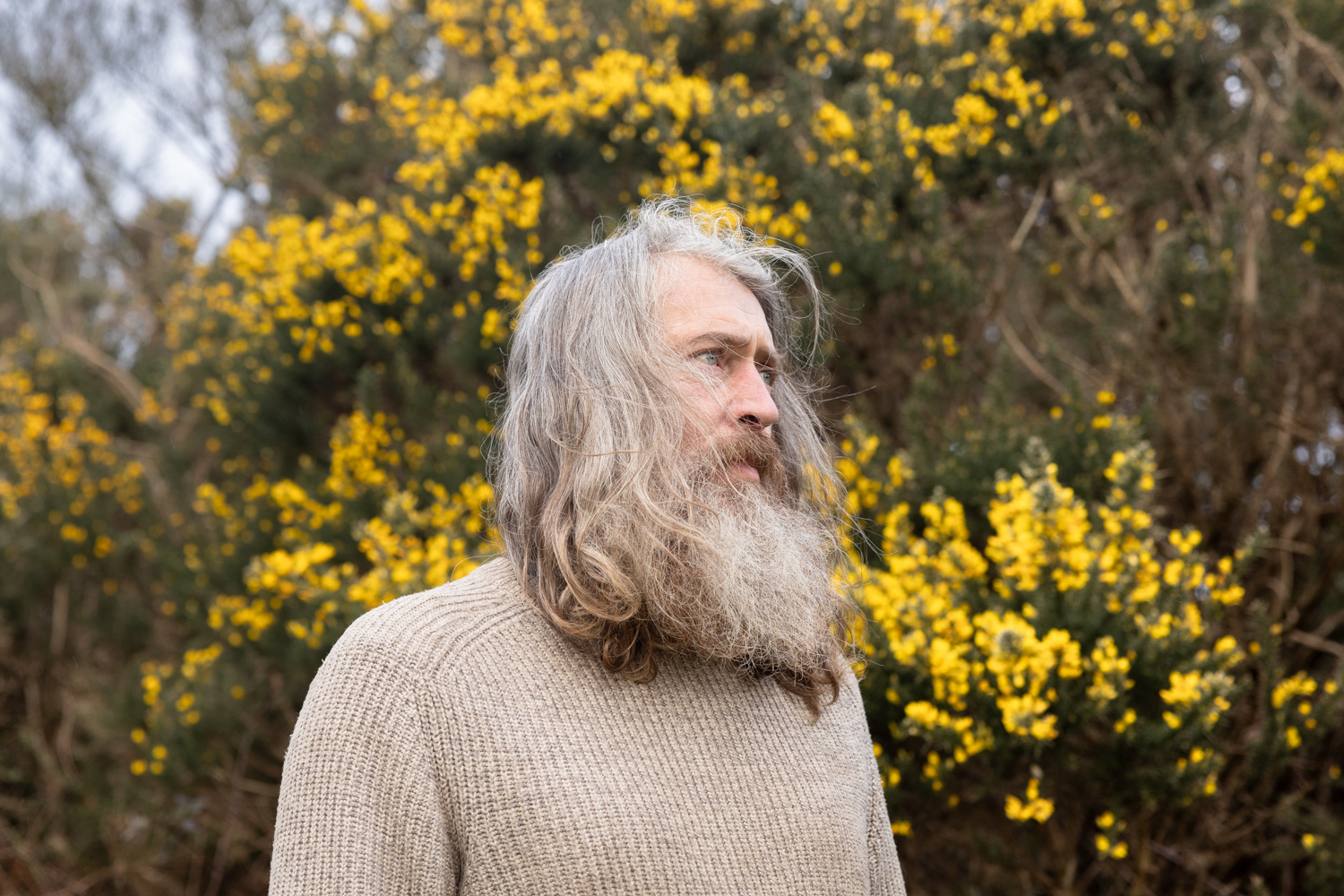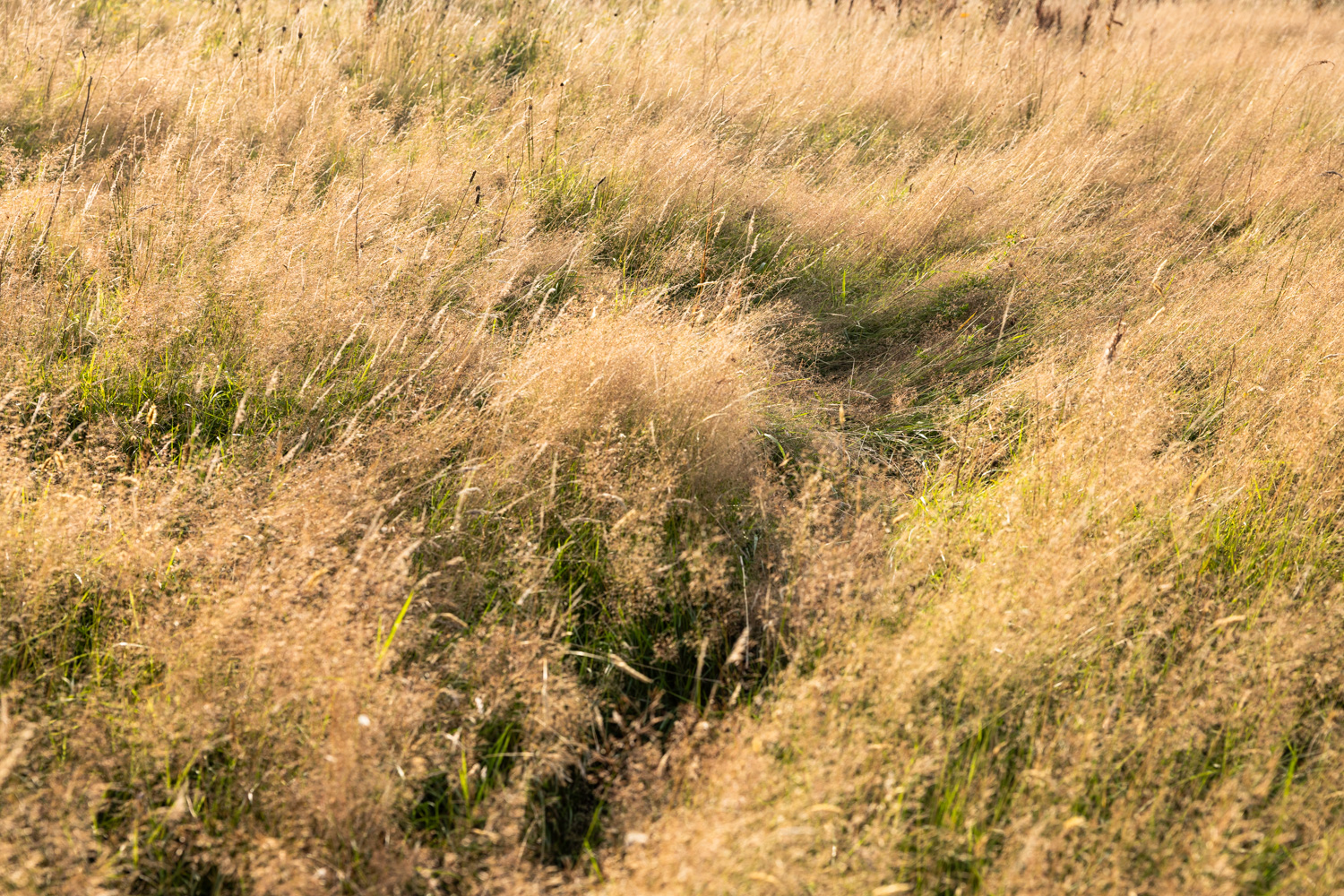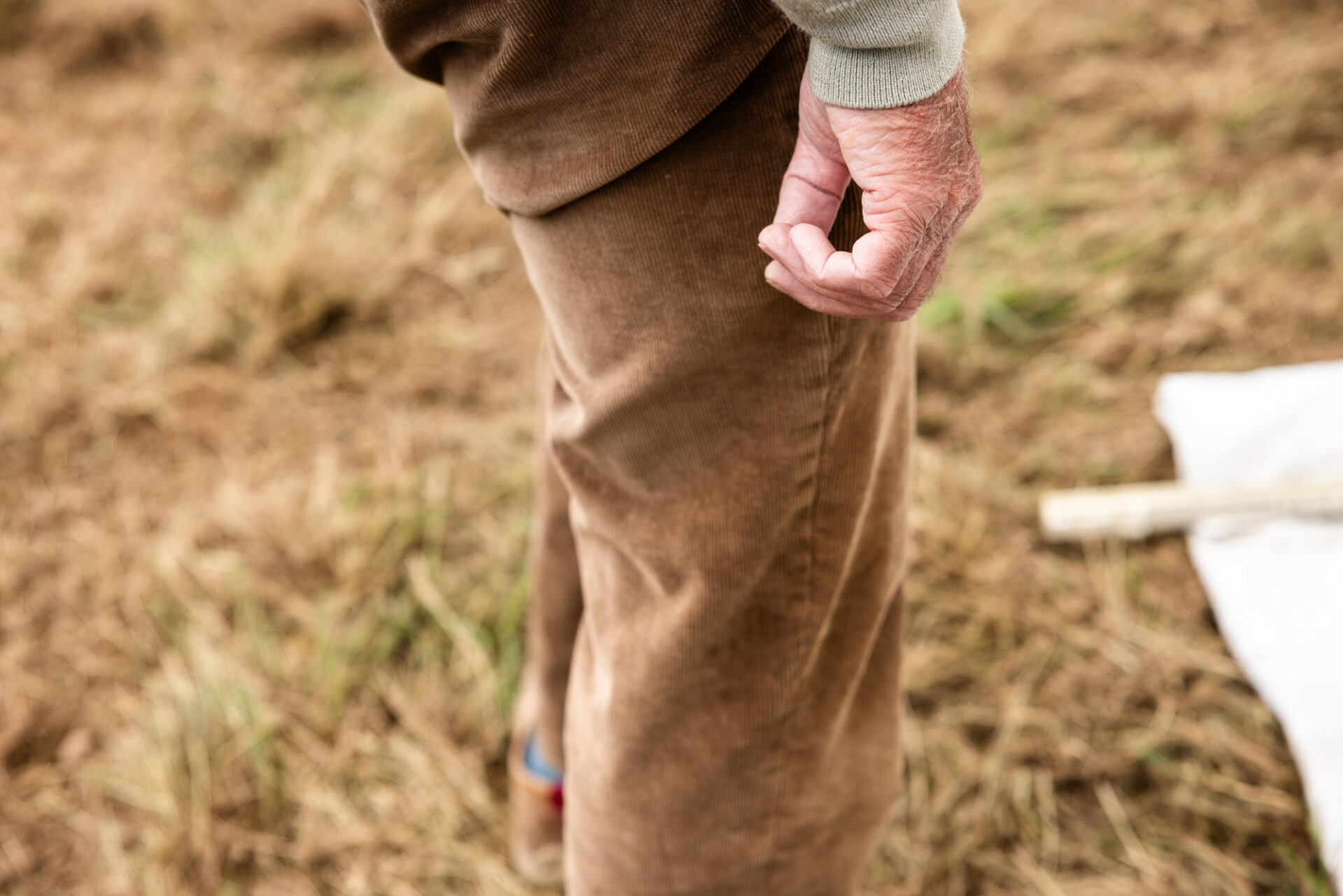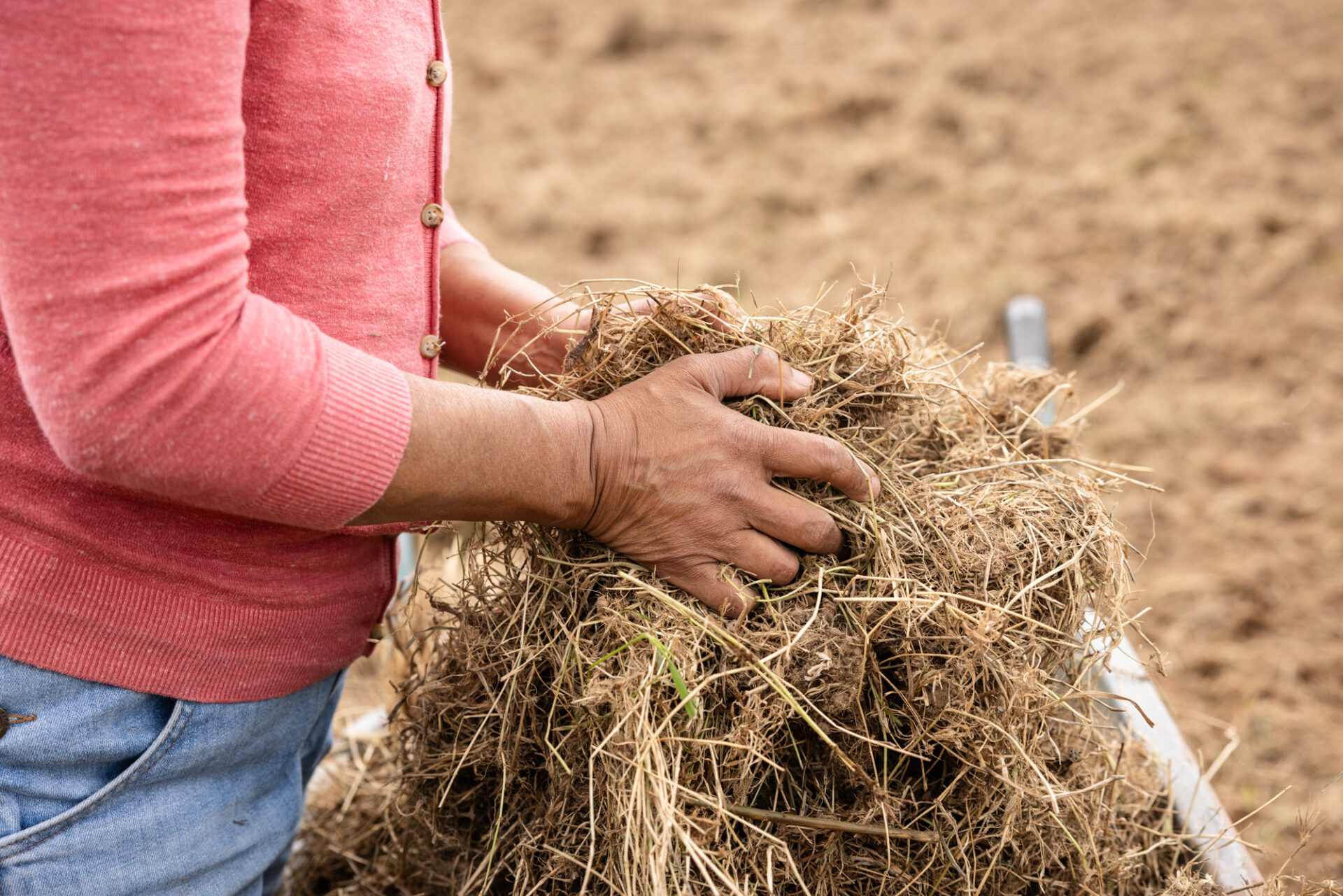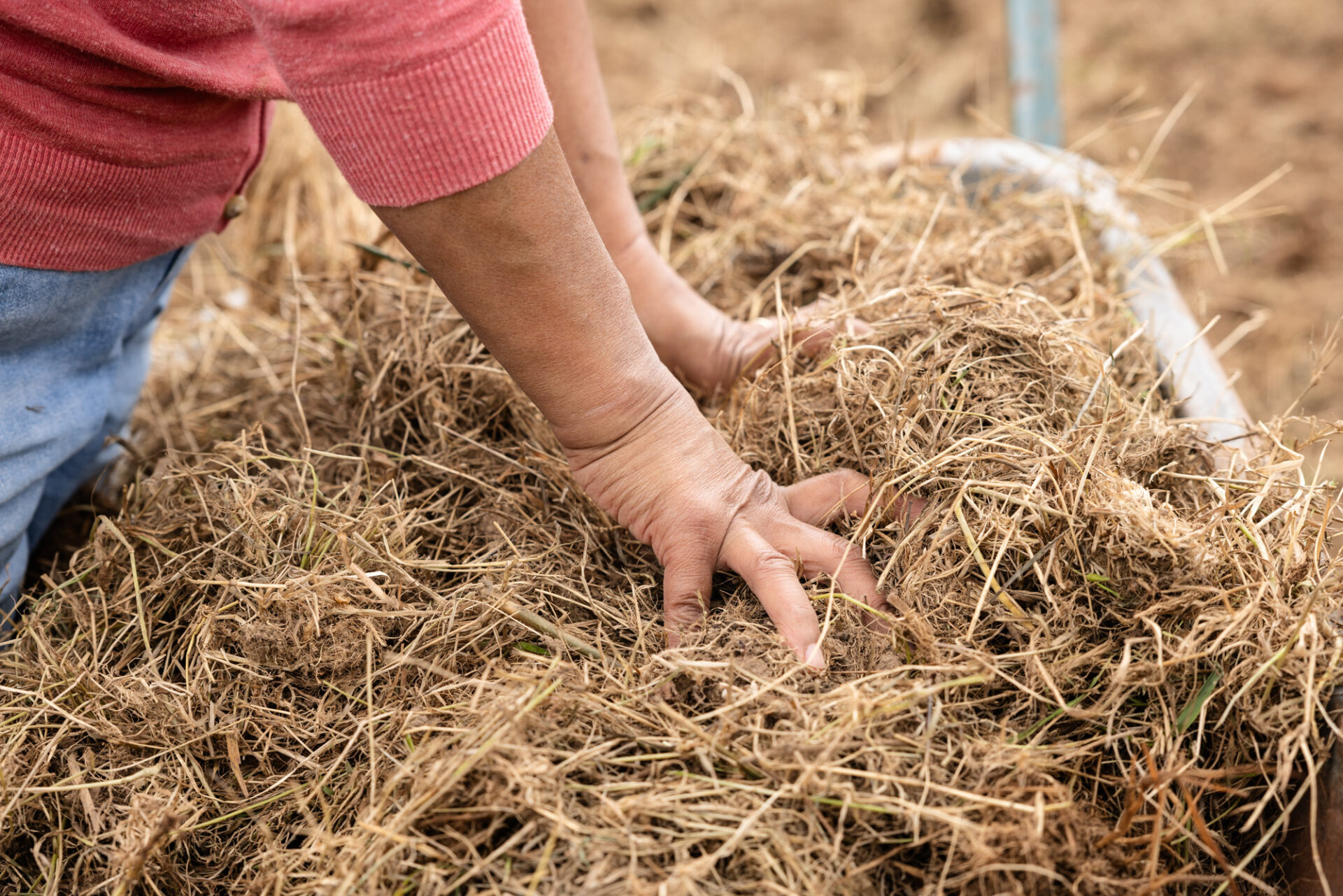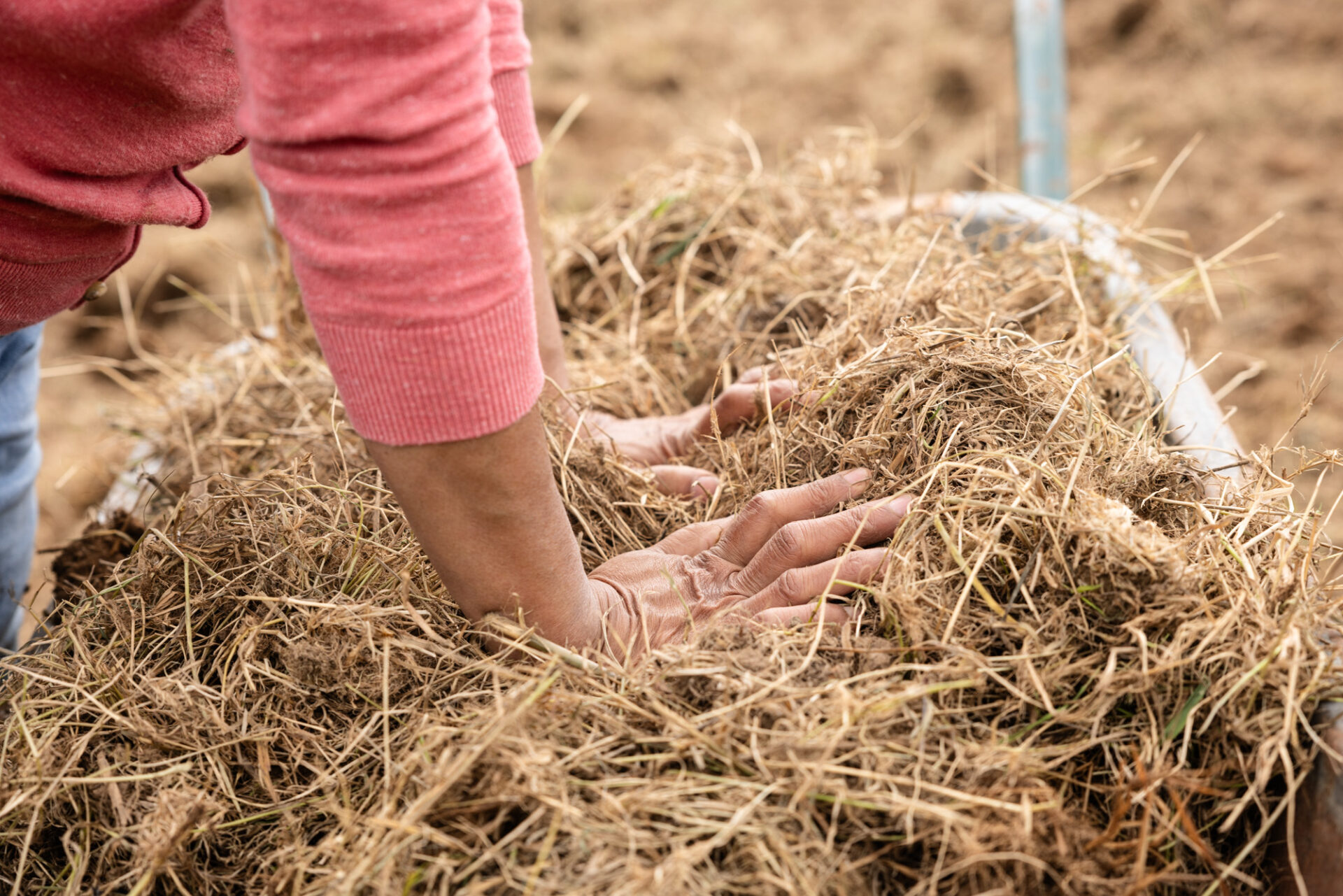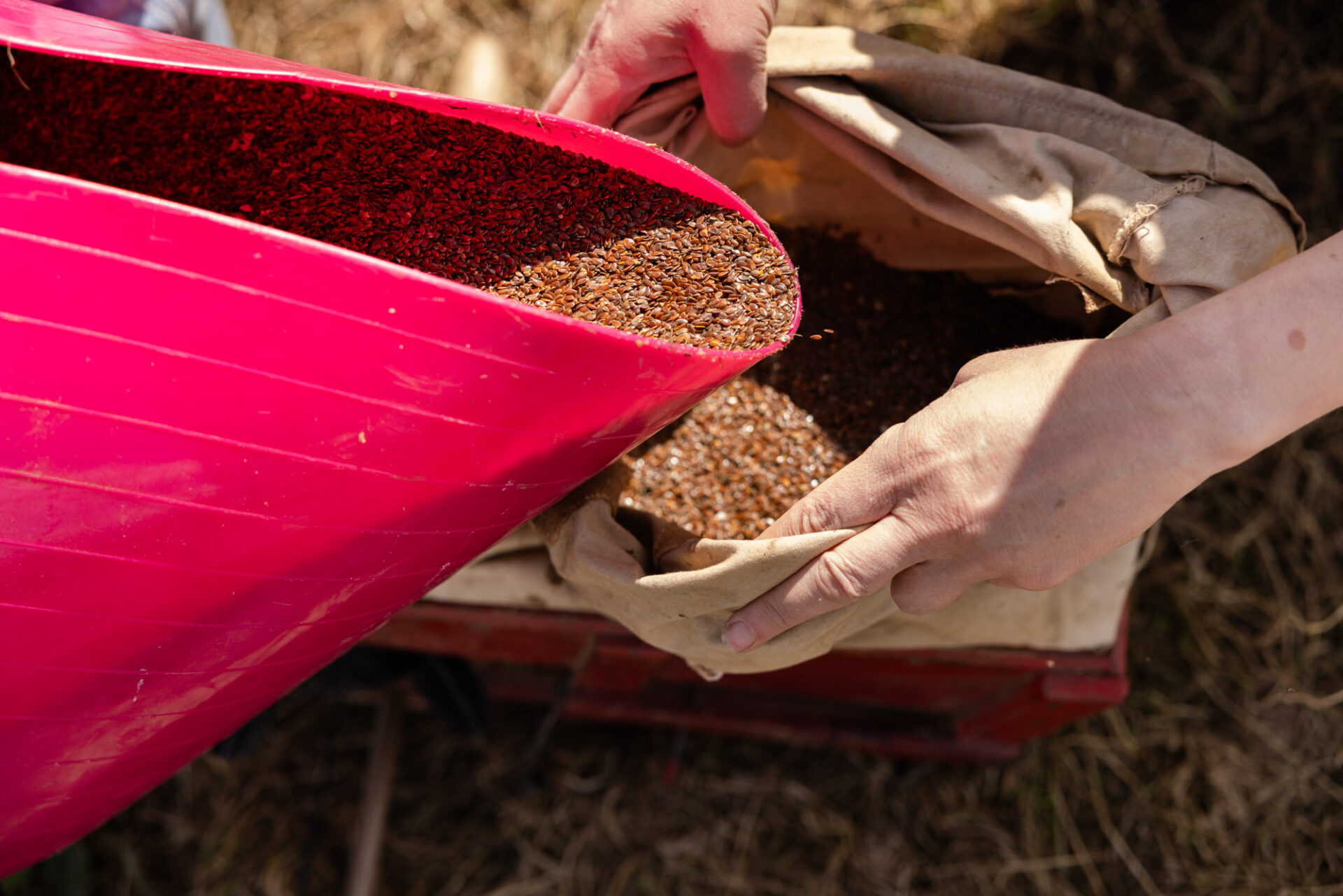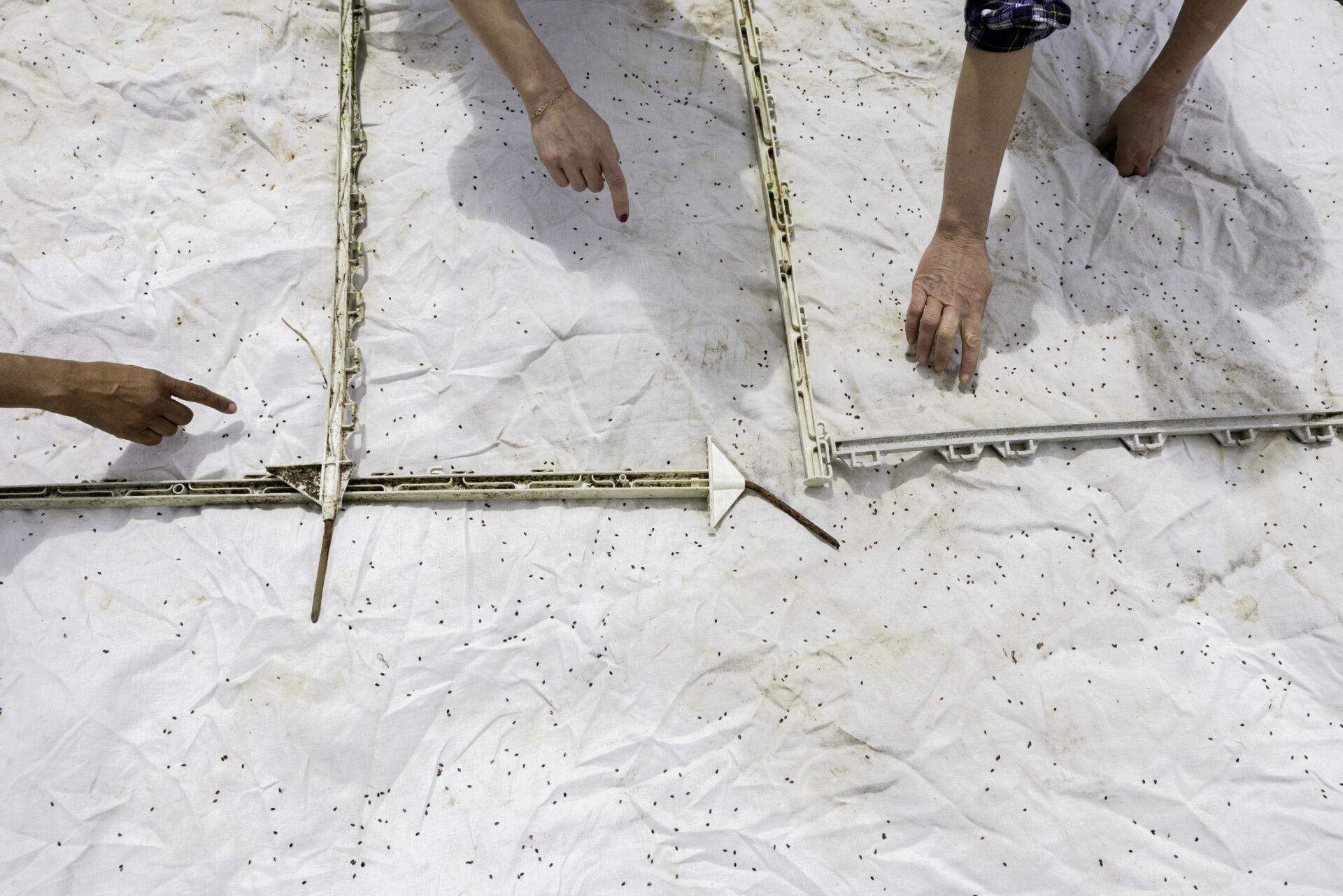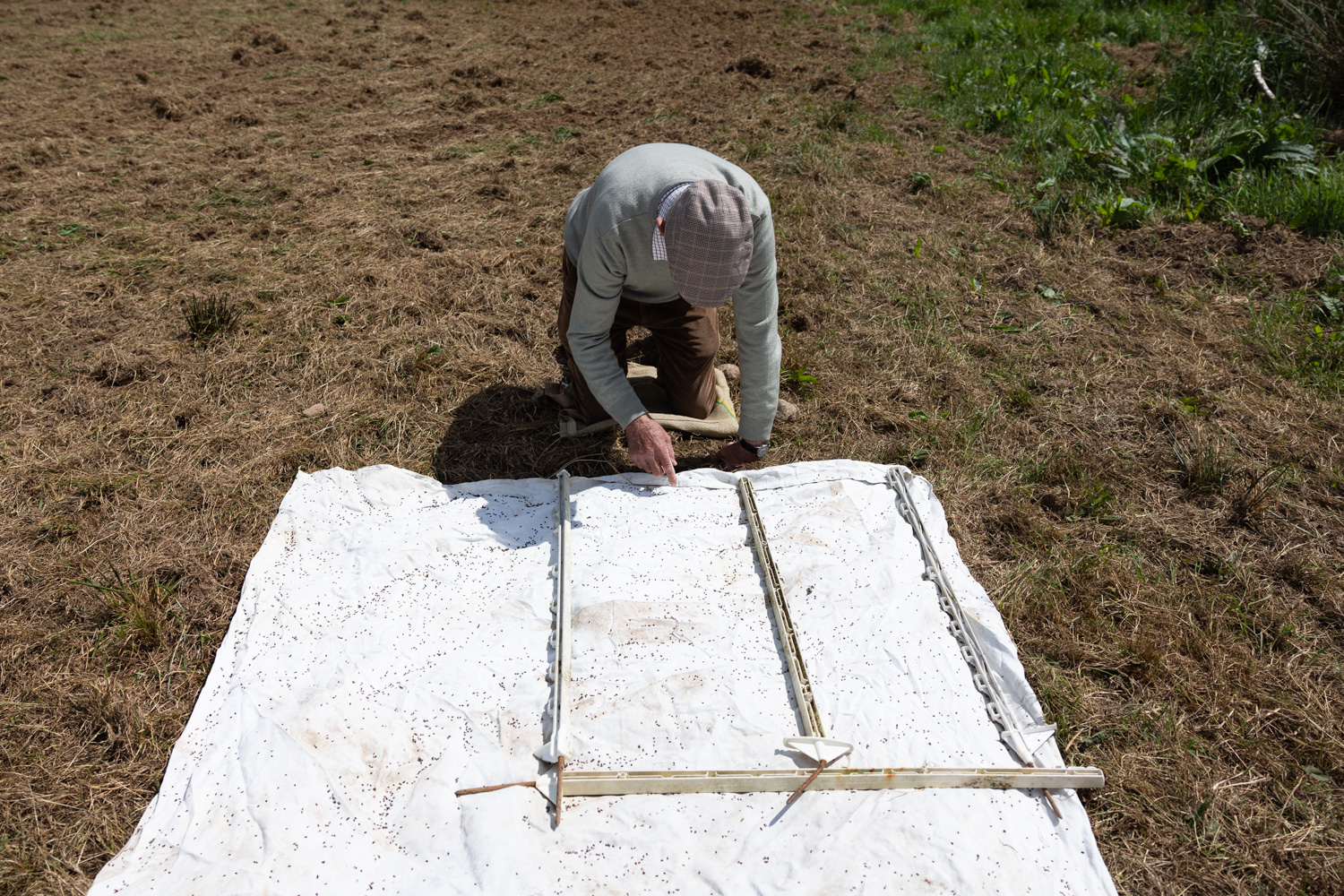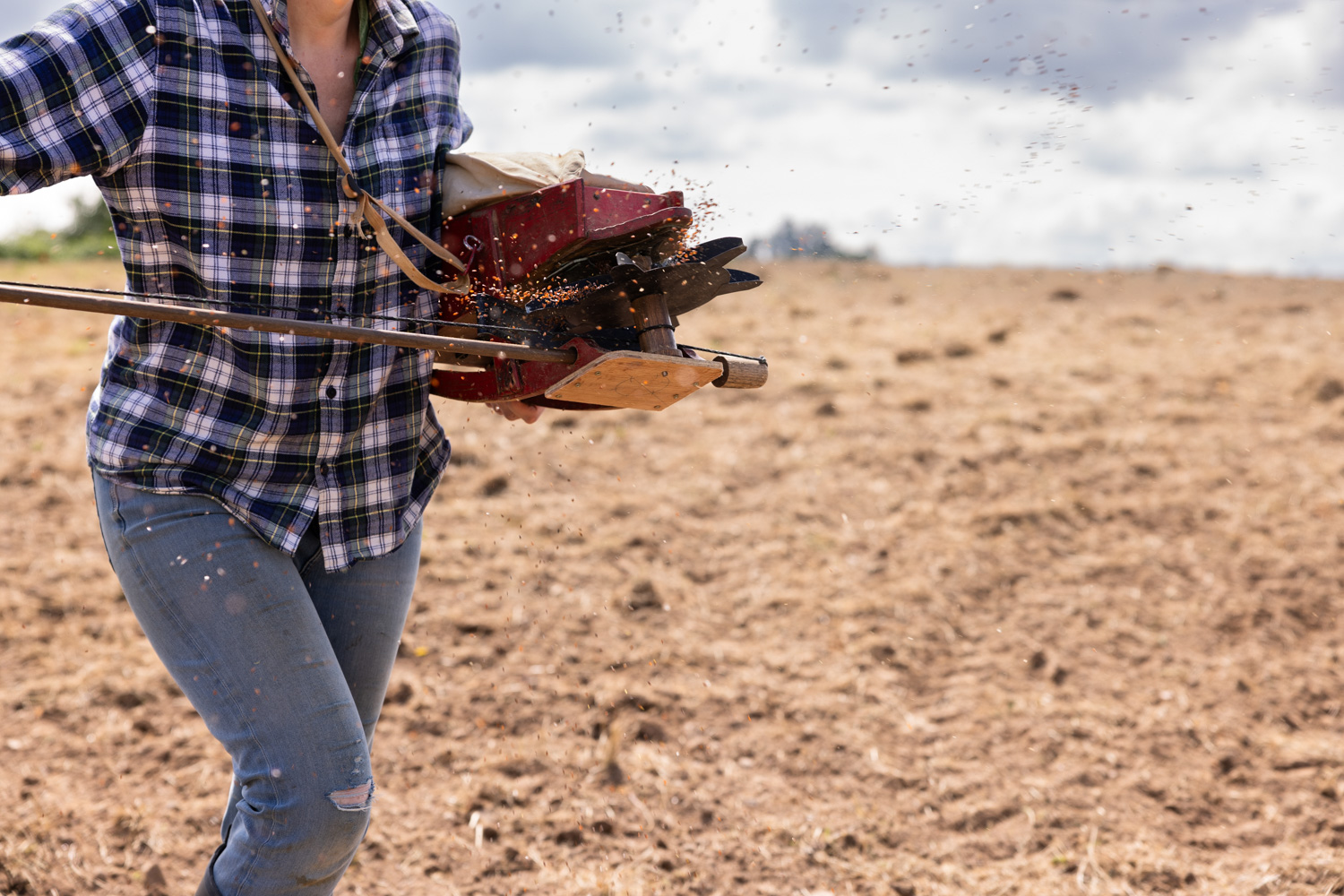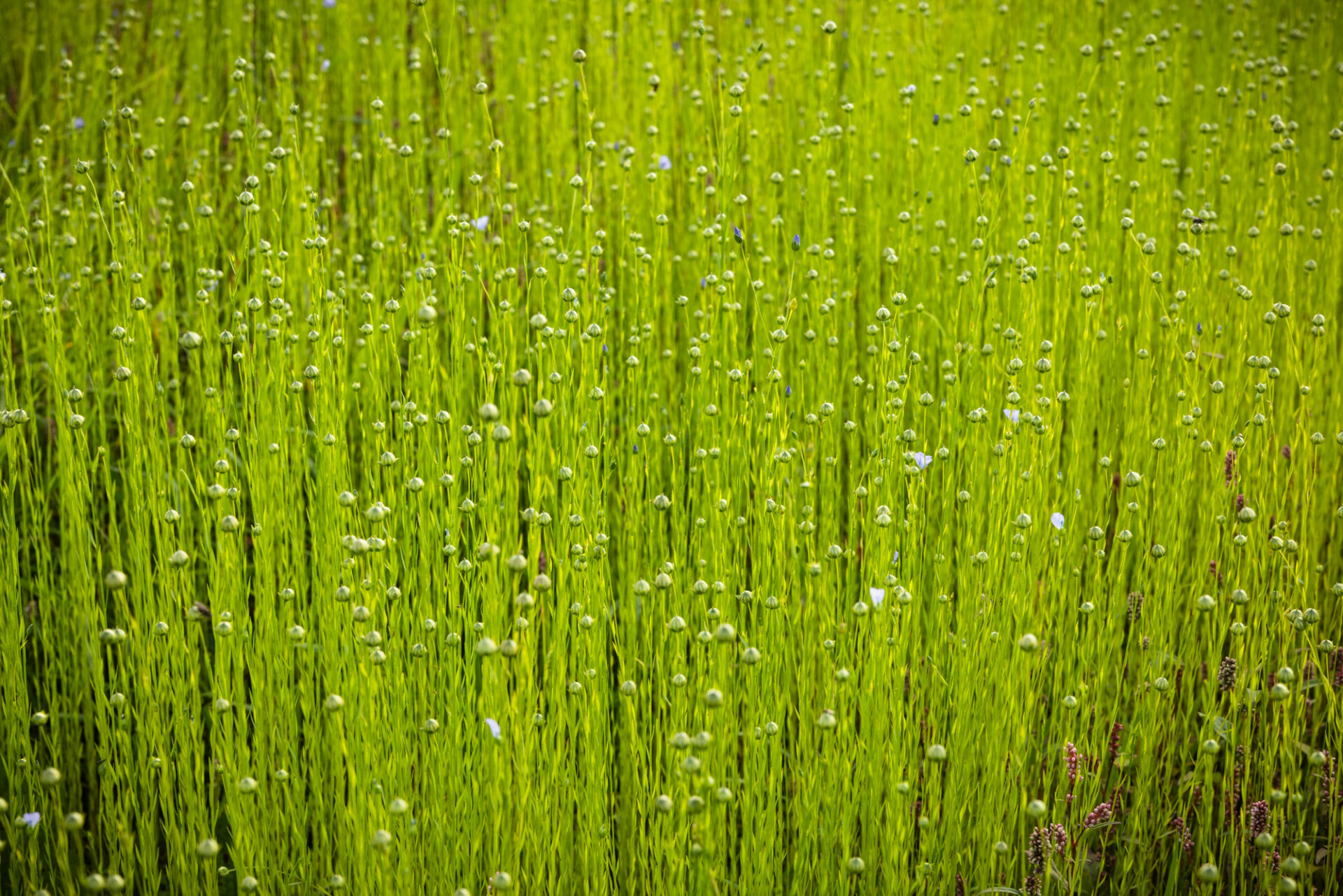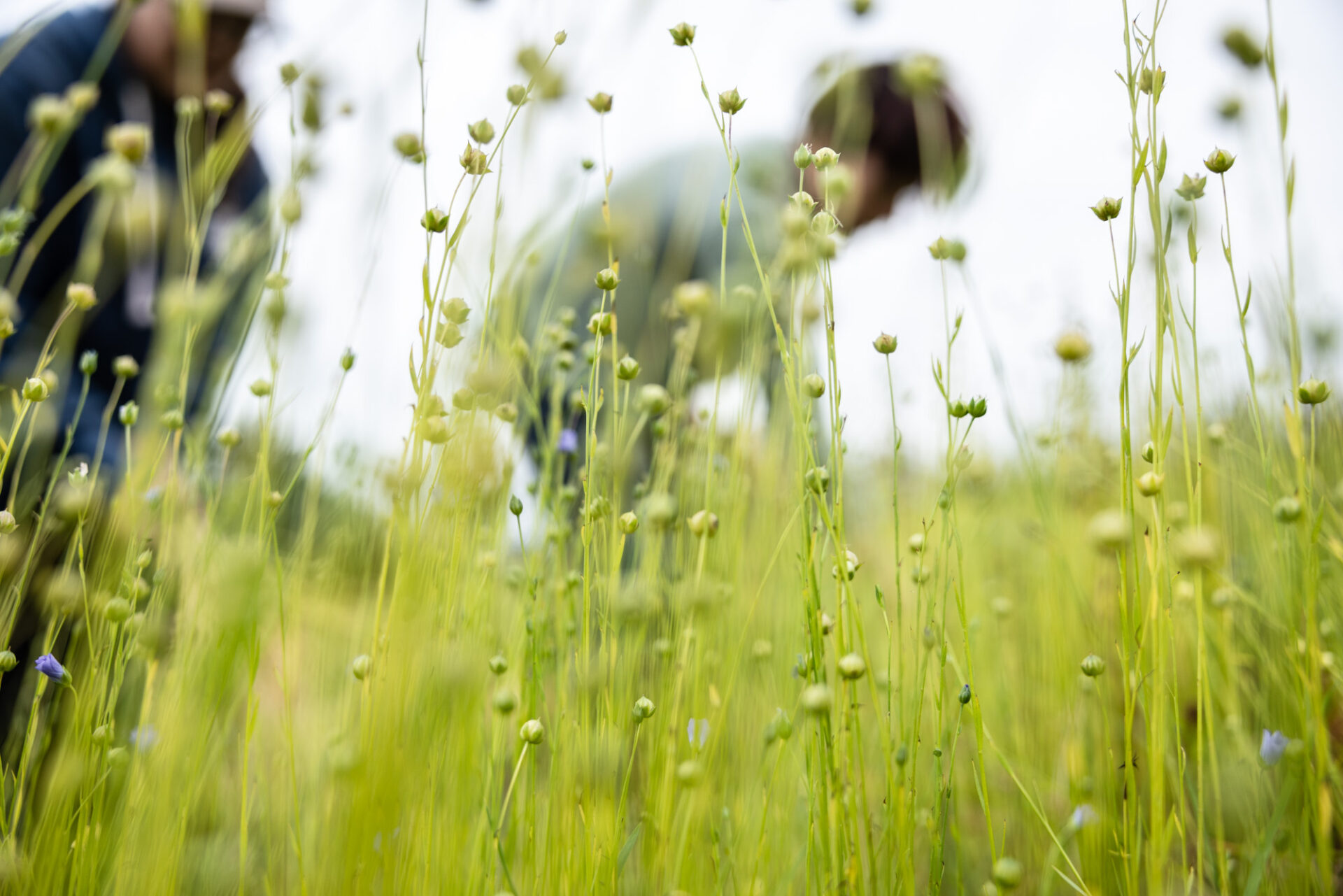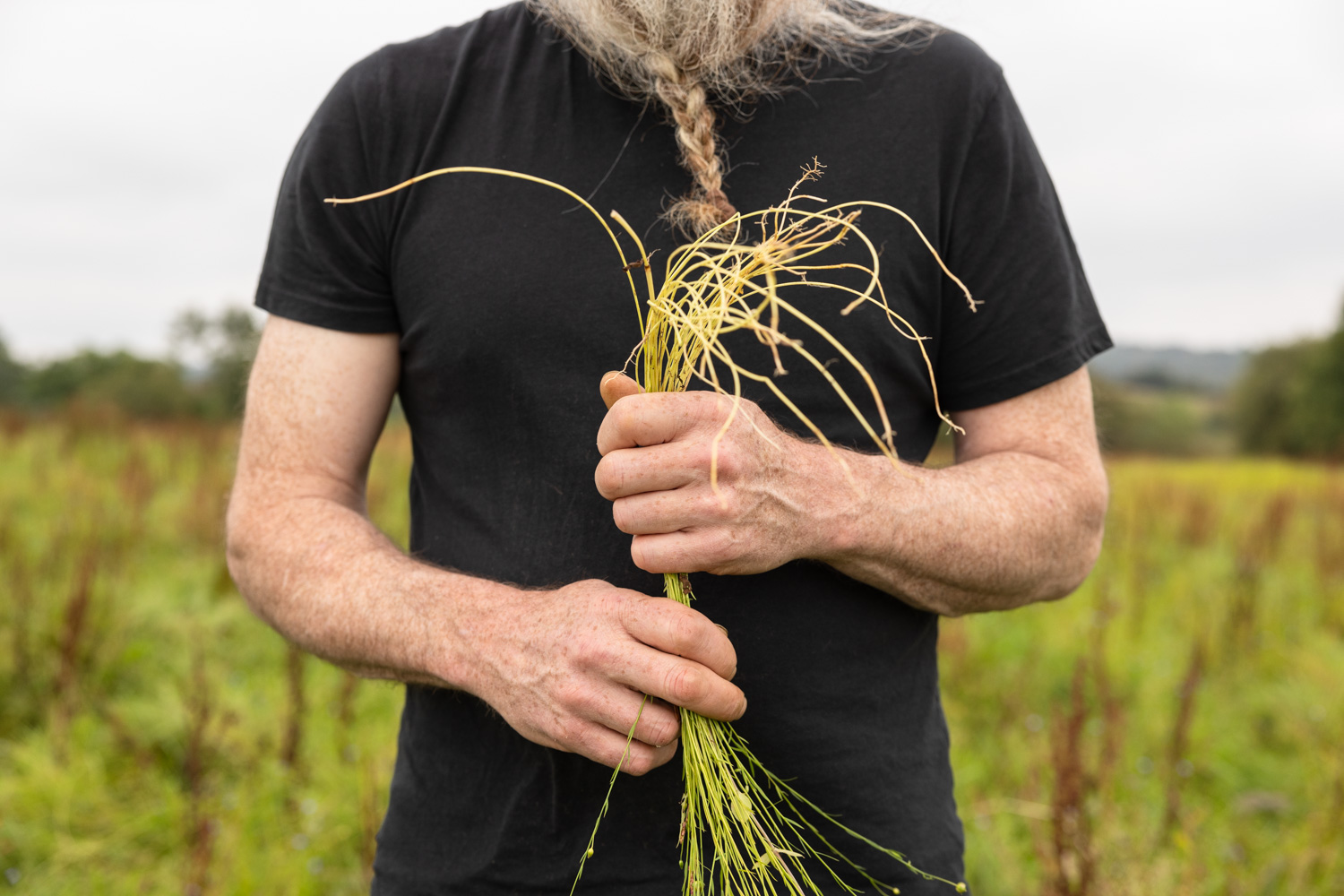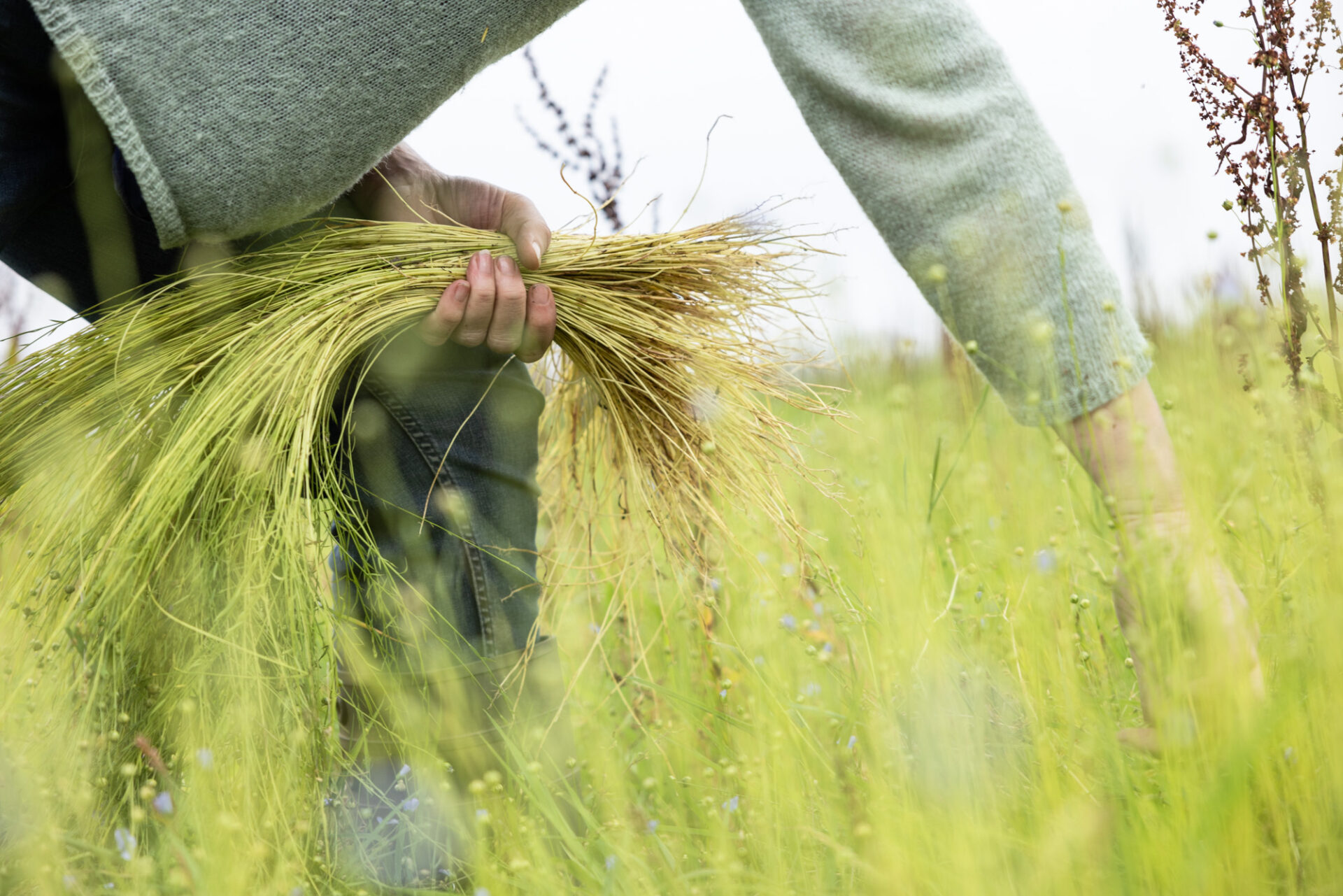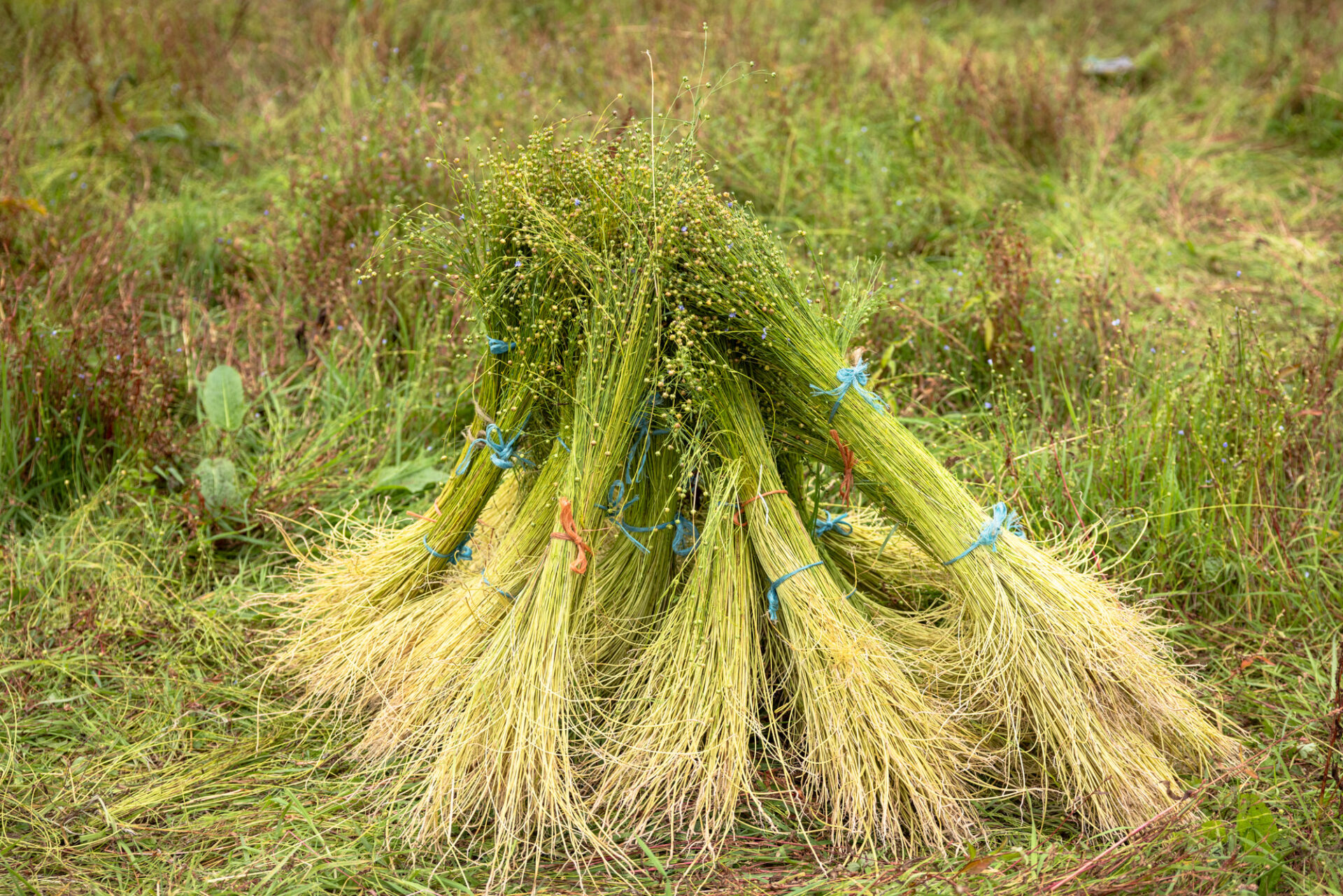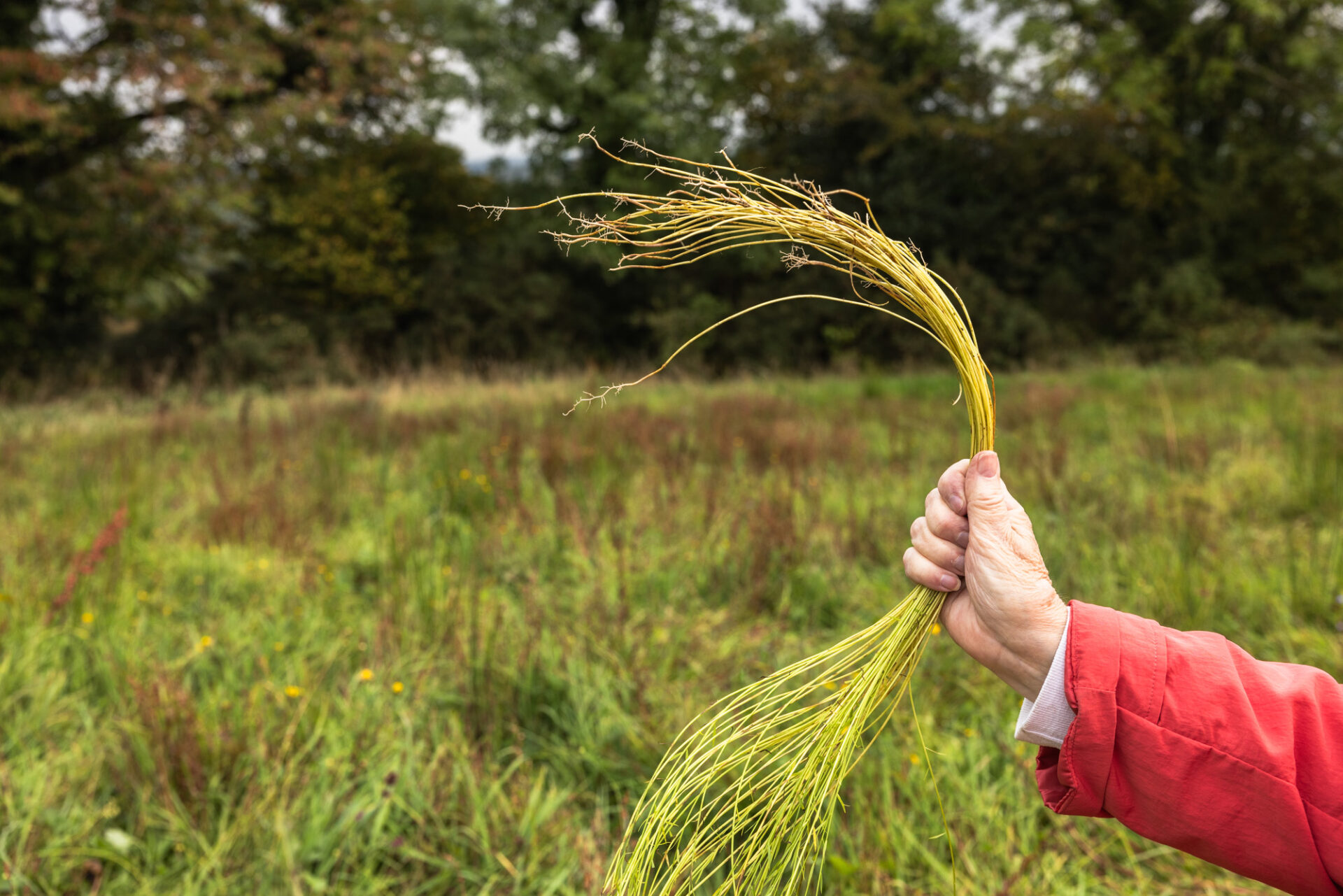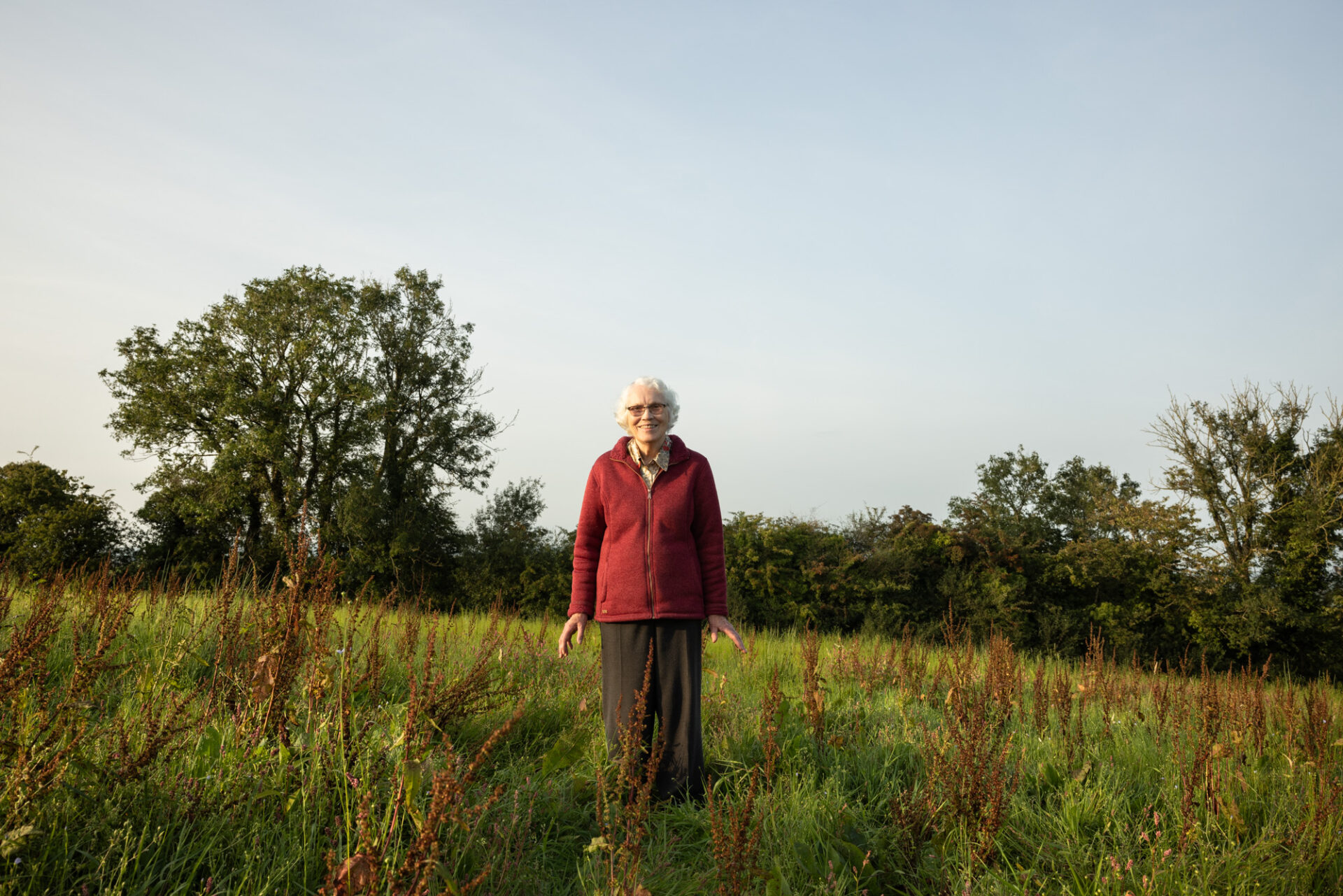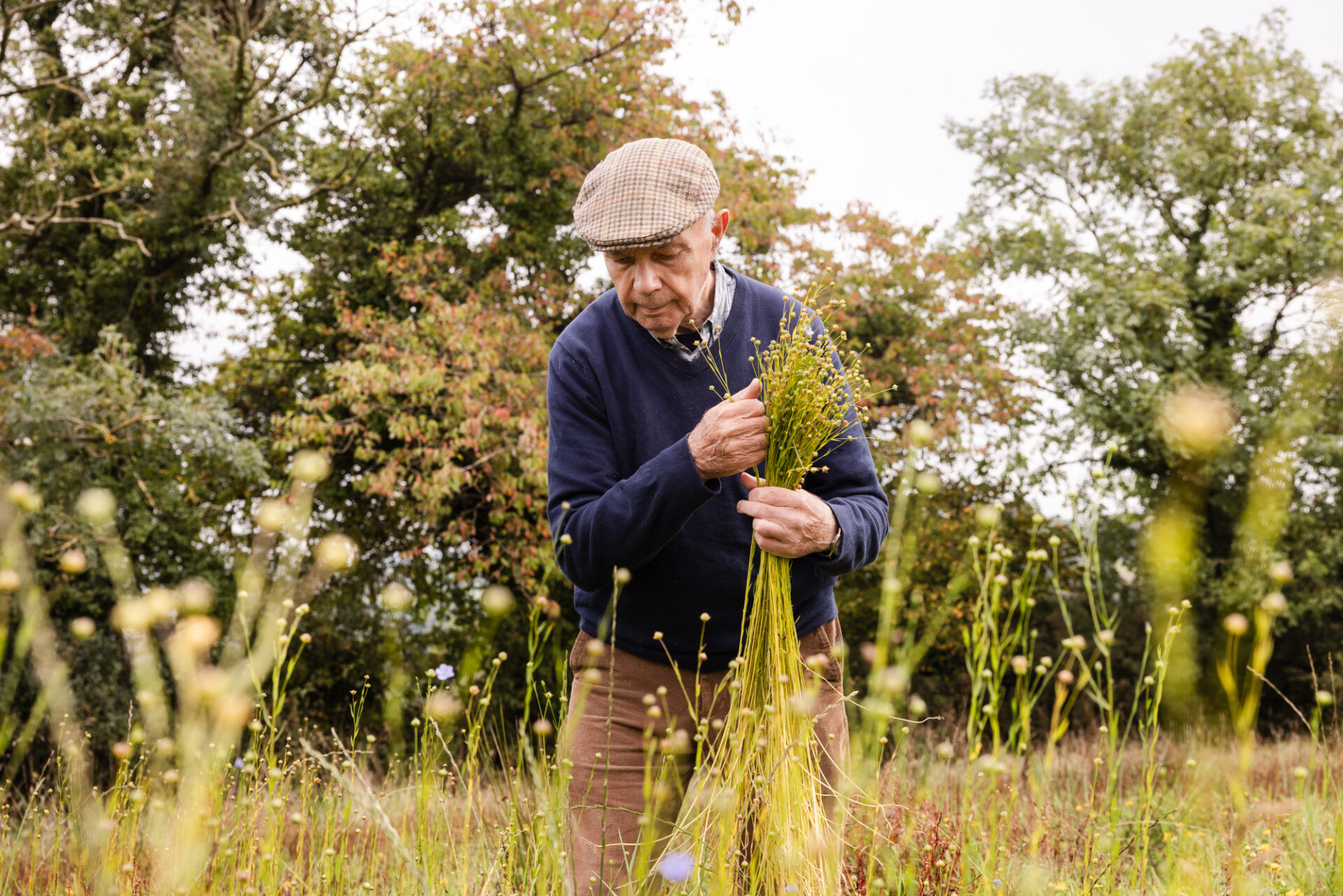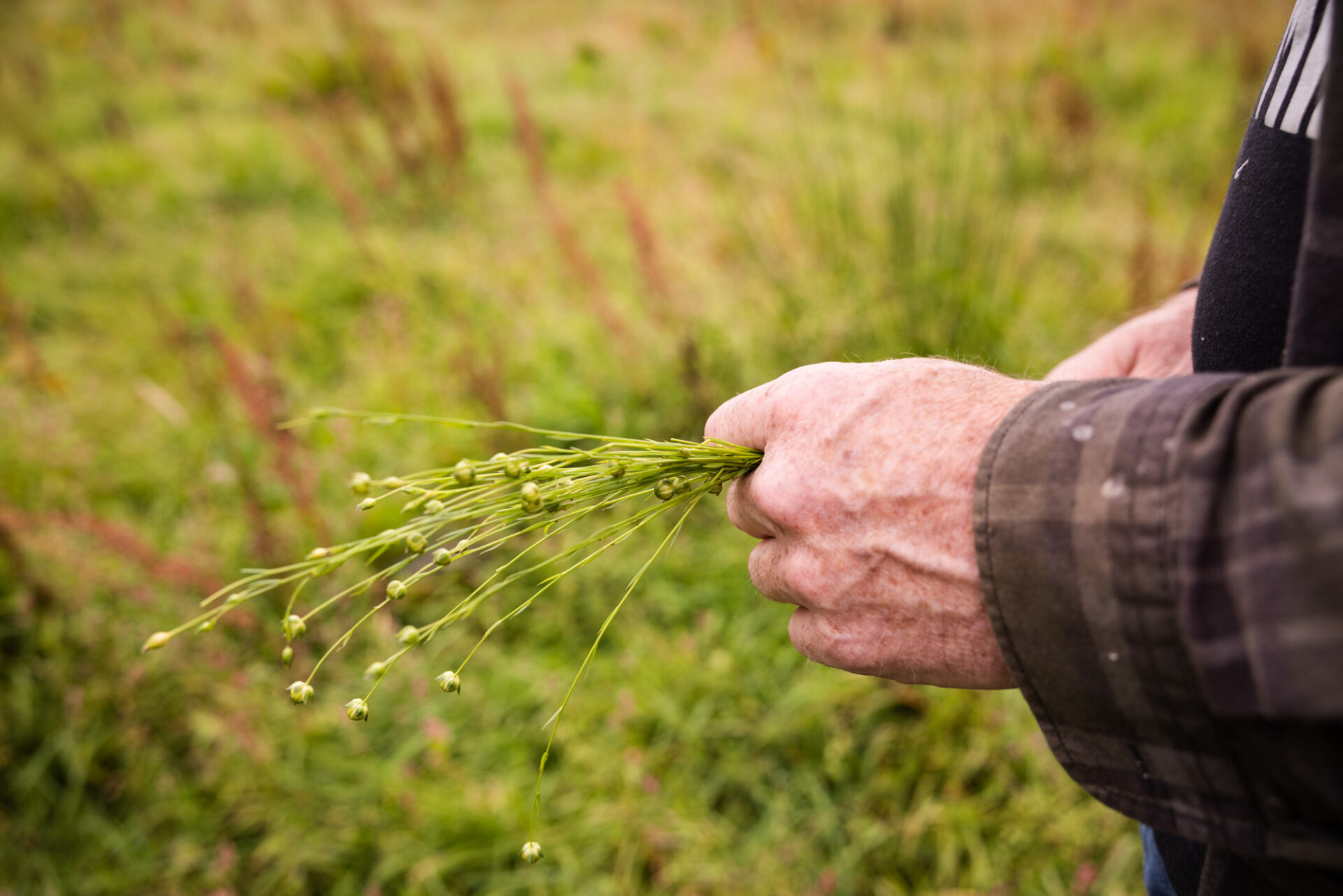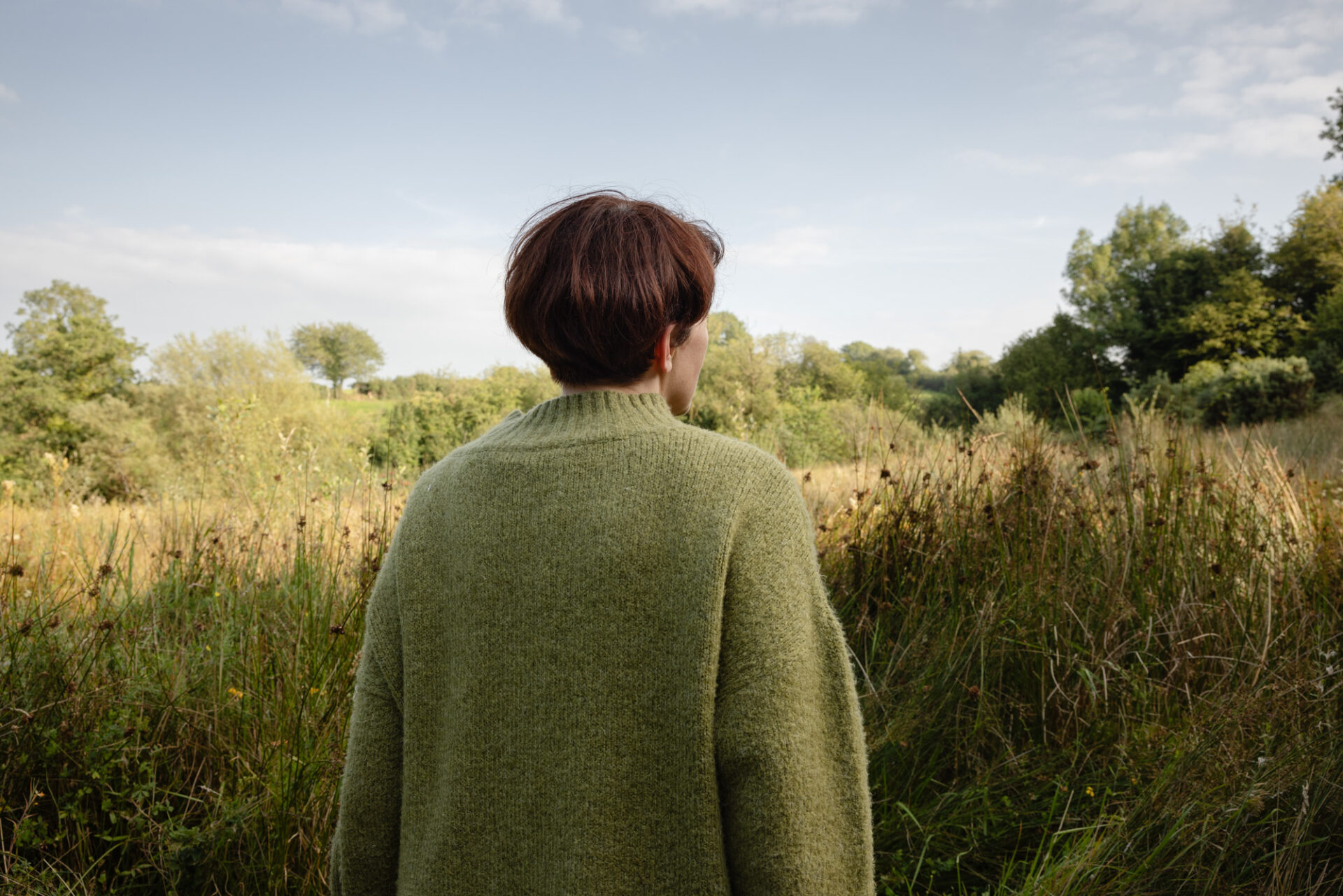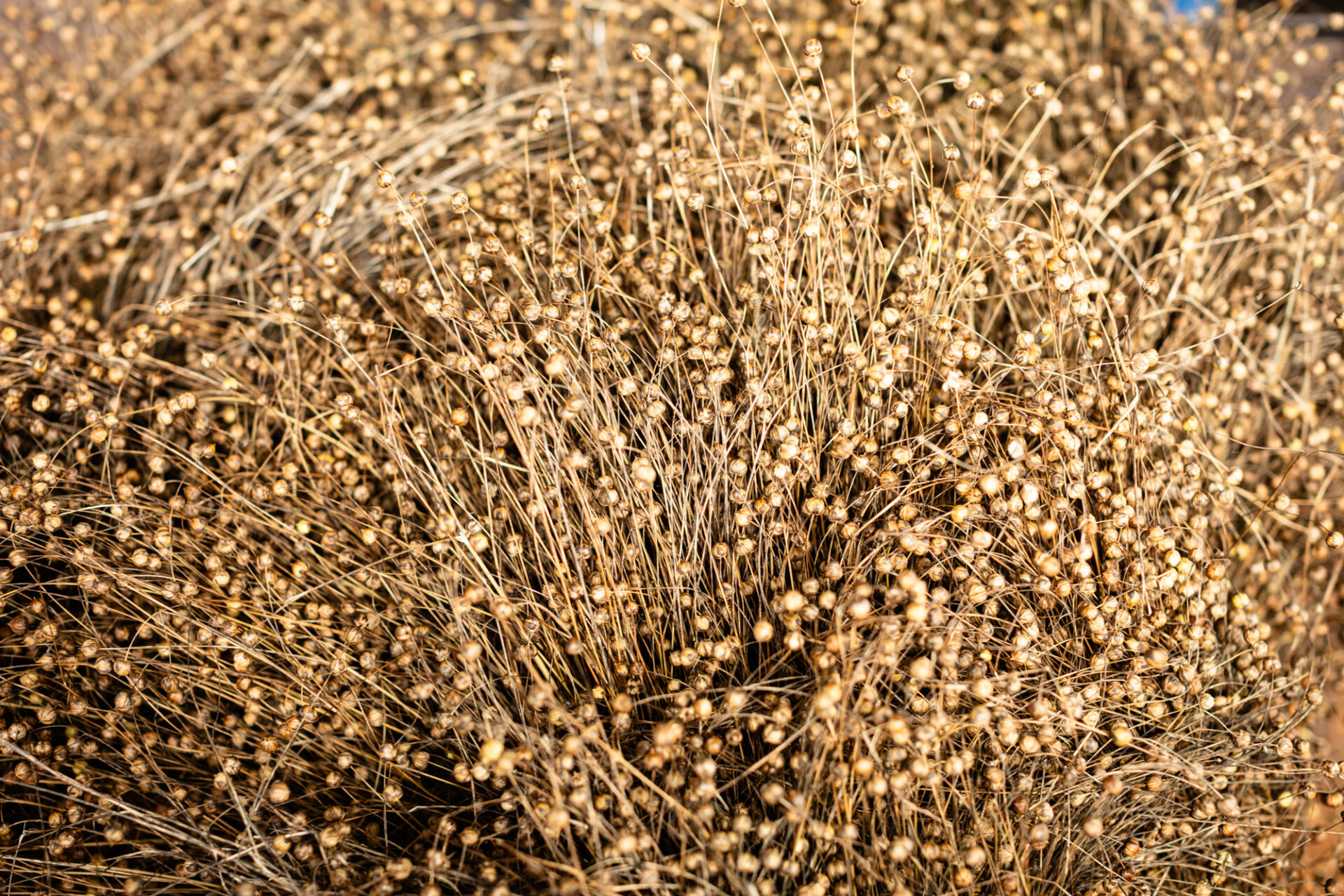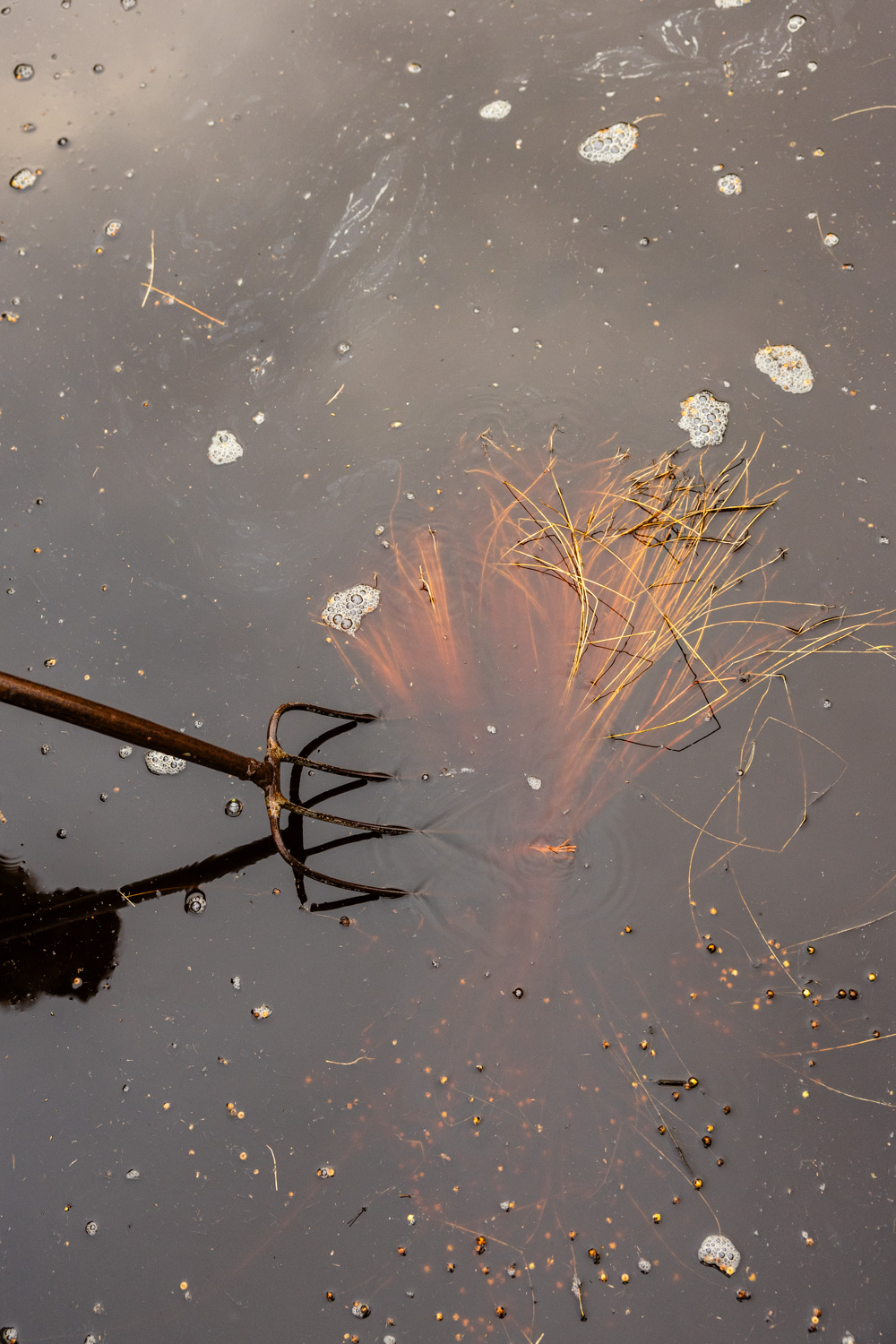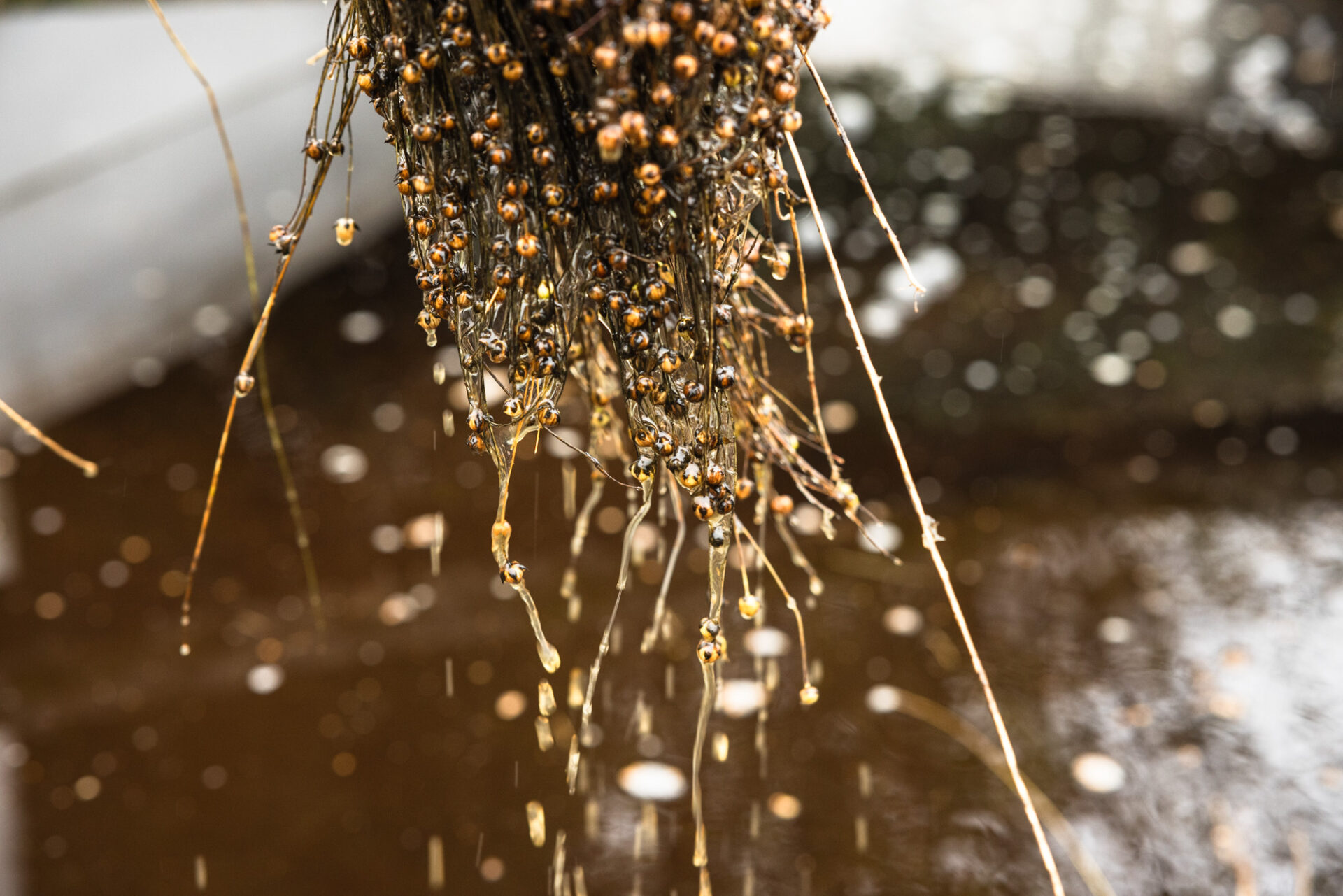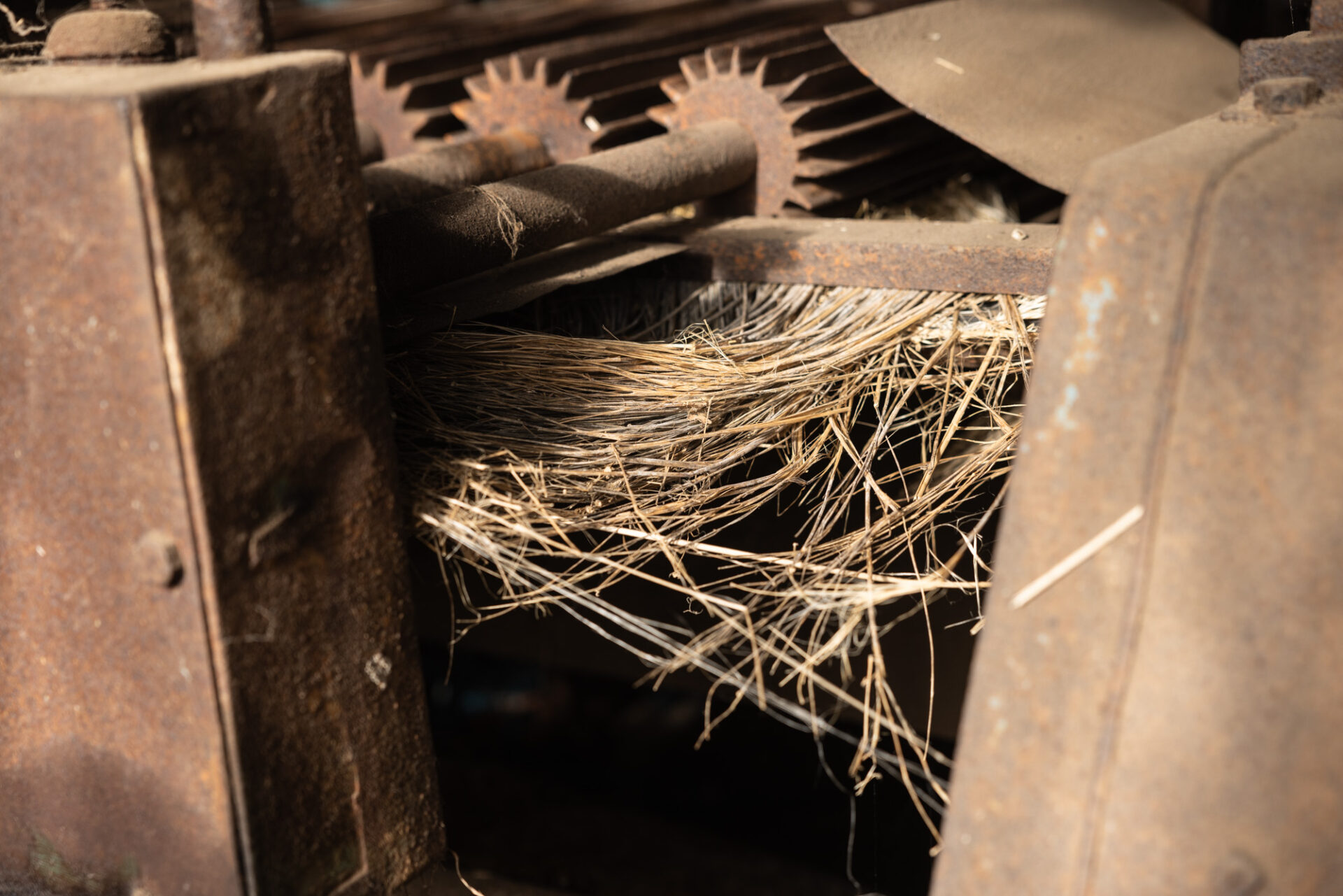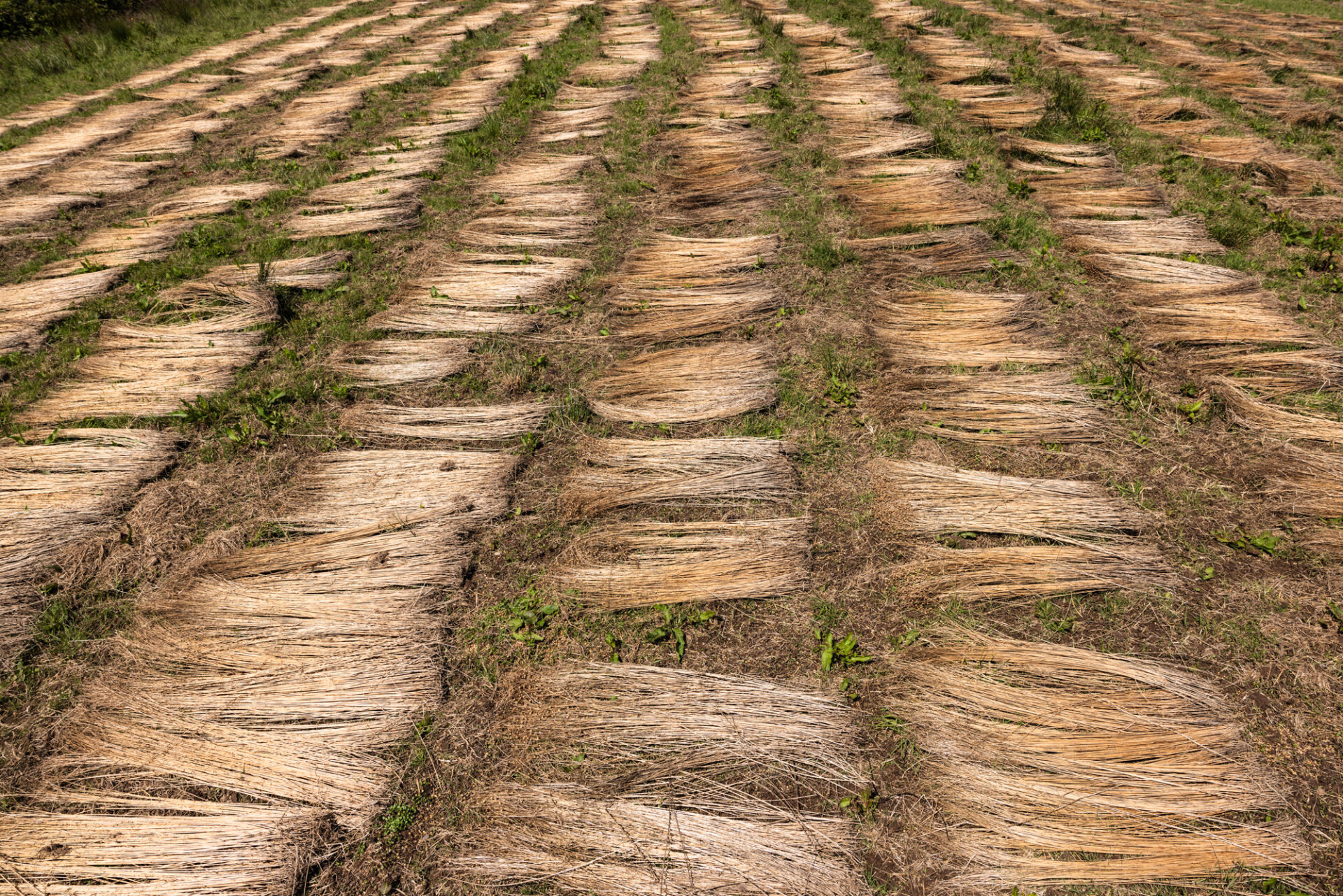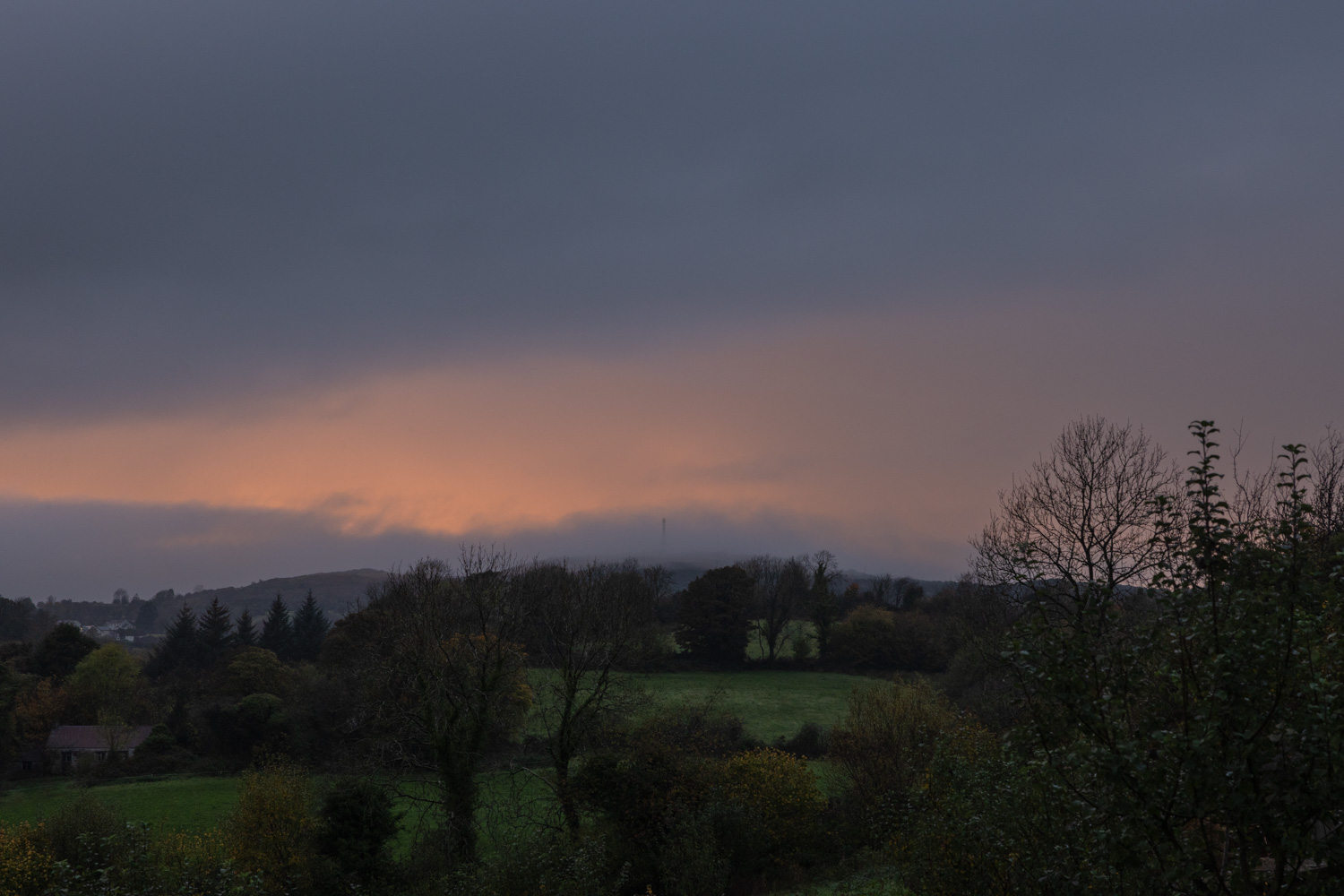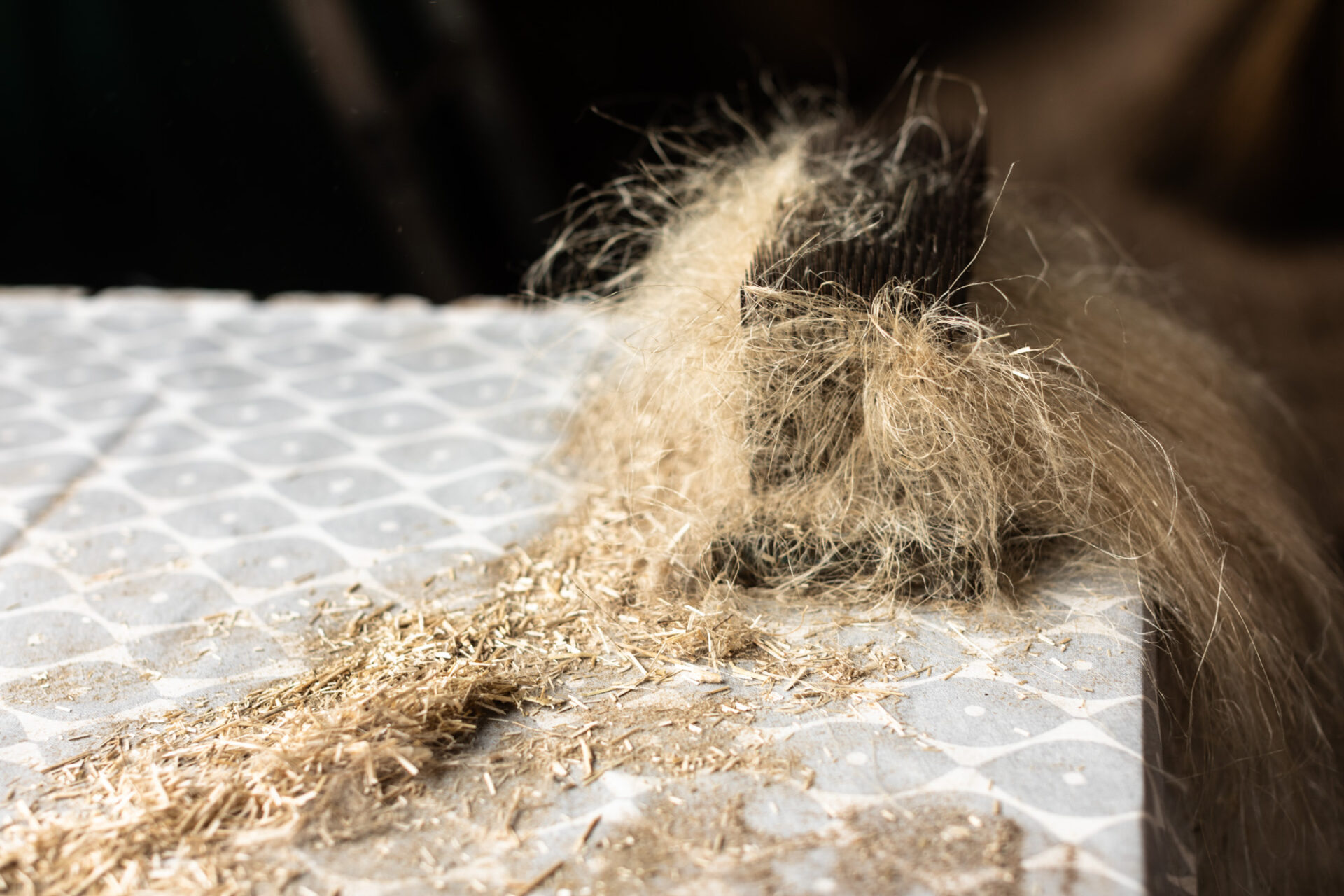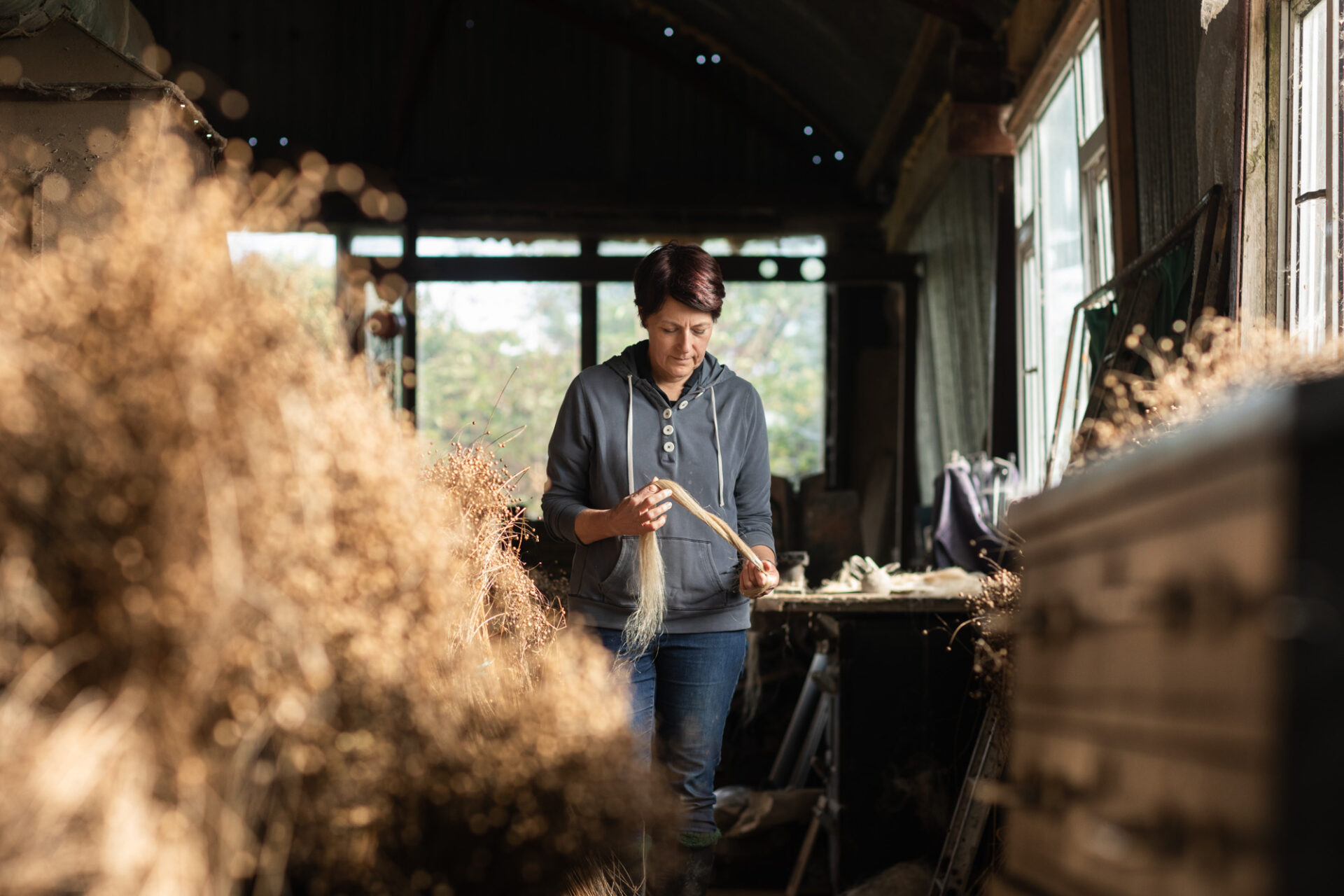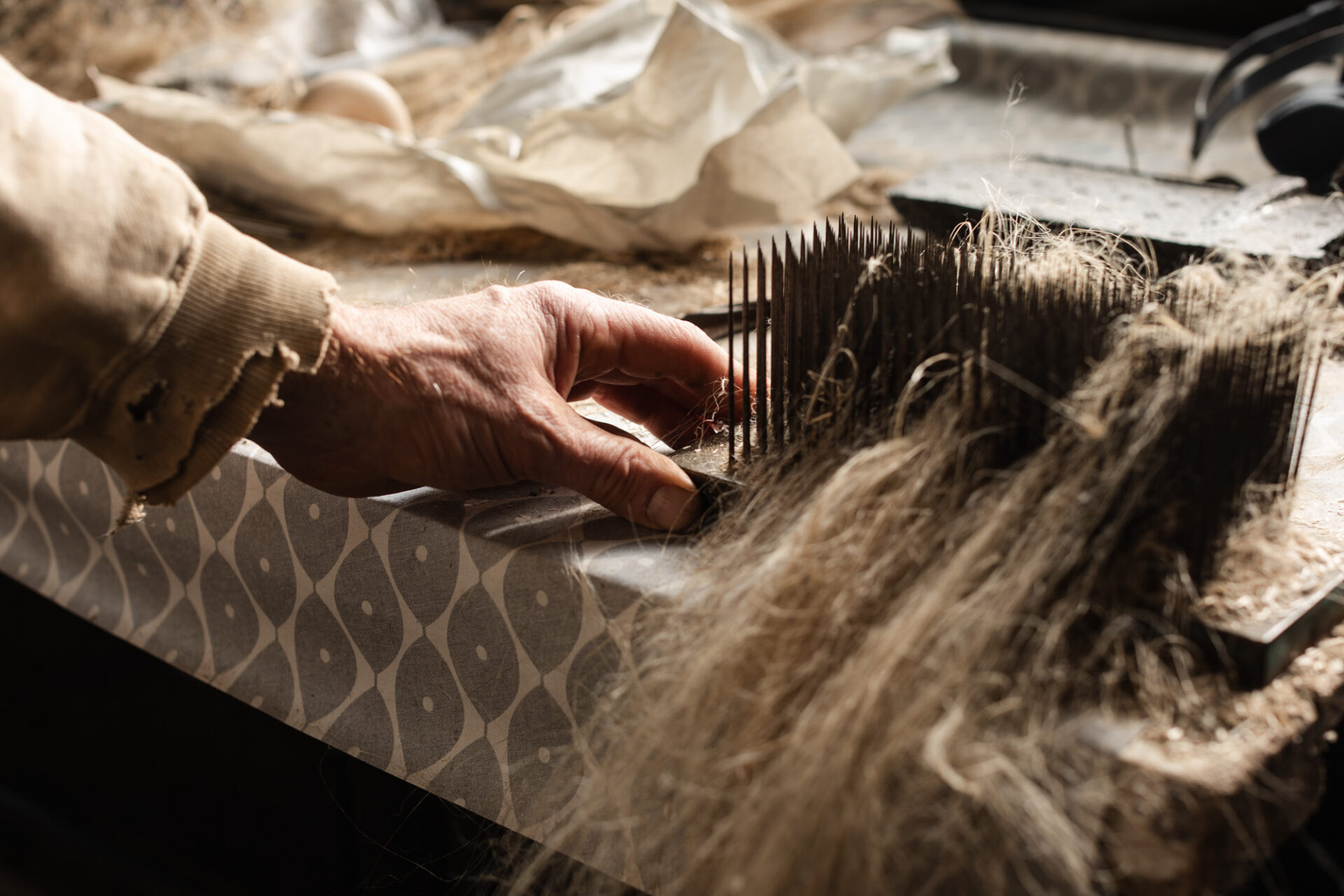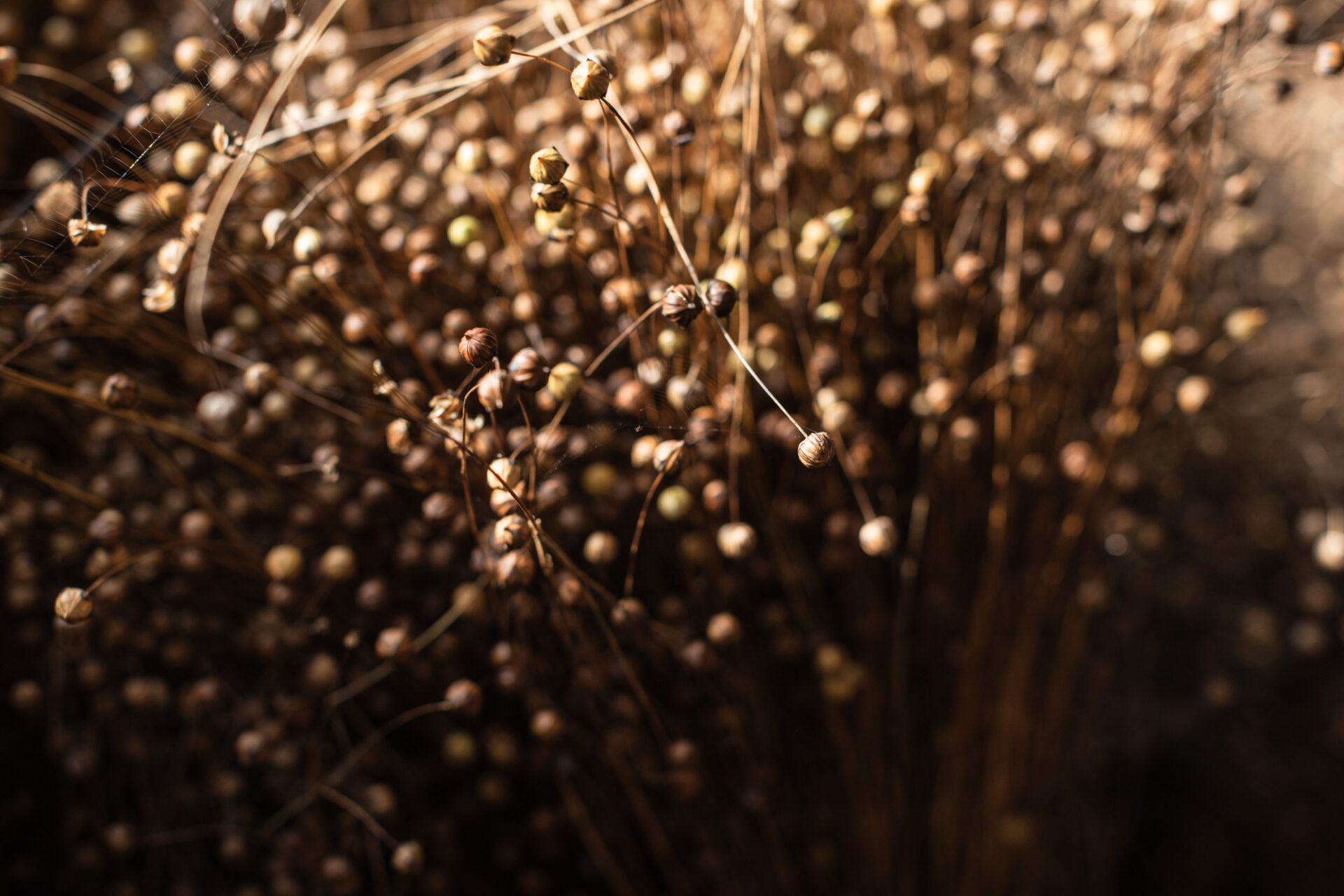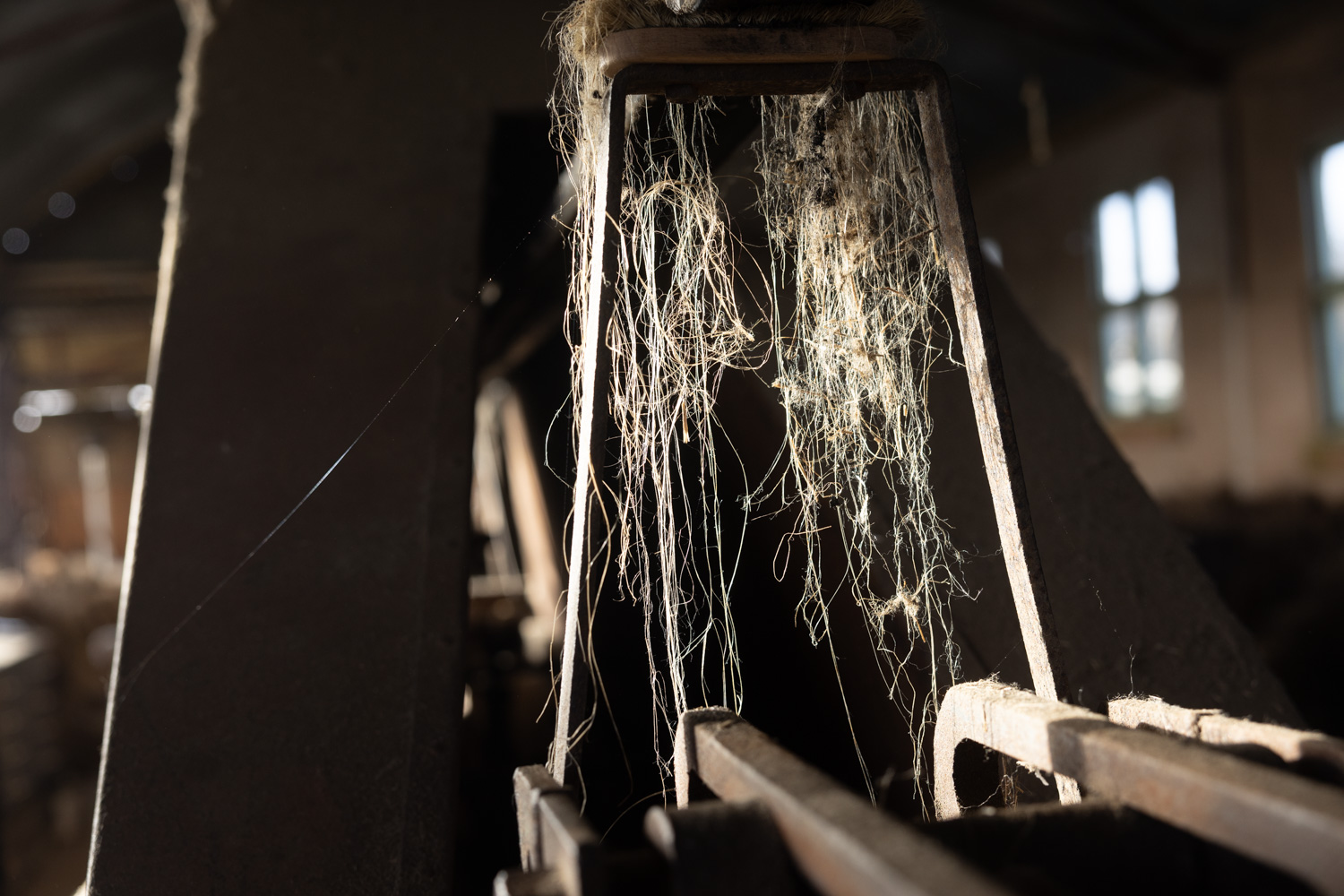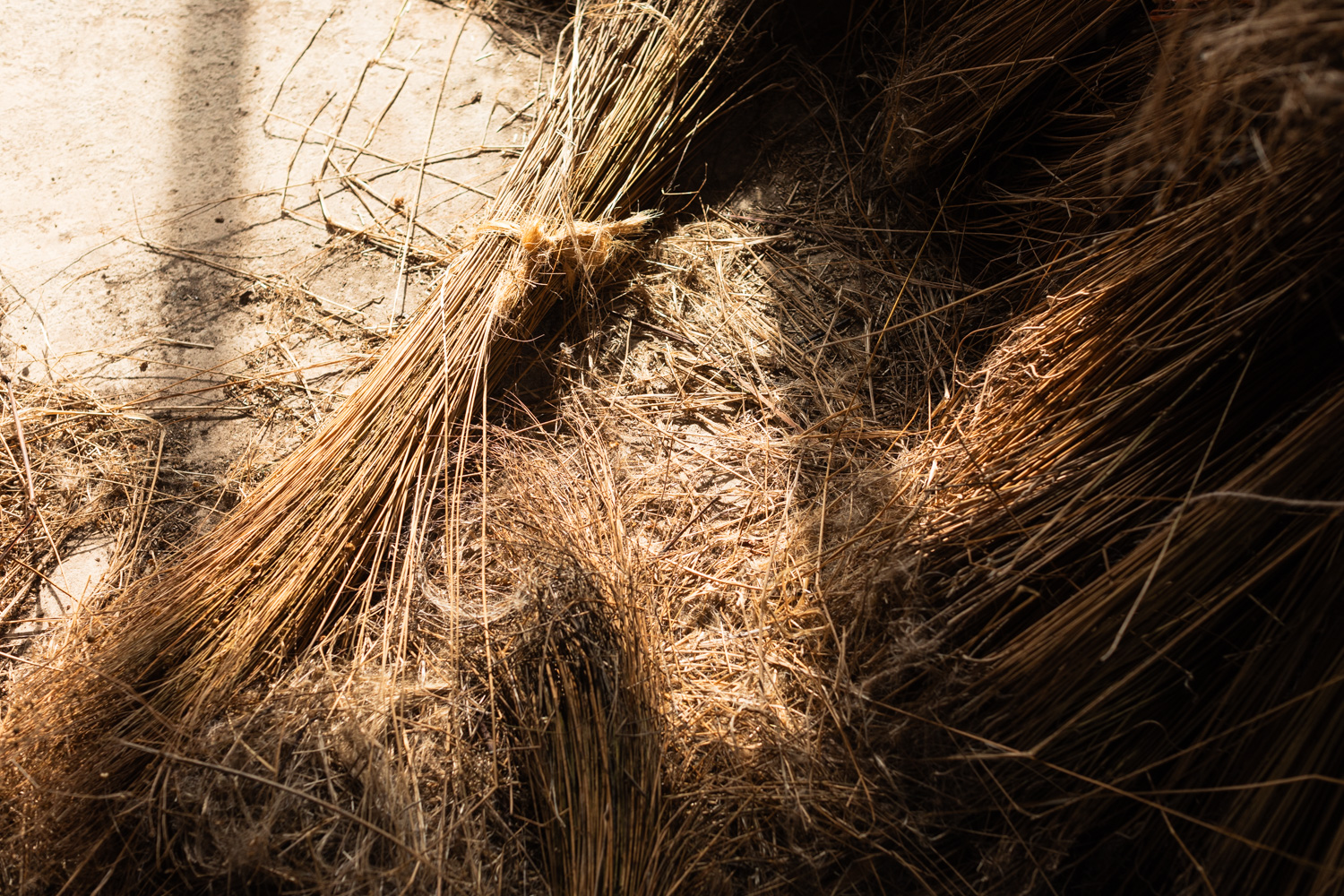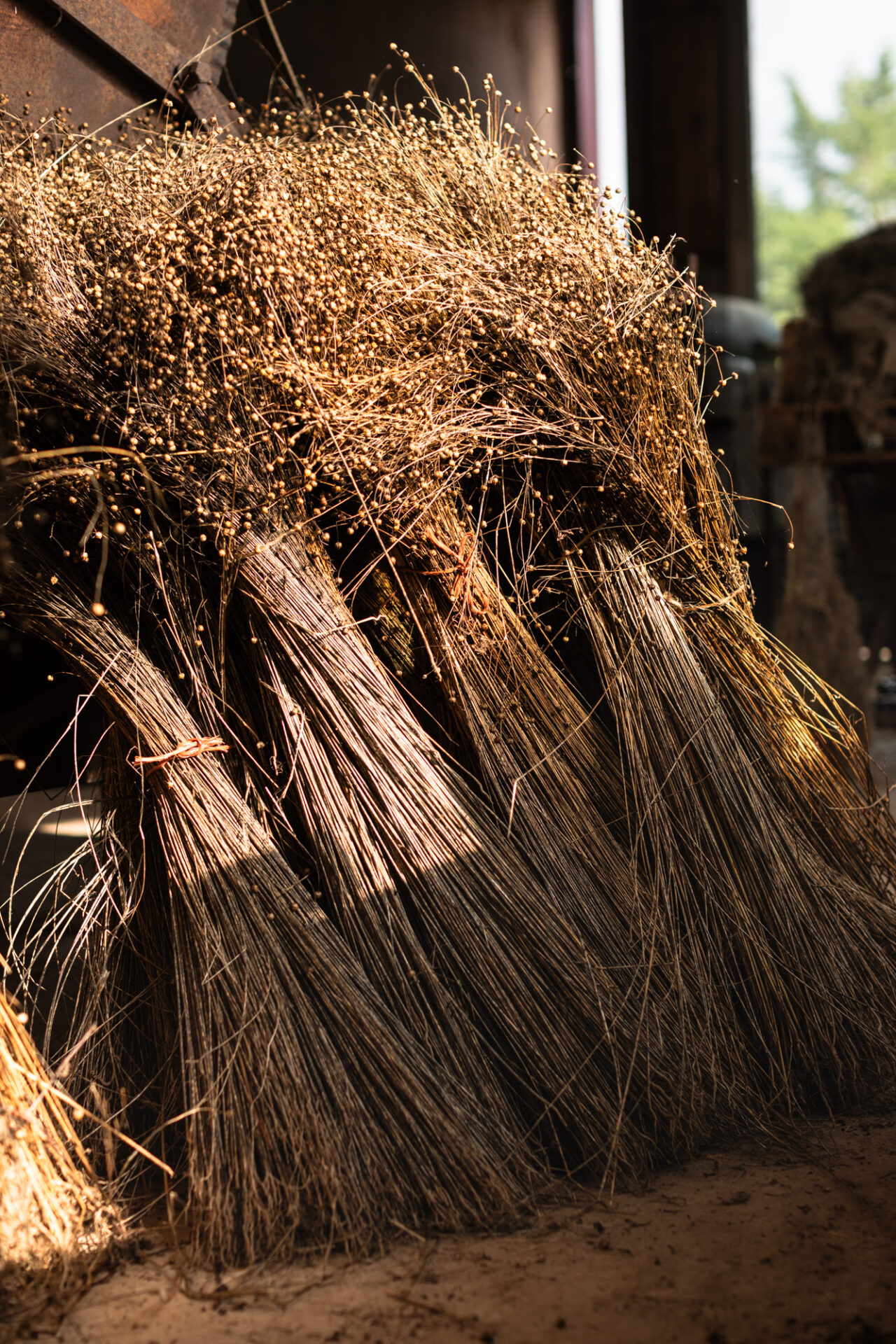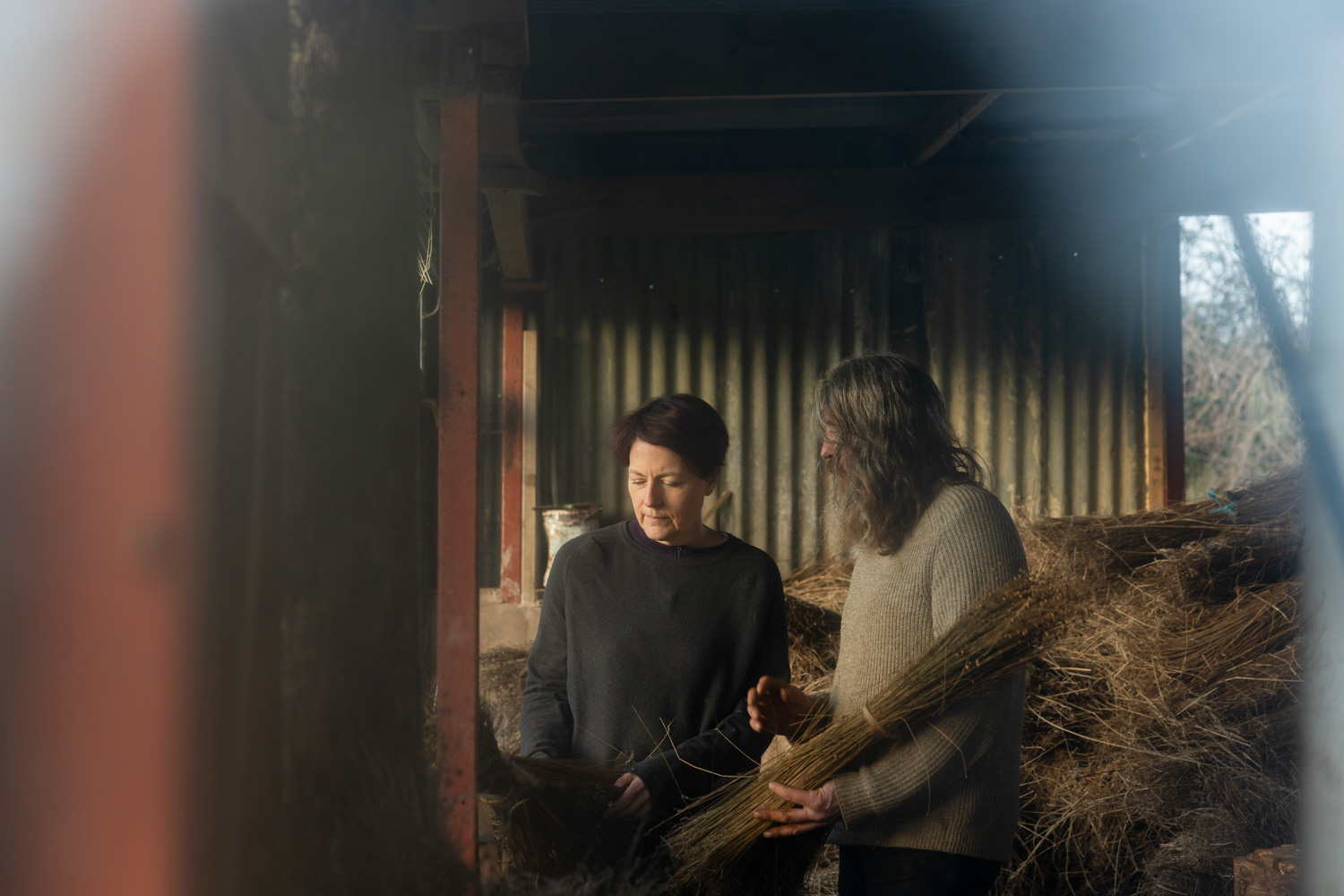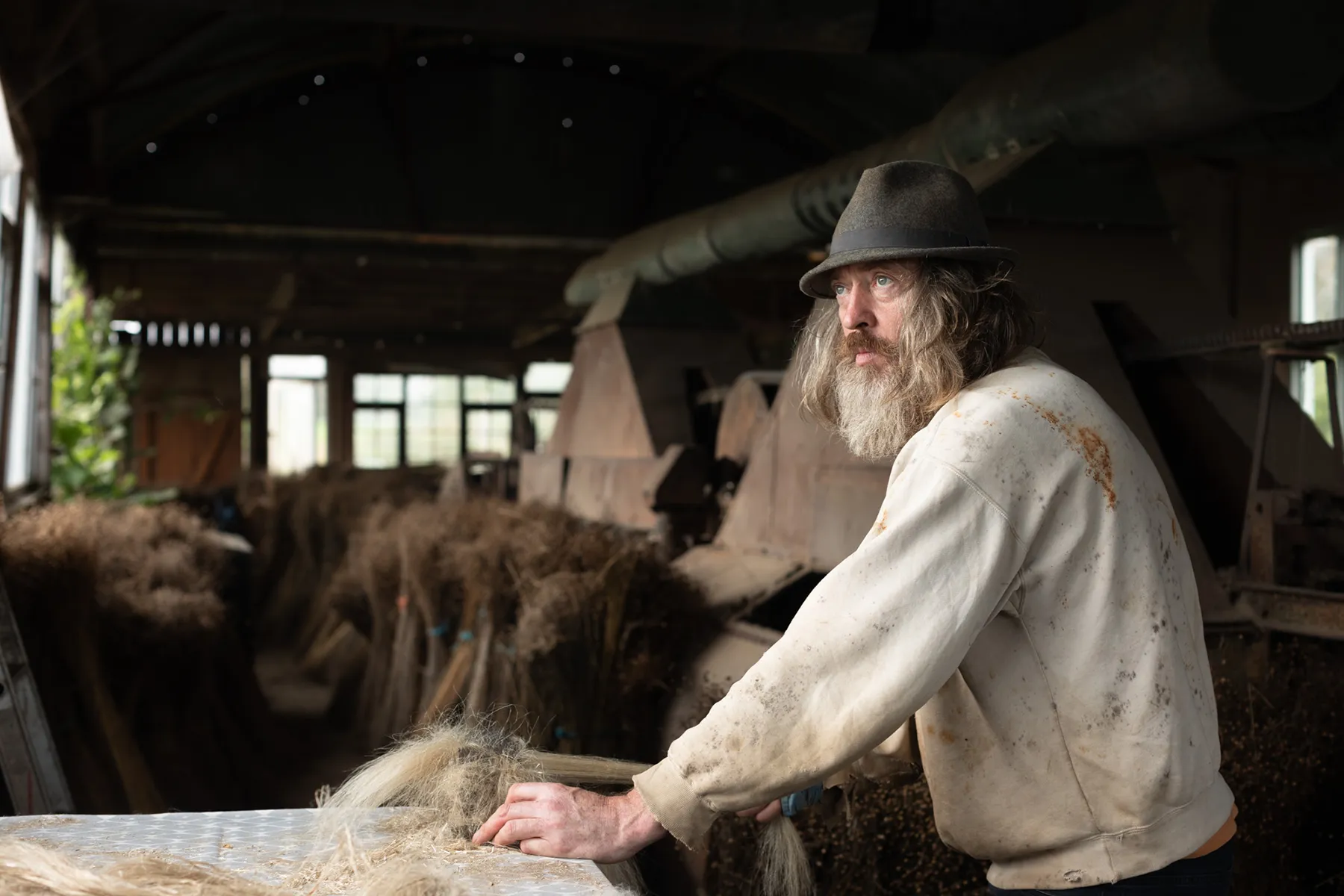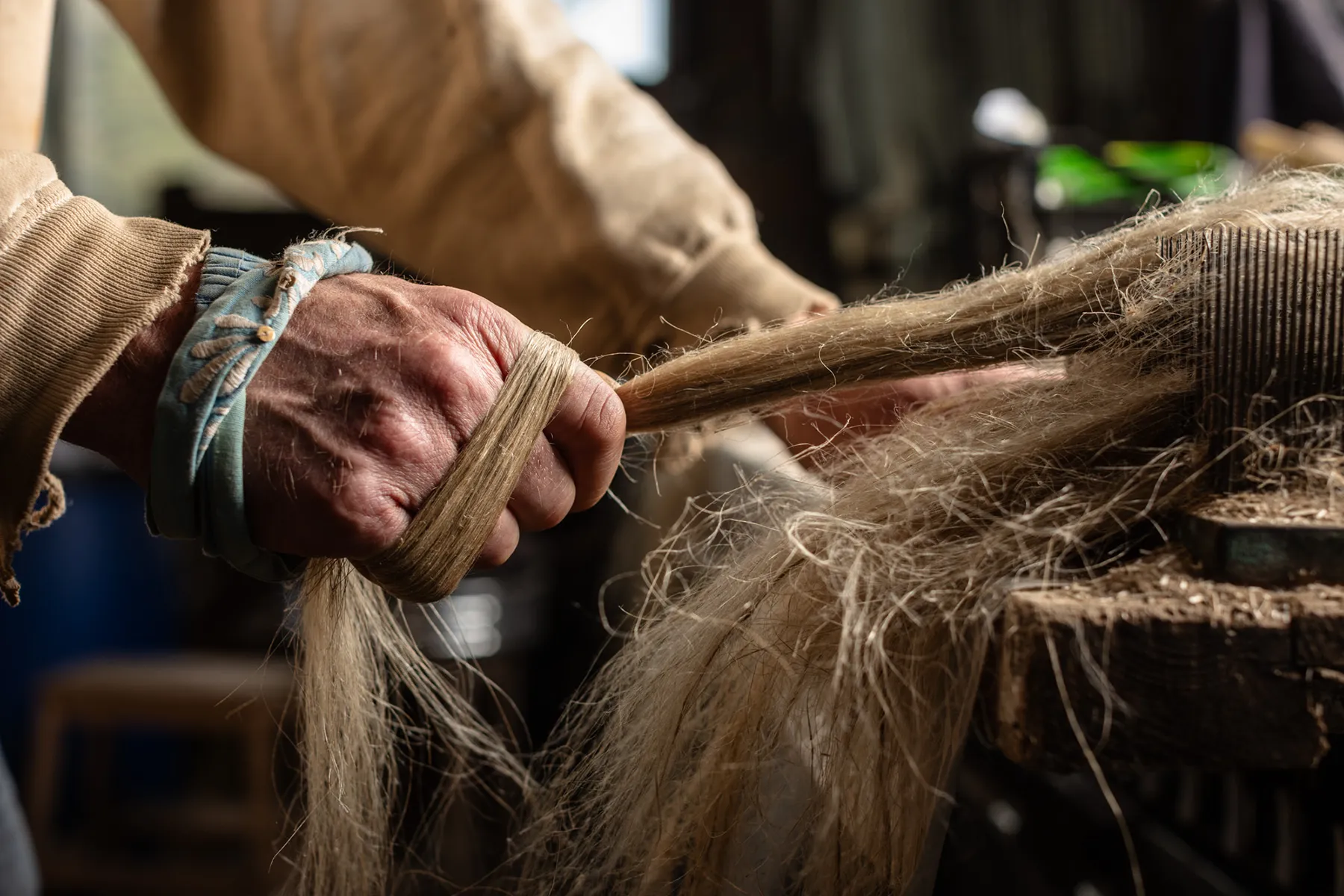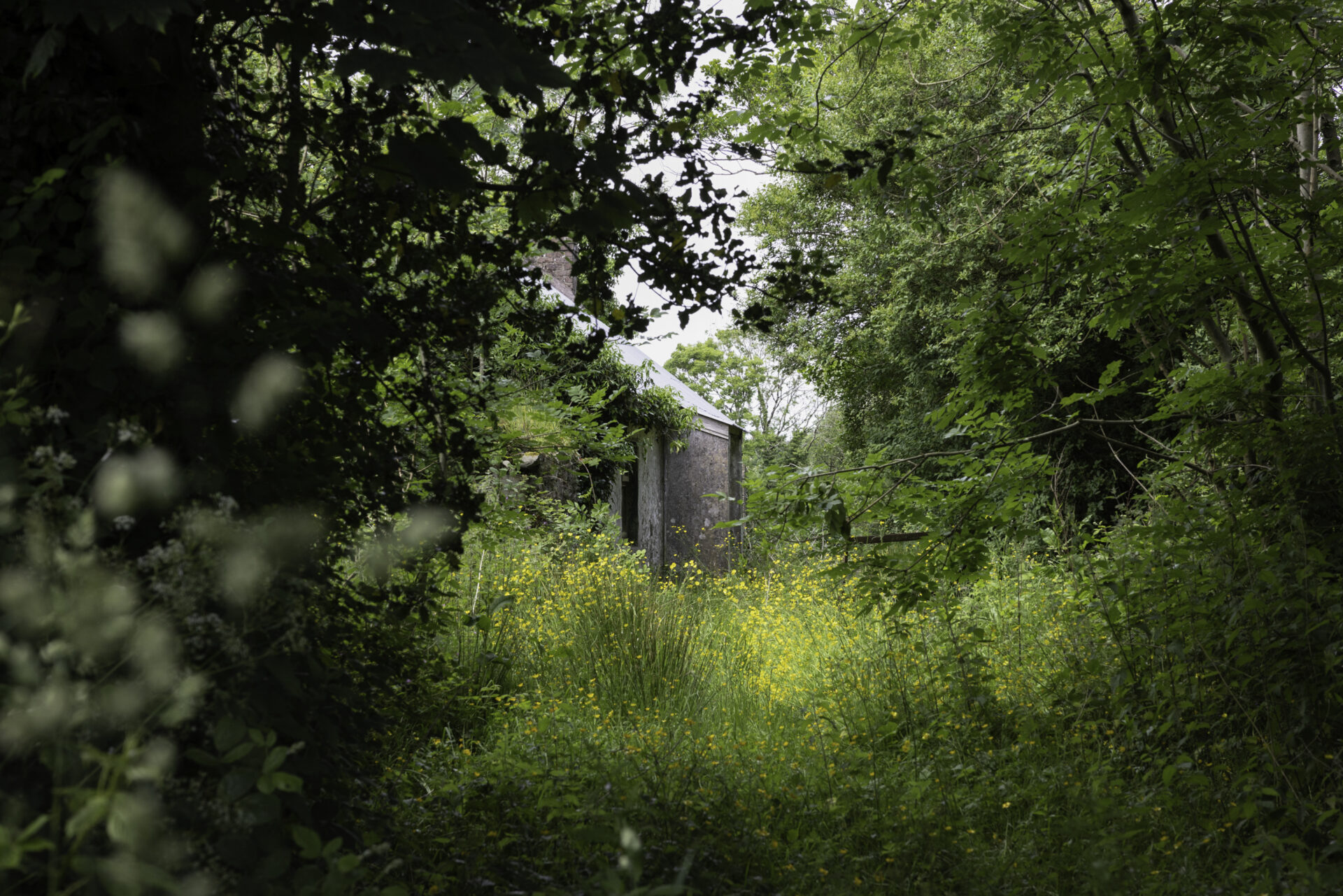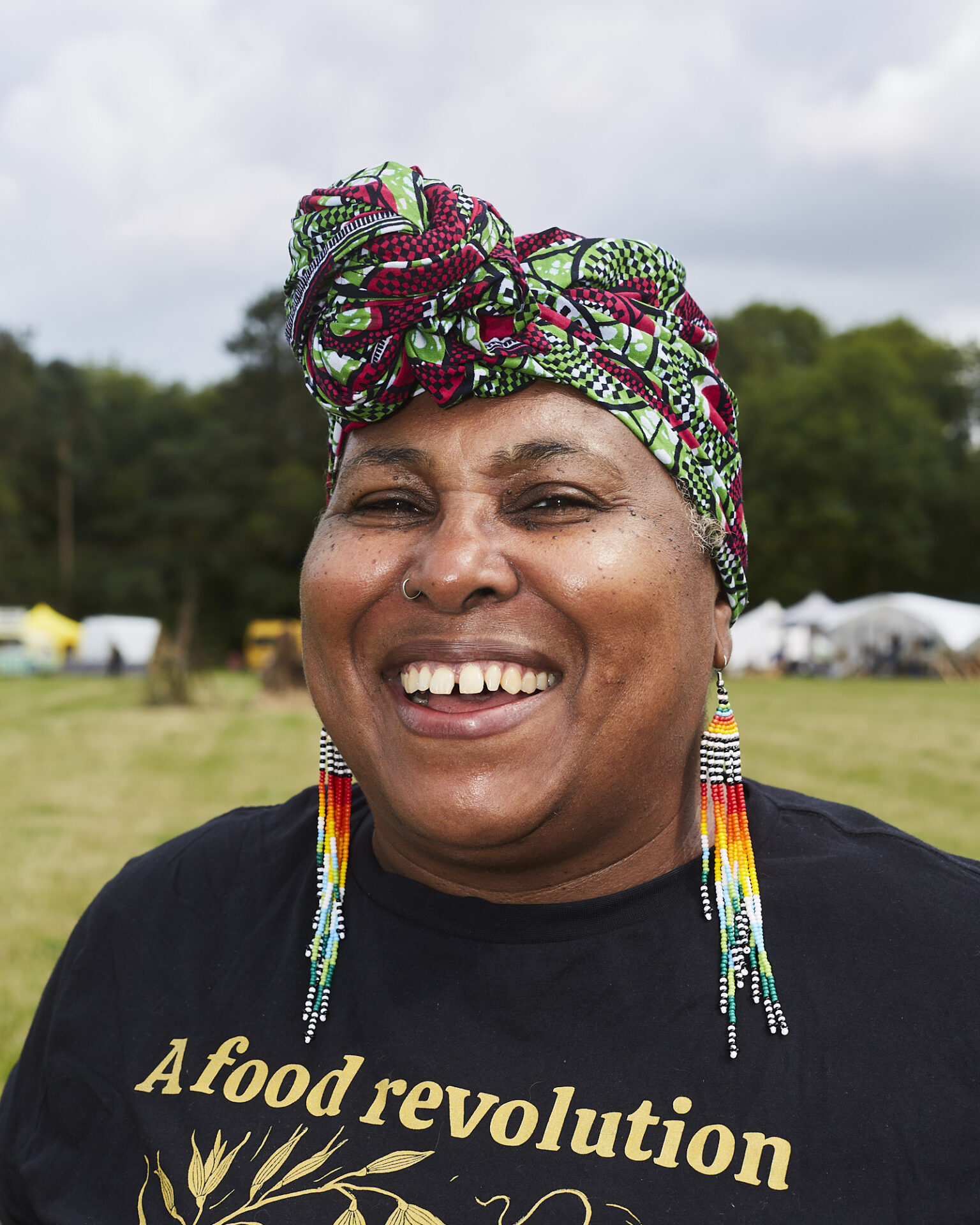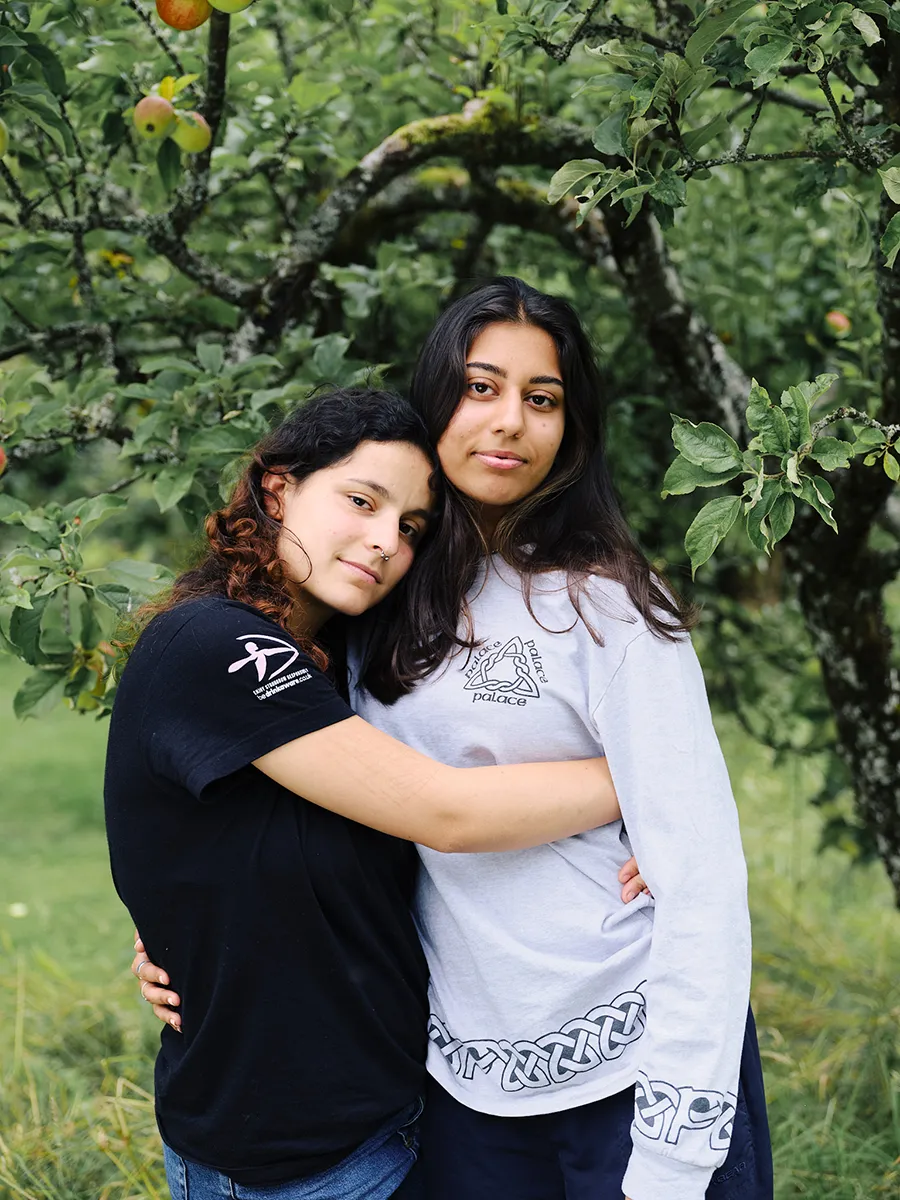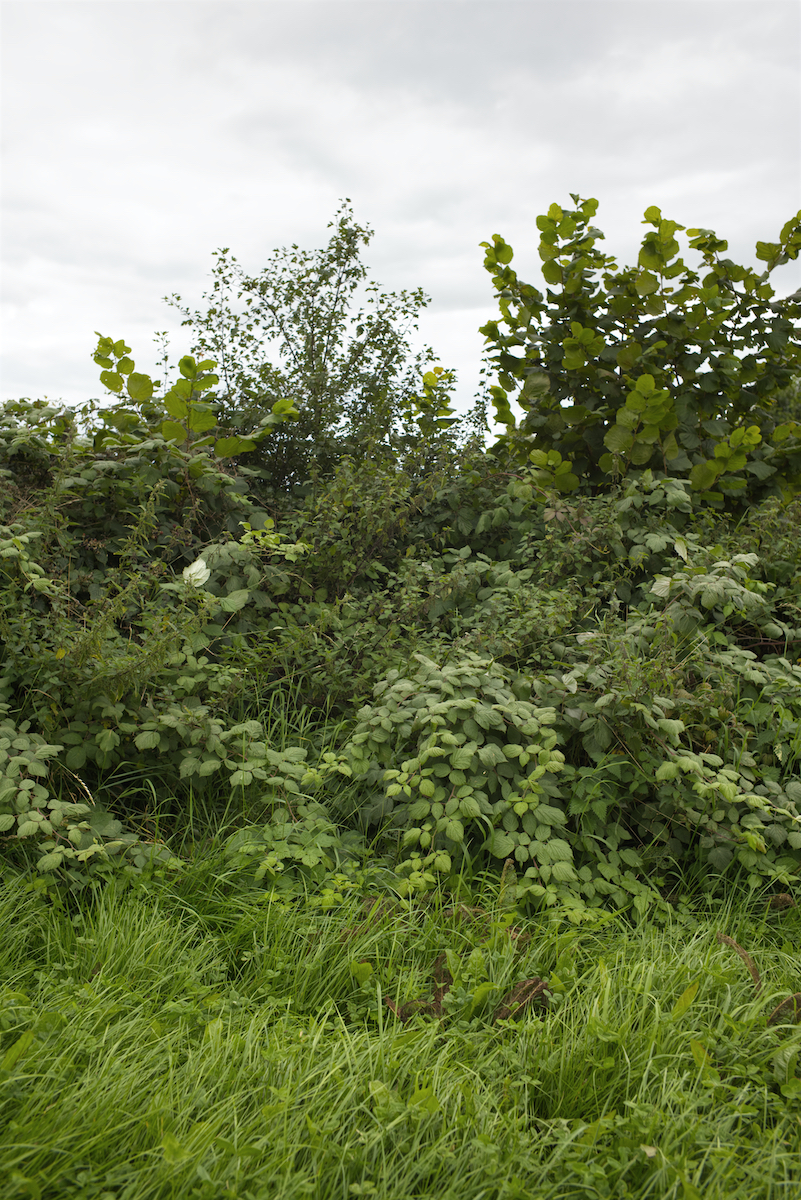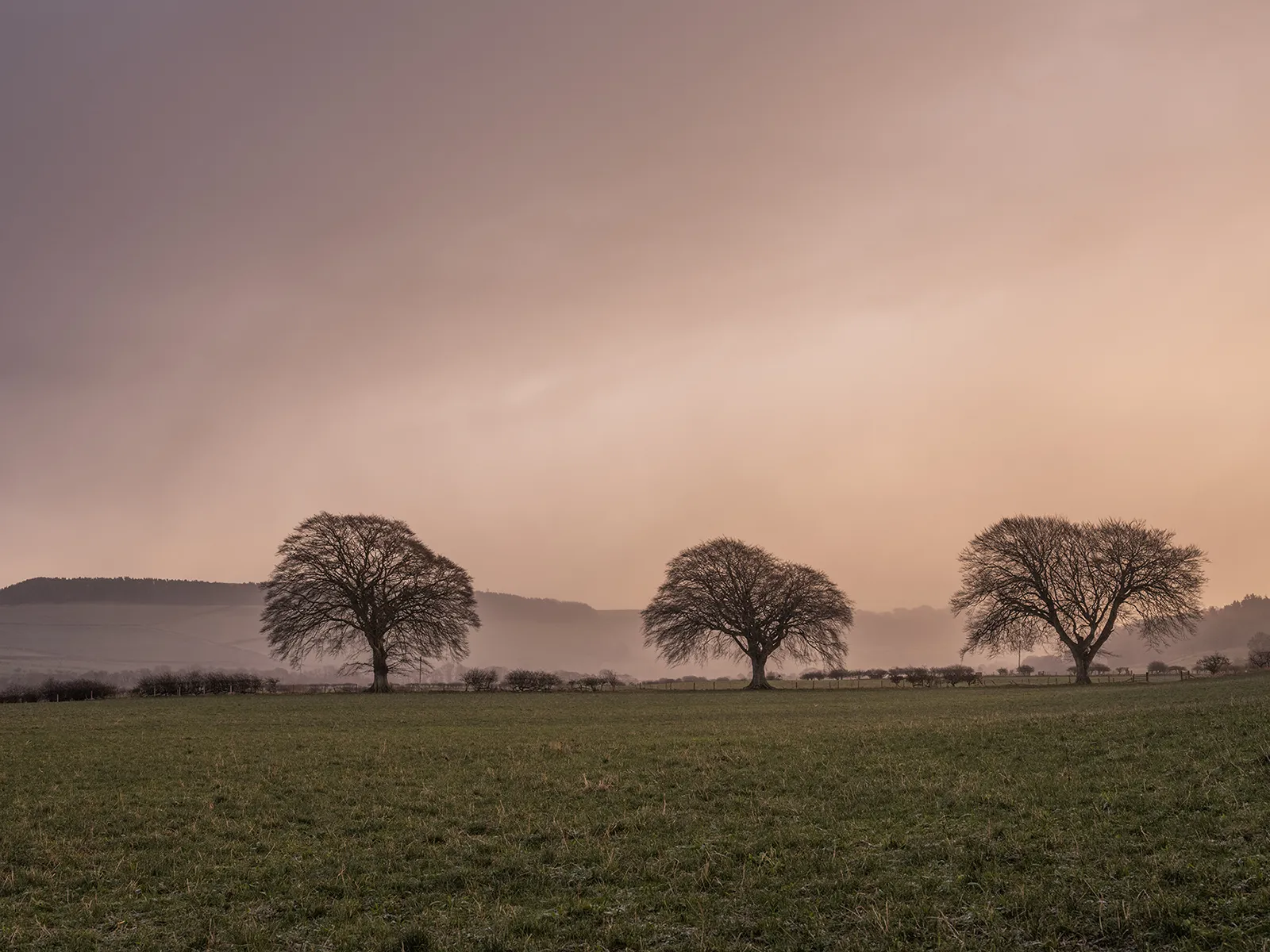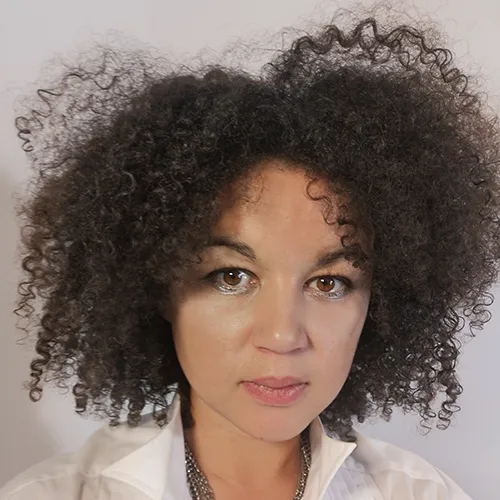FIBRE: NATURE-FRIENDLY FLAX FARMING
Inspired by Mallon Farm in Ireland // Photography by Yvette Monahan // Poetry by Abby Oliveira // Exhibited with Belfast Exposed in Ireland
Jump to…
‘THE OPPOSITE OF APOCALYPSE’
Words by Hot Poet Abby Oliveira
Photography by Yvette Monahan
Inspired by flax farming on Mallon Farm in Northern Ireland
1. Sowing
The sky is falling
in county Tír Eoghain.
49 days from now it will bloom
wee blue blossoms.
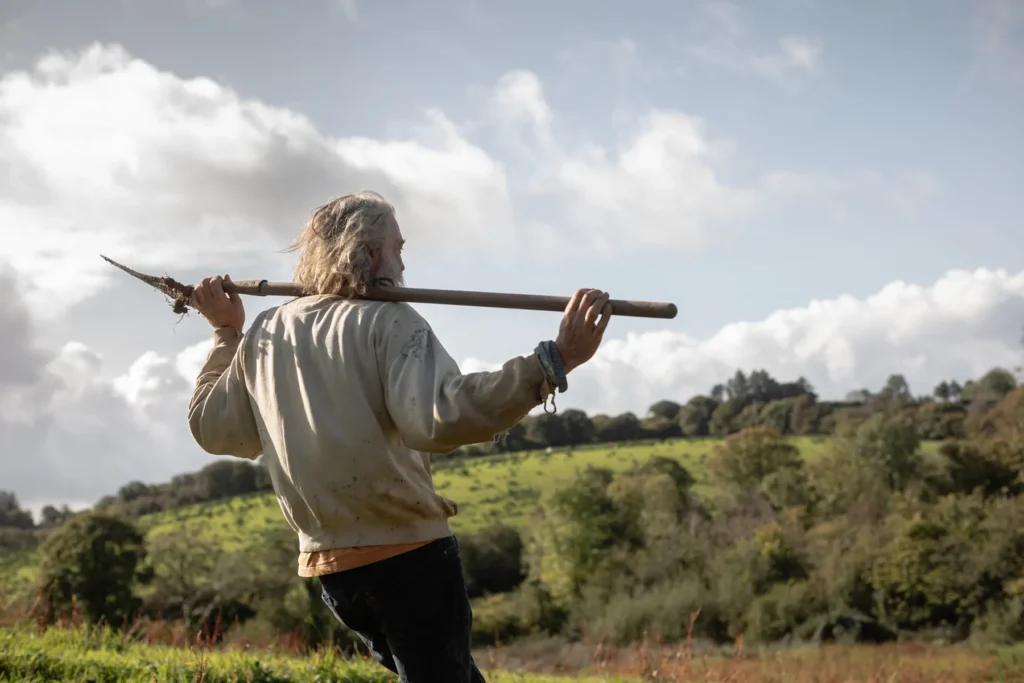
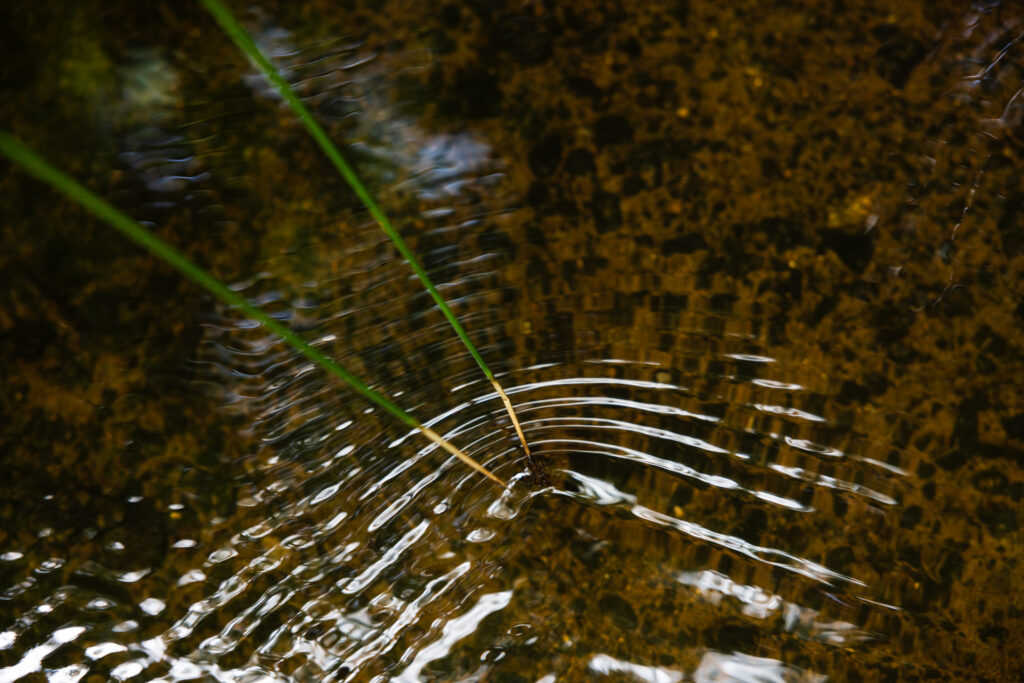
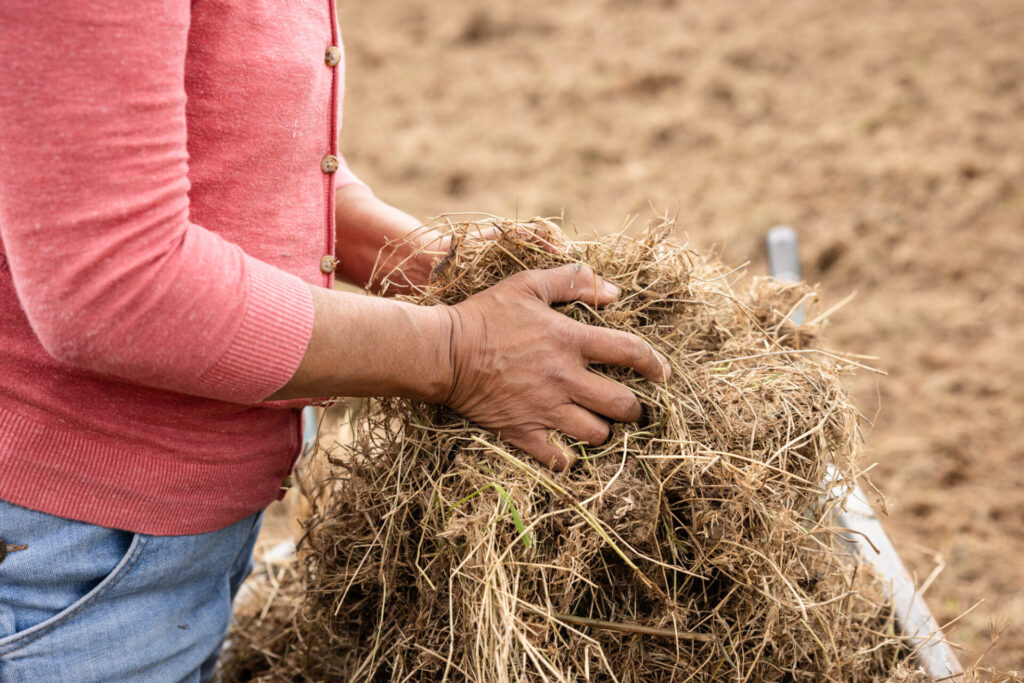
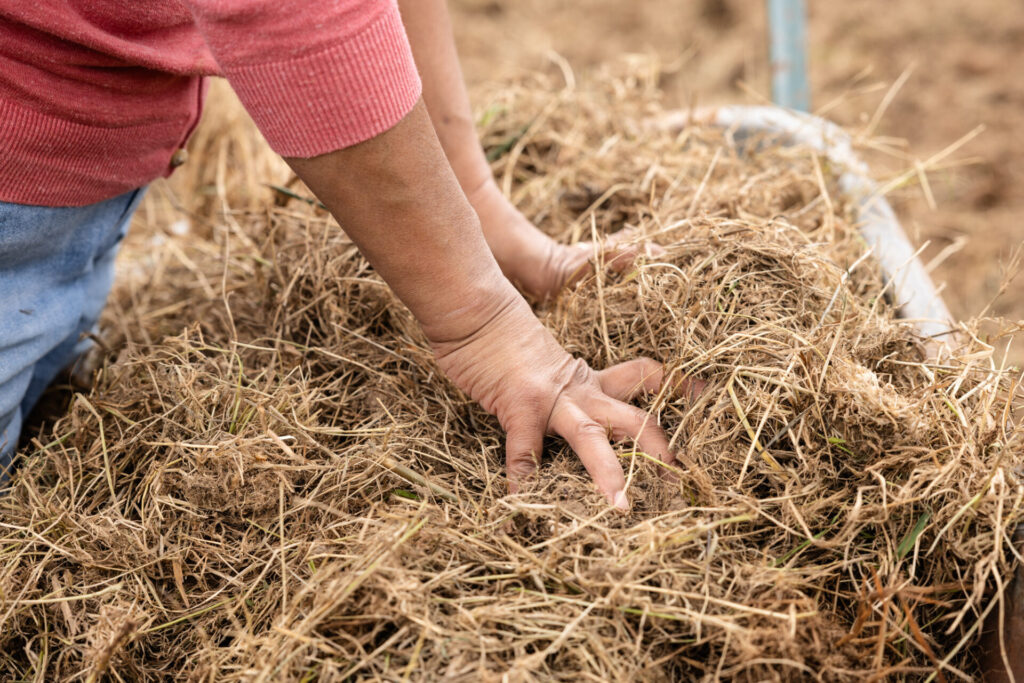
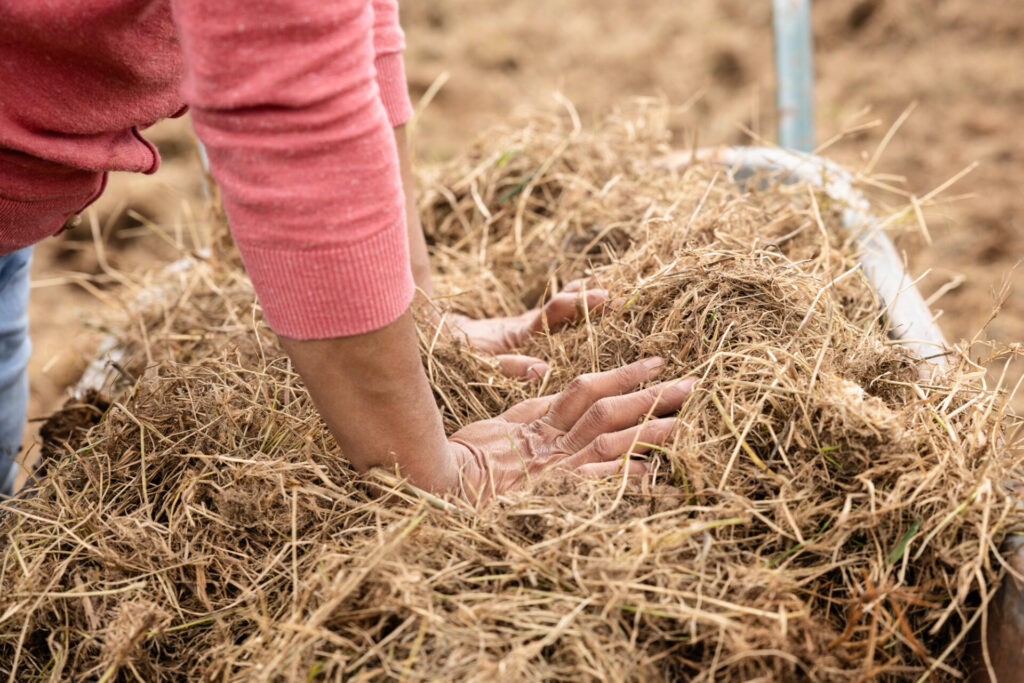
For twelve dashing hours, Lisette and Avian
flowers will soft shoe shuffle dance
then die. Then return
to dance, die, turn
in their graves, scattering the seeds
of next year’s sky.
The opposite of apocalypse.

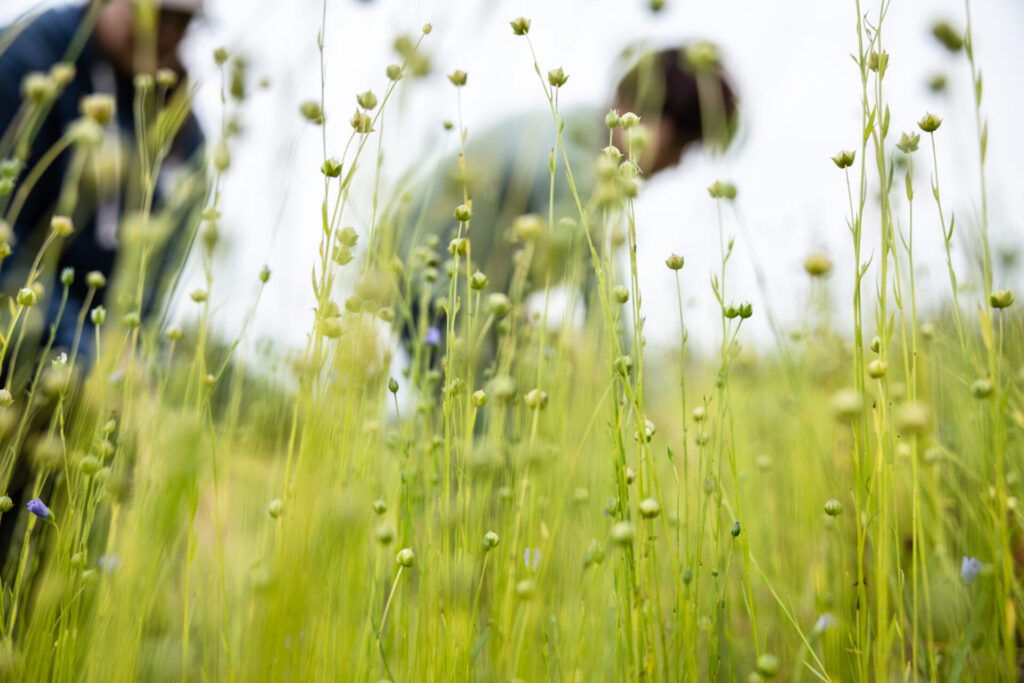
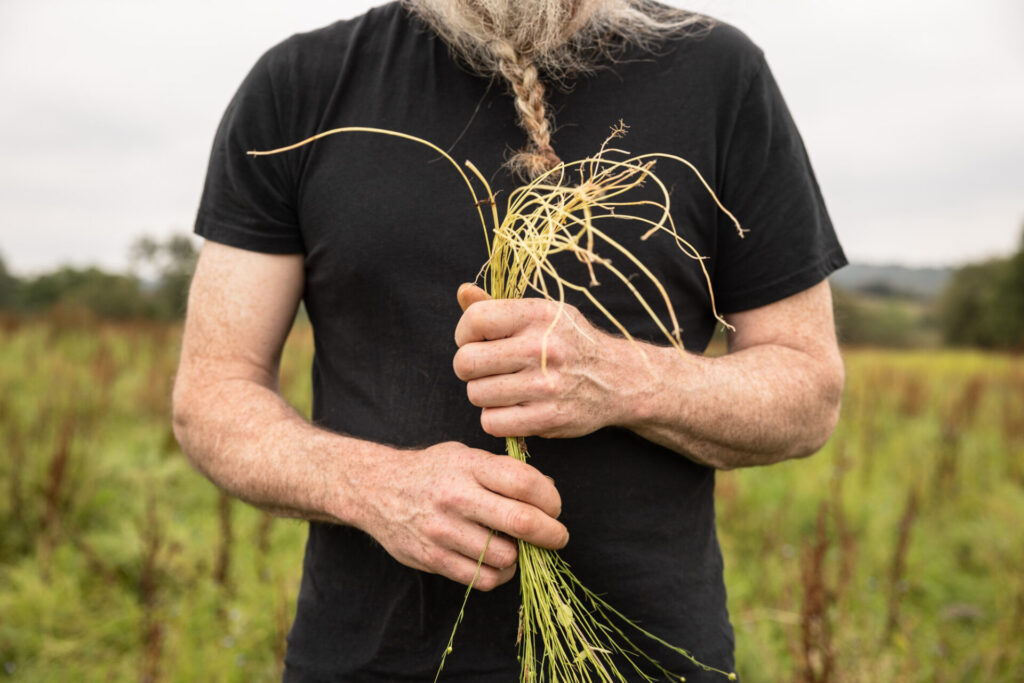
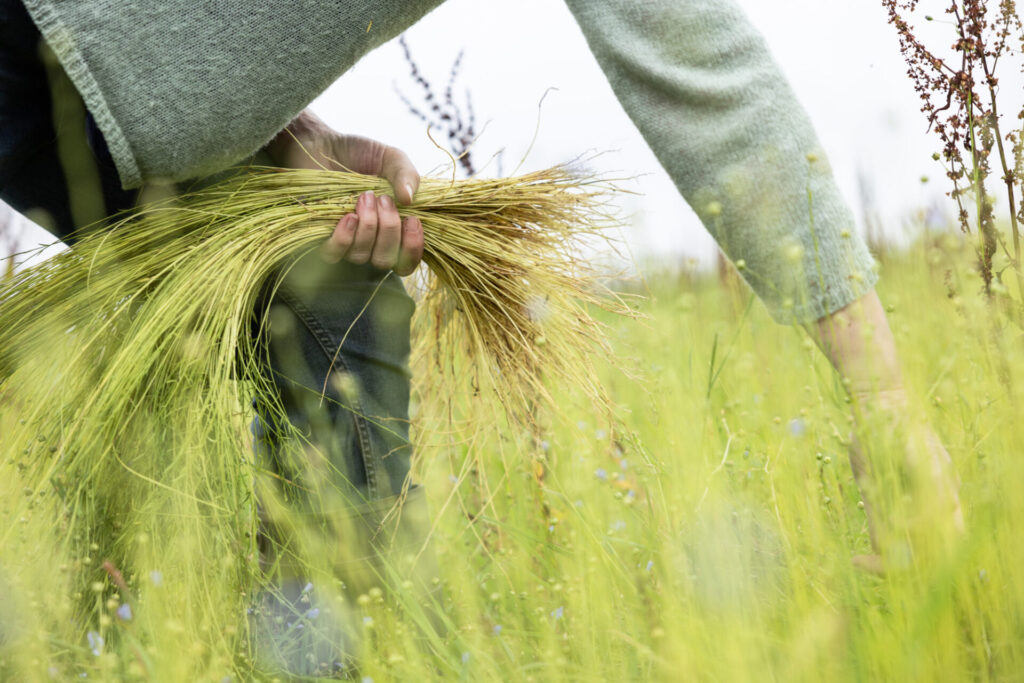
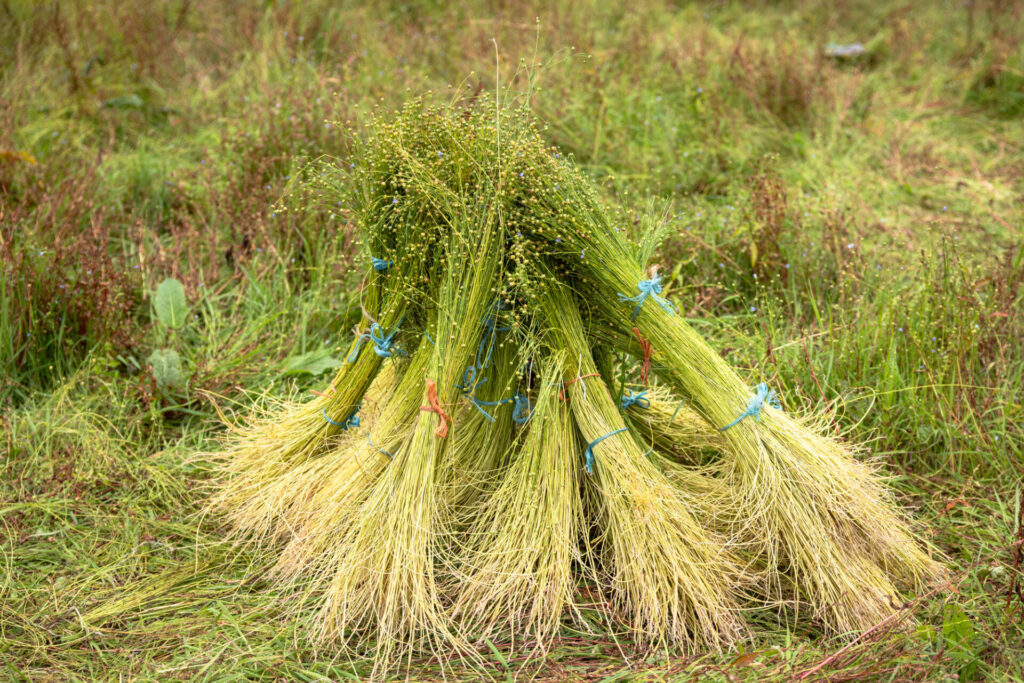
- Pulling & Stooking
A bad farmer pulls up the sleeves
of her grandfather’s old linen shirt.
The bees and linnets have returned,
Devil’s-Bit Scabious and Marsh Fritillaries
also pull up their sleeves.
This gentle work is hard.
But what farmer doesn’t work hard?
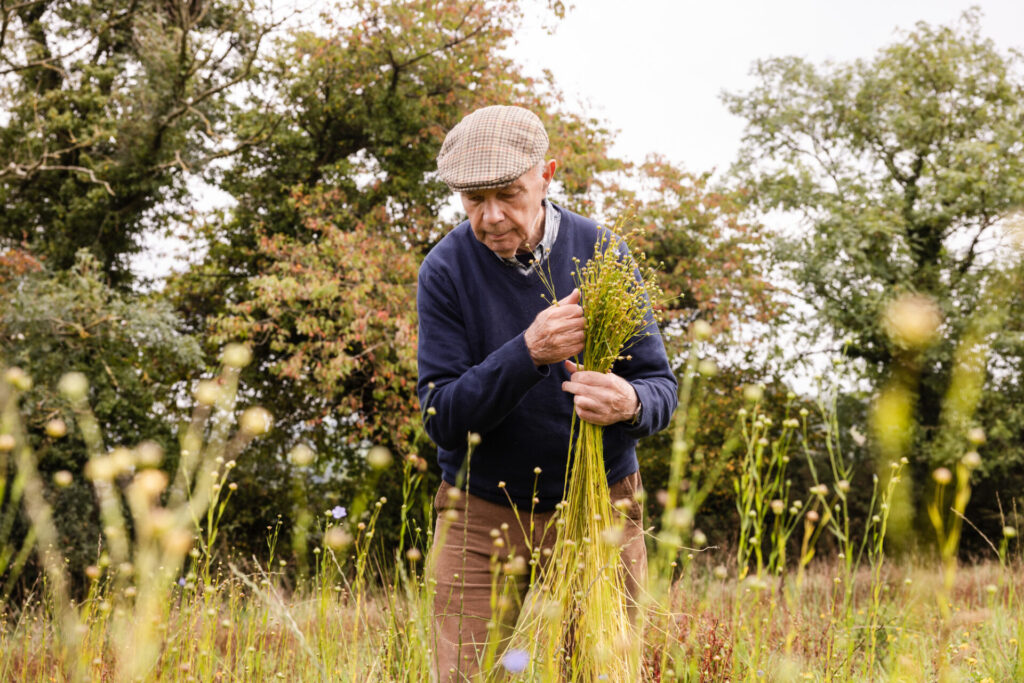
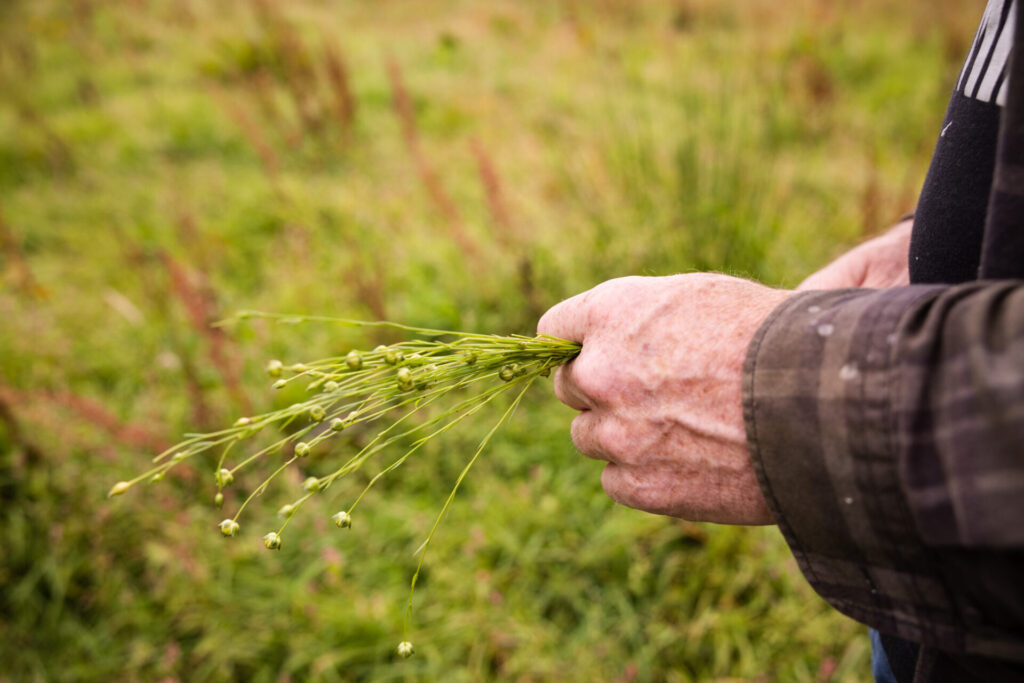
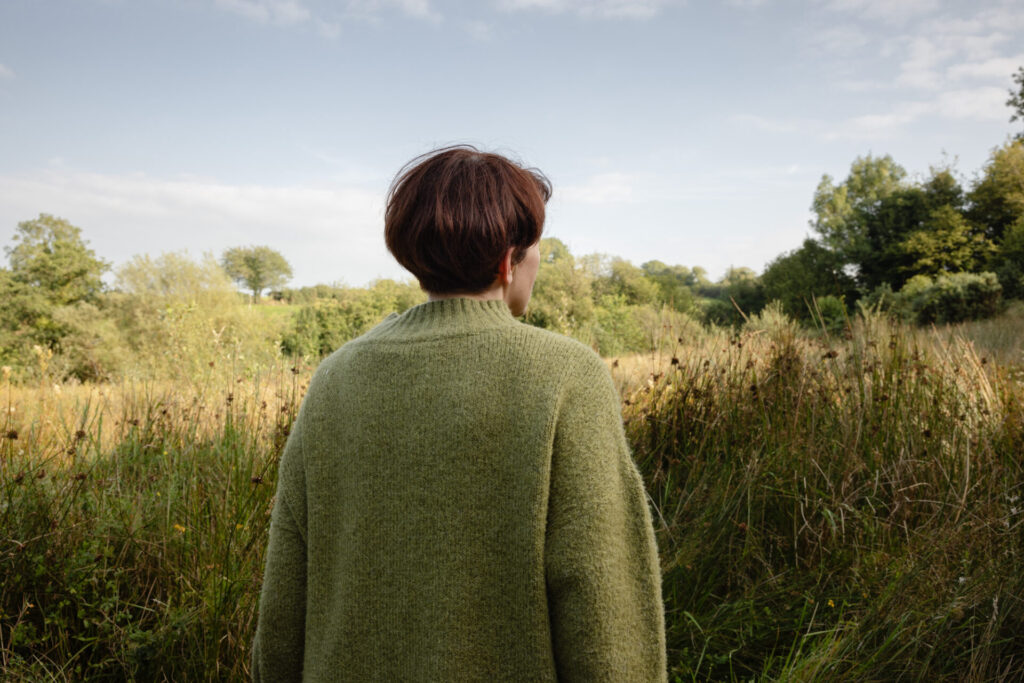
Volunteers gather
to pull the yellowed flax with bare hands.
They marvel at what can be achieved
when we pull together as sheaves,
stand together as stooks.
- Retting & Scutching
The inspectors have purple-hatched the wild meadow,
deemed unproductive the unbroken hedgerows.
Meanwhile, the knapweed is busy
supporting forty different species.
Bad farming, some call this.
It would be easy to be pulled in
by postcards,
but this gentle work is hard
and so many eyes
are straining through the bushes
looking answers.
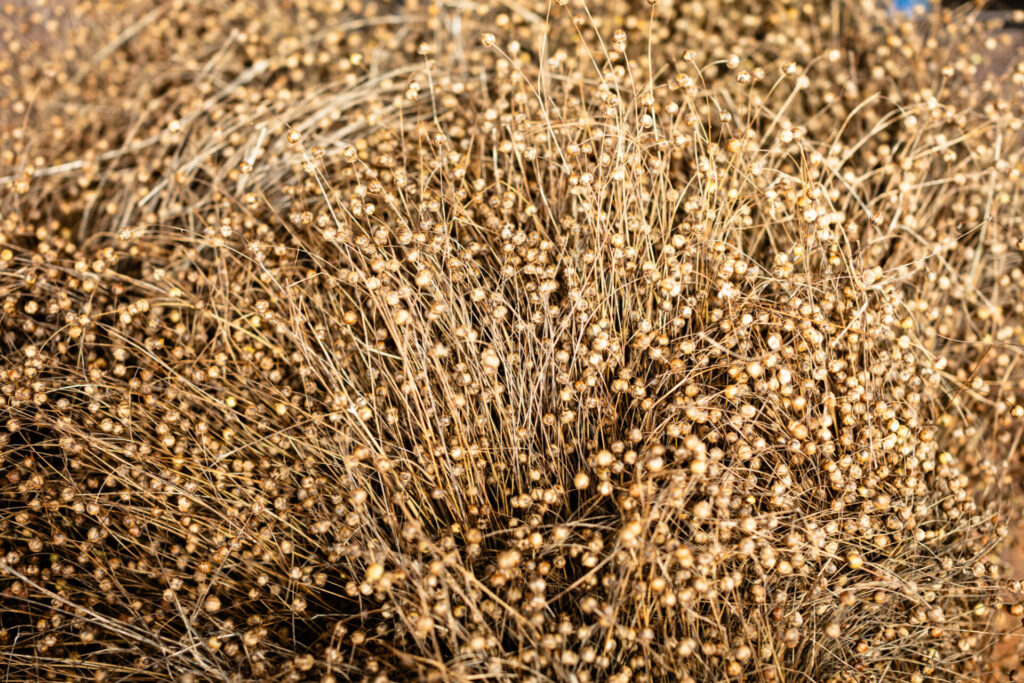
- Combing
The hedges offer bounties
of opportunity;
– hazelnuts, rosehips, berries…
Bring your baskets. This is not a dream.
Yet, it is.

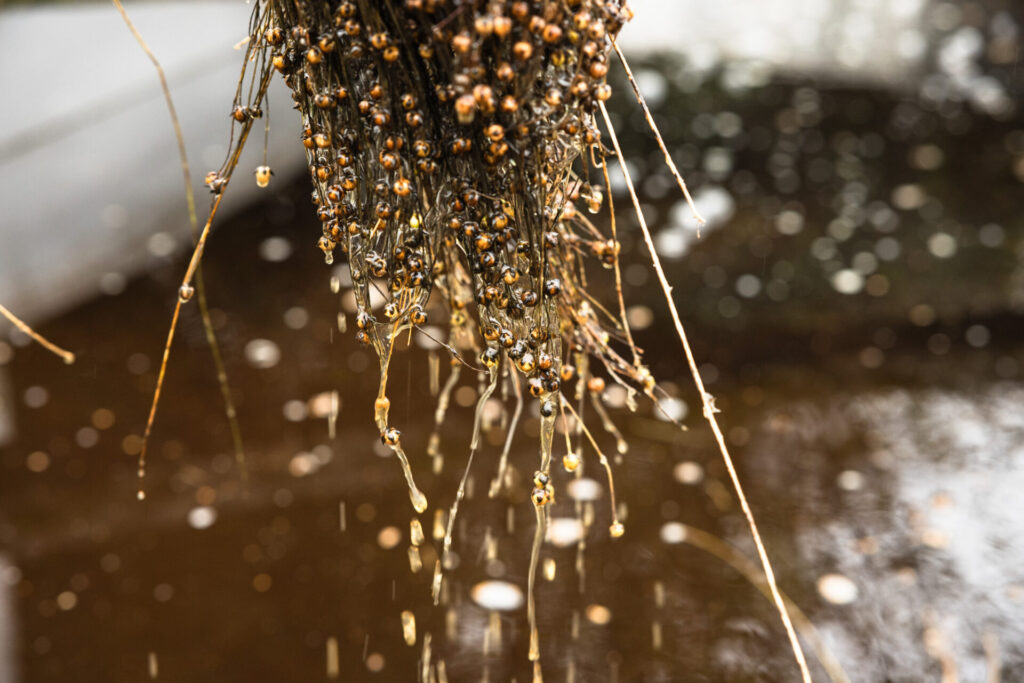
- Spinning & Weaving
Flax production turned Belfast into Linenopolis.
The ultramodern machinery of industrial revolution
had no interest in weaving hyper-local circles.
Linen forgot where it was reared,
factories rotted
decades, centuries, millennia
before their garments.
But bad farmers know
old rot makes for good fertiliser
when we remember the lie of the land.
There are other paths through the long grass:
like the one taken very early in the morning:
to the 1940s scutching turbine – awakening
for the first time in forty odd years
to catch a glimpse of a Vagrant Emperor,
to know
the sky is not falling.
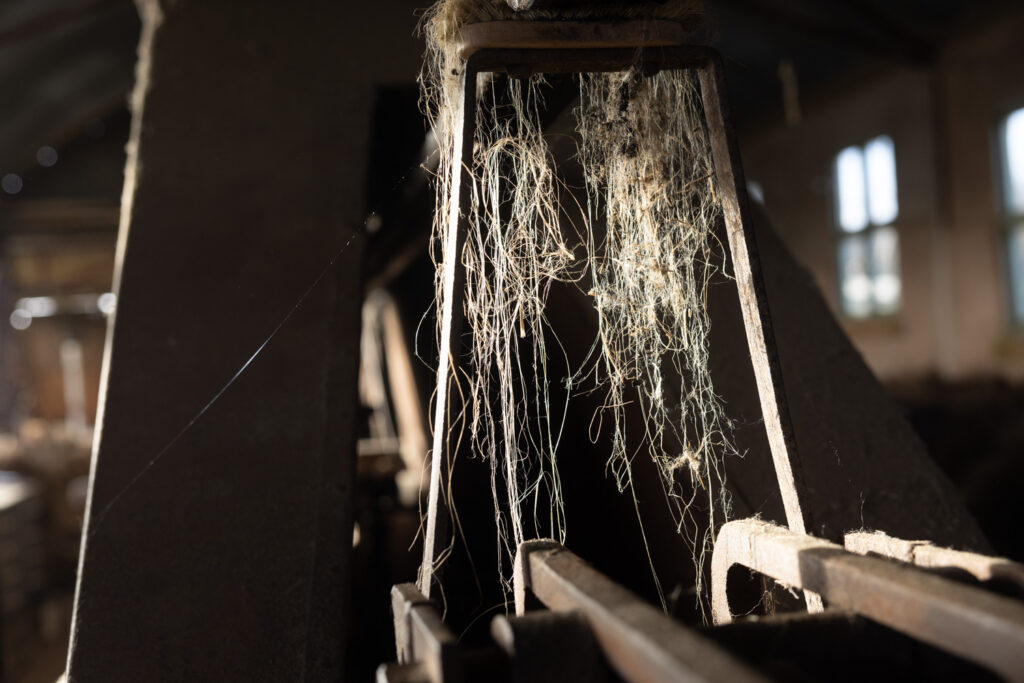
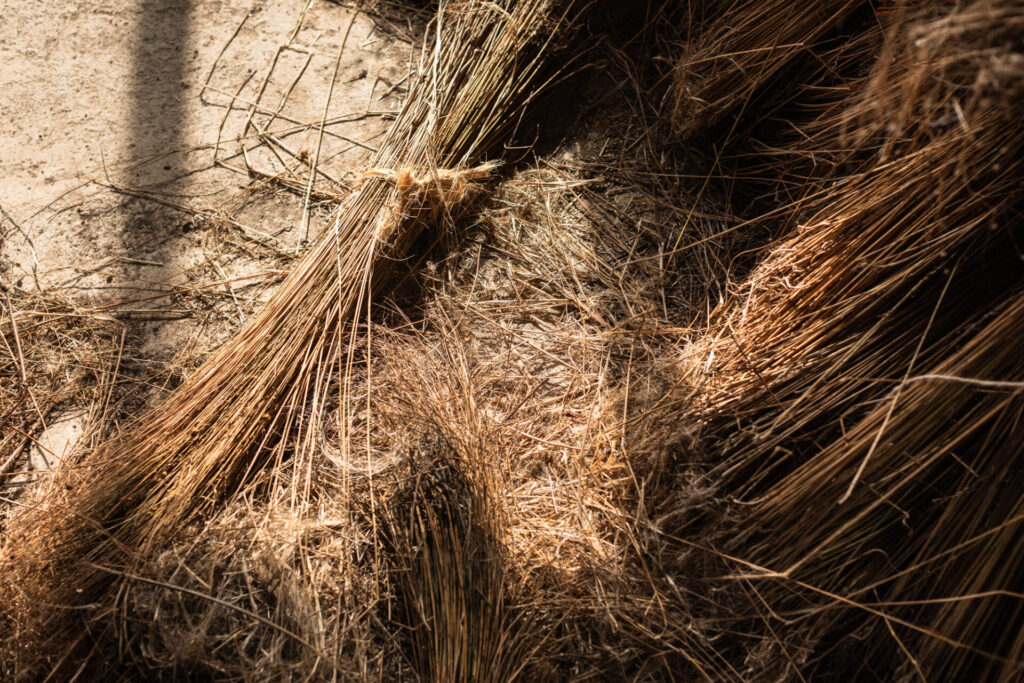
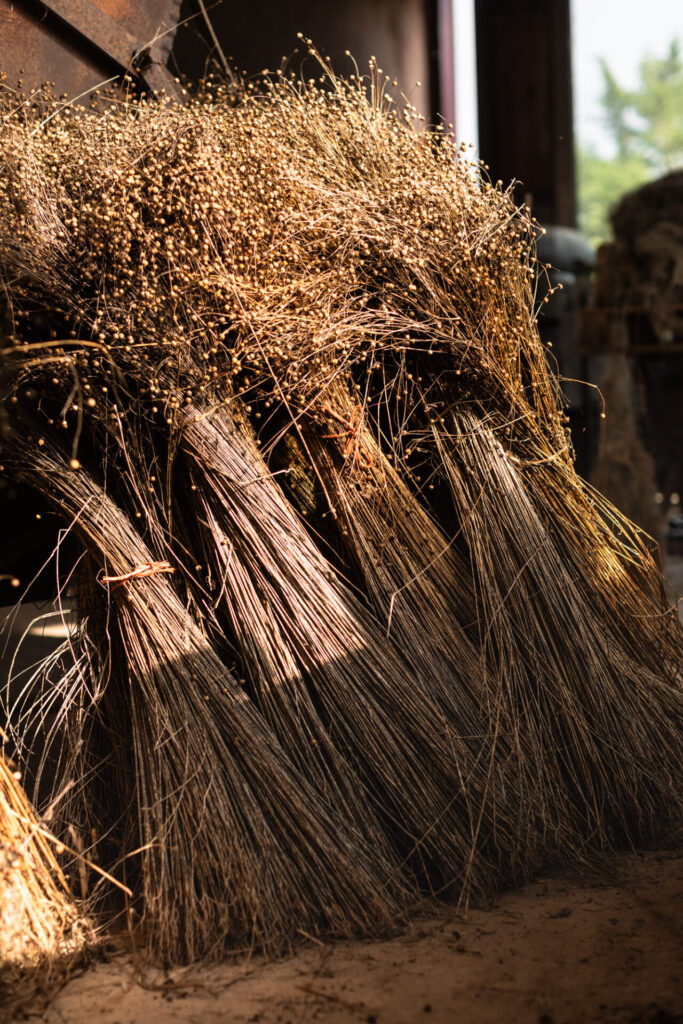
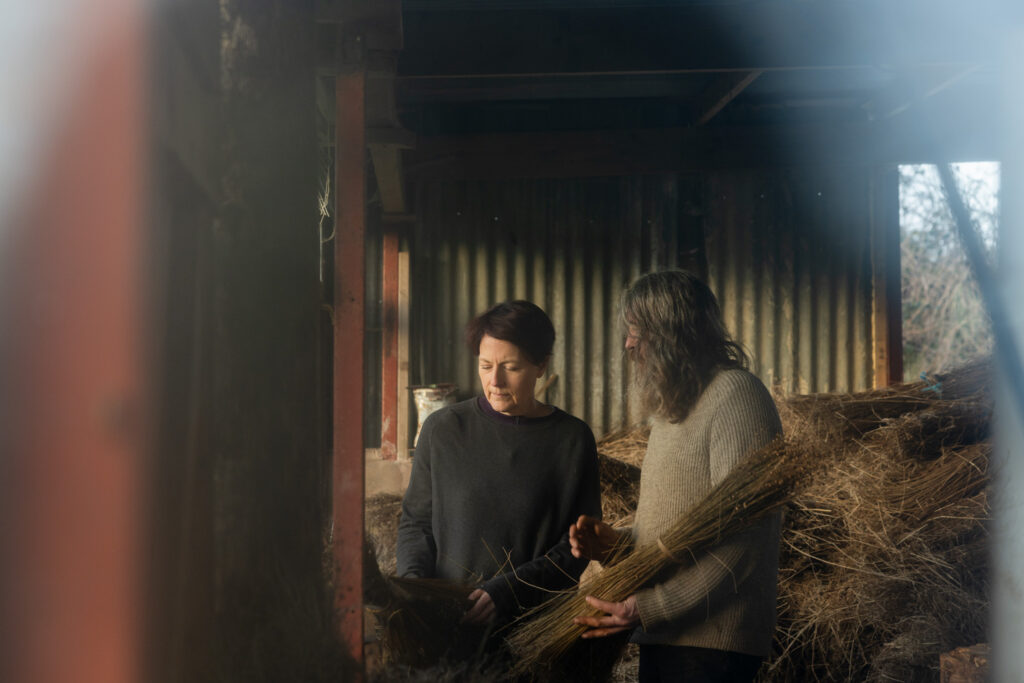
GROWING FLAX FOR FIBRE
Irish flax farmers have been crafting linen fabric for two thousand years, or so the peat bogs tell us. Brehon (early Irish) law obliged farmers to learn its cultivation, such was the importance of the trade that earned Belfast its nickname, Linenopolis.
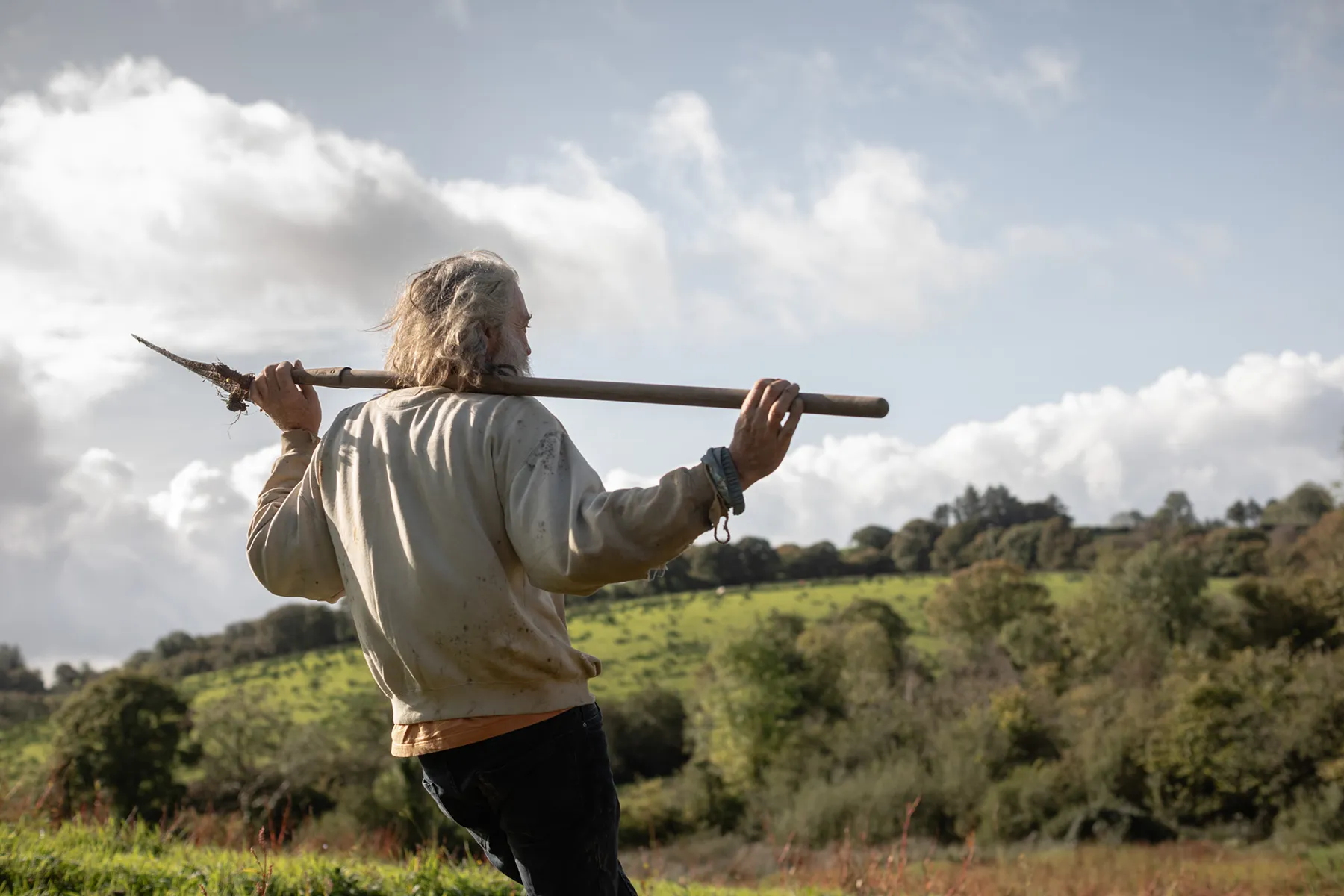
Growing for a diversity of needs, from food to fibre, even protected flax producers from the devastation of the potato famine. But a 20th century tangle of changing circumstances, including two world wars, was the downfall of homegrown handkerchiefs.
On Mallon Farm in County Tyrone, Helen Keys and Charlie are reviving the tradition of growing flax for fibre, as part of a patchwork of potatoes, grass and oats. Their ‘wee blue blossom’ is chemical free, harvested by hand, retted in rainwater, scutched on a restored turbine, and threaded into local supply chains.
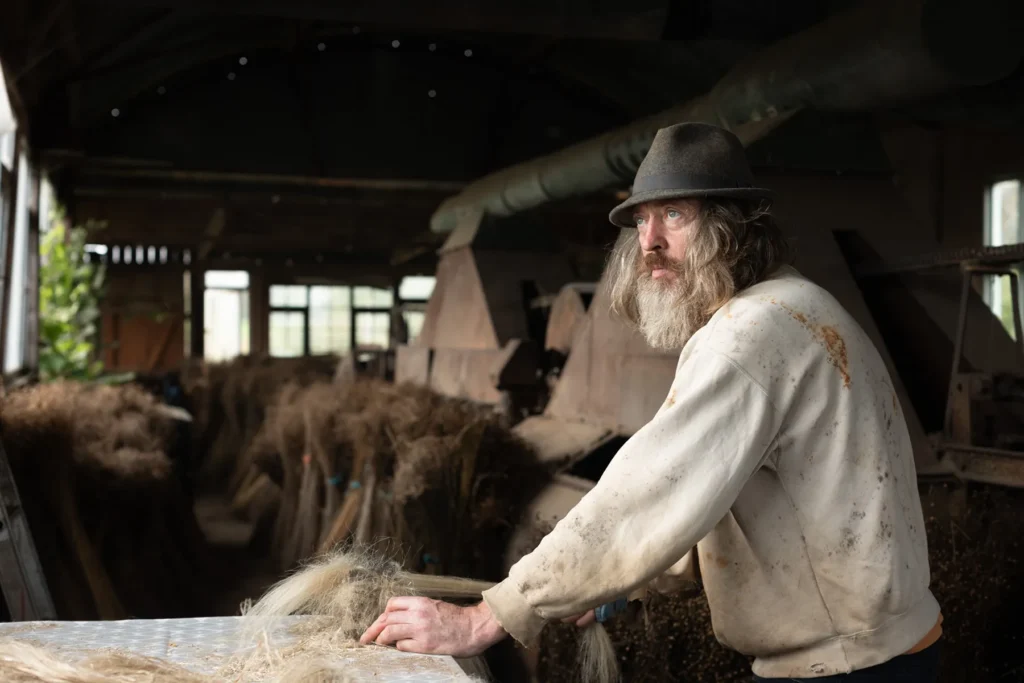
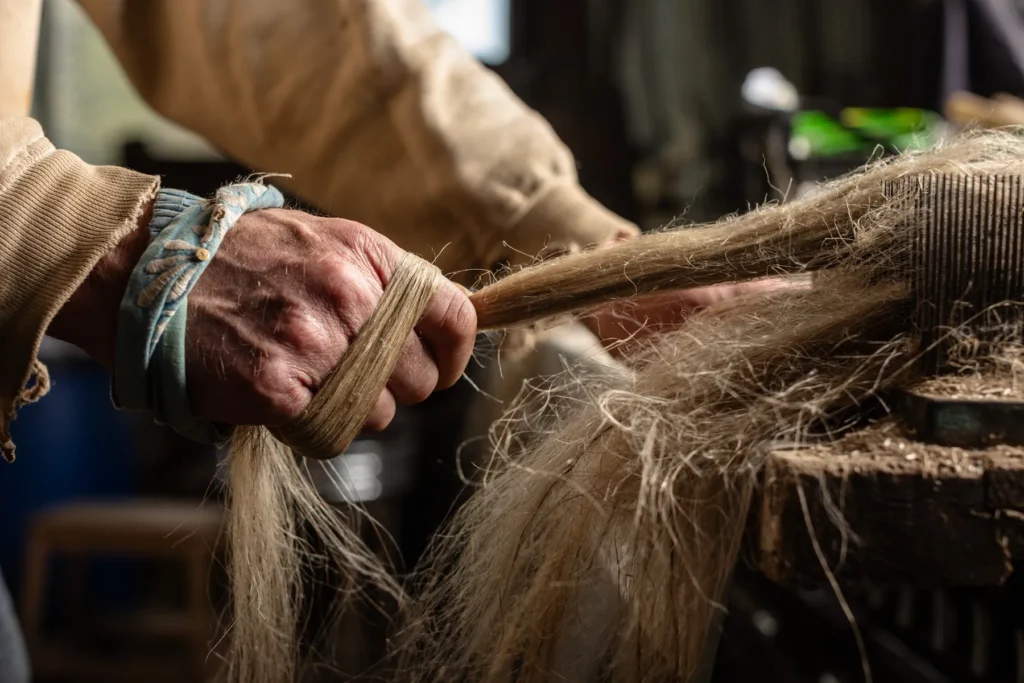
These efforts are not only rejuvenating soil, waterways and wildlife, but also regenerating a heritage that promises future resilience. Helen and Charlie are reweaving the fabric of Northern Irish flax farming.
“Farming is a way of life that many farmers didn’t choose; it is tied into our family, heritage, culture. I’d like people to feel reassured that individuals can make a real difference – farmers and consumers can both have a huge impact with the choices they make.”
Helen Keys, Mallon Farm
The ‘re-story-ation’ of Irish linen is driven by these passionate individuals, Helen and Charlie, alongside their families and friends who practice daily acts of practical reverence, gently re-story-ing Mallon Farm.
Yvette Monahan, photographer

“The most profound lesson I have learned at Mallon Farm is the transformative power of personal passion in creating change.“
Explore Yvette’s reflections on her time spent at Mallon Farm, treading the humble paths of Helen Keys and Charlie Mallon:


